Risultati: 486

Funzione/Ruolo
Consigliera di Amministrazione e Presidente di Comitati endoconsiliari di società quotate e non, Presidente e Membro di collegi sindacali di società quotate, di pubblico interesse e non quotate, economista aziendale, docente universitaria.
Percorso professionale
Dopo aver conseguito la laurea in Economia aziendale presso l’Università Bocconi prosegue l’attività di ricerca presso l’Istituto di Studi sulle Borse Valori “Andrea Lorenzetti” dello stesso ateneo, e avvia l’attività professionale occupandosi prevalentemente di valutazioni di azienda, corporate governance e strategie di crescita.
Matura una significativa esperienza in ambito aziendale e finanziario, in materia di valutazione d’azienda, corporate governance, in particolare sui sistemi di controllo interno.
Collabora dal 1991 con l’Università Bocconi, dove dal 1994 è Professoressa a contratto di Economia e Gestione delle Imprese.
Copre e ha ricoperto il ruolo Consigliera indipendente, Presidente o membro di comitati endoconsiliari, Presidente o componente del Collegio sindacale in primarie società industriali e finanziarie anche quotate e di pubblico interesse, tra cui: Gas Plus Spa, Reno de Medici Spa, Sace BT Spa, Simest Spa, AgustaWestland Spa, CDI Centro Diagnostico Italiano Spa, Bracco Imaging Italia Srl, Campus Bio Medico Spa, Generfid Spa, Il Sole 24ore Spa, Retelit Spa, Digital Bros Spa e società del gruppo Eni, Edison, Snam, Alerion.
È altresì relatrice in diverse conferenze su temi afferenti la valutazione delle aziende, la finanza d’impresa e le operazioni di finanza straordinaria.
Risultati scientifici
Laura Guazzoni ha sempre affiancato all’attività professionale quella di ricerca, che si svolge nel campo della finanza e dell’economia aziendale, con un focus particolare sui criteri di valutazione delle aziende, le leve di creazione del valore e le strategie di crescita.
Grazie all’esperienza maturata ha approfondito tematiche di corporate governance con particolare attenzione al sistema di controllo interno delle società quotate e ai sistemi di remunerazione e incentivazione.
All’attività di consulenza aziendale si sono affiancate attività progettuali importanti. Tra queste, in particolare, la focalizzazione su sistemi di controllo volti a migliorare i processi aziendali interni e la trasparenza.
Attività editoriali e pubblicazioni
Tra le sue pubblicazioni vi sono articoli in materia di valutazione d’azienda, valutazione dei beni immateriali, fair value, informativa economico finanziaria, tra cui:
[2005] Guazzoni L. Il fair value, in Conti, Costanzo, Novati, Priori, “Bilancio e reddito di impresa”, Egea.
[1997] Guazzoni L. e Grando A. La valutazione dei beni immateriali legati alla tecnologia: i progetti di ricerca e sviluppo nel settore farmaceutico, La valutazione delle aziende, n. 4.
[1997] Guazzoni L. Cenni sulla stima dei beni immateriali nella valutazione delle aziende, Newsletter Lorenzetti, n. 2.
[1995] Guazzoni L. Intervento pubblico nell’economia e nei mercati finanziari, Analisi degli strumenti finanziari presenti sul mercatoin (a cura di M. Dallocchio e A. Dess) “I mercati finanziari internazionali”, IPSOA, WOLTERS KLUWER ITALIA, pp 447-478.
[1993] Guazzoni L. I mercati mobiliari locali, Working Paper, Istituto di Studi sulle Borse Valori “Andrea Lorenzetti”, Università Bocconi.
[1992] Guazzoni L. L’informativa economico-finanziaria e il mercato mobiliare: le modalità di propagazione delle informazioni”, Working Paper, Istituto di Studi sulle Borse Valori “Andrea Lorenzetti”, Università Bocconi.

Funzione/Ruolo
Ricercatrice di Storia della scienza e delle tecniche presso il Dipartimento di Filosofia e Beni Culturali dell'Università Ca' Foscari di Venezia
Percorso professionale
Nel 2007 si laurea con lode in Filosofia presso l’Università di Bari. Presso lo stesso ateneo nel 2011 consegue il Dottorato di ricerca in Storia della scienza e della tecnica sotto la direzione del prof. S. Longo del Dipartimento di Chimica.
Dal 2011 al 2013 è borsista presso l’Istituto Italiano per gli Studi Storici di Napoli e successivamente della Società Napoletana di Storia Patria. Nel 2016 ricopre la posizione di ricercatrice a tempo determinato presso il Centre Alexandre Koyré dell’École des Hautes Études en Sciences Sociales e fino al 2018 è Honorary Research Associate dell’University College London.
Dal 2017 è membro dell’Advisory Committee dell’International Conference of the History of Chemistry, organizzata dal Working Party on the History of Chemistry dell’EuChemS.
Nel 2021 Guerra consegue all’unanimità l’Abilitazione Scientifica Nazionale di seconda fascia per il settore concorsuale 11/C2, mentre dal 2017 è abilitata per l’analoga qualifica in Francia (Qualification aux fonctions de Maitre de conférences, section 72).
Corinna Guerra è anche ricercatrice associata al LabEx HASTEC (EPHE-PSL) - Laboratoire d'Excellence Histoire, Anthropologie, Savoirs, Techniques et Croyances (Francia) e dal 2014 si occupa della valorizzazione e gestione dei partenariati scientifici del Fondo Sismico della SNSP.
Attualmente insegna Philosophy and Politics of Life and Environment per il primo corso di laurea magistrale italiano in Environmental Humanities presso l’Università Ca’ Foscari.
Risultati scientifici
Storica della scienza specializzata nello sviluppo della chimica meridionale del XVIII secolo e nello studio storico dei rischi naturali.
Con M. Thèbaud-Sorger ha organizzato la giornata di studi internazionale The Workshop of Nature. Production of Material Knowledge, Material Production of Knowledge (Parigi, 10 novembre 2016).
Fra le sue esperienze d’insegnamento, si segnala il seminario del 2017 per gli studenti delle lauree magistrali di Mines Paris Tech, Chimie ParisTech, École Supérieure de Physique et de Chimie Industrielles de la ville de Paris (ESPCI) nell’ambito della Semaine interdisciplinaire Université Paris Science et Lettres: Chemistry in history, philosophy, art and literature.
Nel dicembre 2020 con M. Piazza ha organizzato il webinar Paura e sovversione delle abitudini durante la pandemia presso l’Università Roma Tre, avanzando l’ipotesi di un parallelismo tra pandemie e rischi naturali.
Attualmente si occupa di studi ambientali con un progetto dal titolo “Knowledge Transformations in Geology: A Comparative Inquiry” per il Progetto FARE Positioned Cosmology in Early Modernity: The Geo-Praxis of Water-and-Land Management in Venice, finanziato dal Ministero della Ricerca, il Progetto ERC Consolidator Early Modern Cosmology e il primo Max Planck Partner Group italiano The Water City. The Political Epistemology of Hydrogeological Praxis.
Attività editoriali e pubblicazioni
Dal 2017 è membro della redazione dell’Archivio storico per le province napoletane (fondato nel 1876).
Di seguito una selezione delle sue pubblicazioni:
[2020] Guerra C. Maria Bakunin (1873-1960). Chimica d’amore e d’anarchia, in Mezzogiorno di scienza. Ritratti d'autore di grandi scienziati del Sud, a cura di Greco P. Edizioni Dedalo: 63-78.
[2020] Guerra C. La grotte du chien : un laboratoire européen des connaissances chimiques avant la création de laboratoires institutionnels à Naples. Archives Internationales d’Histoire des Sciences, 70: 238-65.
[2018] Guerra C. Les artilleurs traducteurs et leurs ennemis. La première traduction italienne du Traité élémentaire de Lavoisier à Naples. La Révolution française, 13.
[2017] Guerra C. Lavoisier e Parthenope. Contributo ad una storia della chimica del regno di Napoli. Società Napoletana di Storia Patria & Istituto Italiano per gli Studi Storici.
[2016] Guerra C. Reazioni chimiche e reazioni emotive al Vesuvio. Le eruzioni del XVIII secolo nelle raccolte della biblioteca della Società napoletana di storia patria. Giornale critico della filosofia italiana, 2-3: 472-91.
[2016] Guerra C, Il referto radiologico a misura di utente: è possibile?. Il giornale italiano di Radiologia Medica, Schiavon F, Dazzi G, Guerra C, Guglielmi G, Rotondo A. (eds.), 3: 196-99.
[2015] Guerra C. If you don’t a have a good laboratory, find a good volcano: Mount Vesuvius as a natural chemical laboratory in eighteenth century Italy, Ambix, 62(3): 245-65.
[2010] Guerra C. Chimica per le donne, in Scorci di Storia della Scienza, Frank M. L. e Pogliano C. (a cura di), PLUS Pisa University Press: 127-39.
[2009] Coautrice dei capitoli 1, 4 e 7 in Science, Mind, and Creativity: The Bari Symposium. L. L'Abate, P. De Giacomo, M. Capitelli & S. Longo (eds.), Nova Science Publishers.
[2007] Guerra C. Nicola Andria e l’ingresso della chimica pneumatica nel Regno di Napoli. Rendiconti della Accademia Nazionale delle Scienze detta dei XL, serie V, vol. XXXI, parte II, tomo II: 139-52.
Riconoscimenti e premi
Menzione e finanziamento della Direzione Generale Biblioteche e Istituti di Cultura del MiBACT-Ministero dei Beni e delle Attività Culturali e del Turismo per le pubblicazioni di rilevante interesse culturale per il libro Lavoisier e Parthenope (Napoli 2017).
2017 Prize Young Historians dell’International Academy of the History of Science per la monografia Lavoisier e Parthenope (Napoli 2017), il premio è conferito ogni due anni per un’opera prima in storia della scienza.

Area STEM: Scienze naturali e ambientali
Competenze: sismologia storica, storia dell'ingegneria, vulcanologia storica
Parole chiave: archeosismologia, disastri sismici, eruzioni vulcaniche, maremoti, pericolosità sismica, ricostruzioni post disastri sismici, sistemi antisismici storici, terremoti, variazioni climatiche
Regione: Emilia-Romagna
Funzione/Ruolo
Associata alla ricerca di INGV- Istituto Nazionale di Geofisica e Vulcanologia, Roma, Sezione Sismologia e Tettonofisica. Già Dirigente di ricerca di ruolo a INGV di Bologna. Coordinatrice delle attività multidisciplinari del Centro euro-mediterraneo di documentazione Eventi Estremi e Disastri.
Percorso professionale
Storica medievista di formazione (Università di Bologna) e sismologa storica, da oltre trenta anni sviluppa ricerche storiche su terremoti, maremoti ed eruzioni vulcaniche riguardanti l’Italia e l’area mediterranea, finalizzando i risultati alle Scienze della Terra (sismologia, vulcanologia e climatologia) e alla storia dell'ingegneria.
Ha svolto e svolge la sua attività di ricerca come responsabile di progetti nazionali e come studiosa. Responsabile scientifica della società di ricerca SGA, Storia Geofisica Ambiente di Bologna (1983-2006), poi dirigente di ricerca di ruolo all’Istituto Nazionale di Geofisica e Vulcanologia (INGV) fono al 2011. Dal 2012 coordina le attività multidisciplinari di EEDIs (Eventi estremi e disastri, Centro euro-mediterraneo di documentazione), finalizzate sia alla divulgazione scientifica, sia a nuove ricerche.
Consulente della IAEA (International Atomic Energy Agency – ONU) per la sismicità dell'Africa settentrionale e dell'Armenia, ha contribuito a migliorare le conoscenze sulla pericolosità sismica di queste aree con specifiche ricerche e relative pubblicazioni.
Impegnata nel tema cruciale del rischio da eventi naturali estremi e nello studio dei loro impatti nel lungo periodo, ha scritto diversi libri di divulgazione scientifica entrati nel dibattito nazionale.
Risultati scientifici
Emanuela Guidoboni ha progettato e diretto tutte le ricerche storiche per il Catalogo dei Forti Terremoti in Italia e nell’area mediterranea (CFTI), dal mondo antico al XX secolo (edizioni 1995, 1997, 2000, 2007, 2018). La presentazione dell’architettura e dei contenuti di questo Web-GIS, basilare per le valutazioni della pericolosità sismica, è stata pubblicata nel 2019 su Nature.
Il metodo applicato alla ricerca storica finalizzata alla sismologia ha definito una neo-disciplina d’interesse internazionale, la Sismologia storica, di cui Emanuela Guidoboni ha pubblicato nel 2009 il primo manuale, assieme a John Ebel: "Earthquakes and Tsunamis in the Past. A Guide to Techniques in Historical Seismology" (Cambridge University Press, 2009).
Ha approfondito le conoscenze sui terremoti e maremoti antichi e medievali dell’Italia e dell’area mediterranea, facendo emergere l'impatto di tali eventi nel mondo abitato, mettendo in luce numerosi eventi prima sconosciuti ed elaborando i nuovi parametri sismici. I risultati sono pubblicati in "Catalogue of Ancient Earthquakes in the Mediterranean area up to 10th century", con A.Comastri e G.Traina (1994); e in "Catalogue of Earthquakes and Tsunamis in the Mediterranean area from the 11th to the 15th century", con A. Comastri (2005).
Attività editoriali e pubblicazioni
Emanuela Guidoboni è autrice di oltre 200 pubblicazioni scientifiche.
Fra gli articoli in riviste internazionali e contributi in opere nazionali, si segnalano i seguenti lavori relativi agli ultimi dieci anni.
(2021) Valensise G., Guidoboni E., Iervolino I. What is an exceptional earthquake? Seismological Reseaerch Letters.
(2019) Guidoboni E. Azzardo sismico, vulnerabilità e ricostruzioni nei centri storici italiani, in “Dopo la catastrofe”, a cura di C. Belmonte, E. Scirocco, G. Wolf, G. Wolf, Kunsthistorisches Institut in Florenz - Max-Planck-Institut, Roma, pp. 30-44.
(2018) Guidoboni E. Florence: the effects of earthquakes on the artistic heritage. Method and historical sources (15th-20thcenturies), pp. 267-277; Florence: a first concise dossier of seismic effect on artistic heritage (15th-20th centuries), pp. 279-300, in "3rd International Conference, AISI", a cura di S. D'Agostino, vol I, 2018, Napoli.
(2017) Guidoboni E. Disastri sismici e ricostruzioni nella storia d’Italia: l'azzardo sismico in un nodo non risolto in “Building Back Better: idee per ricostruire meglio. Individui e comunità, manufatti e paesaggio”- Sendai 2015-2030 (Nazioni Unite,) a cura di F. Esposito, M. Russo, Carrocci, Roma.
(2016) Guidoboni E. Erdbeben und Seebeben im antiken Mittelmeerraum. Gründe für einen Dialog zwischen Seismologie und Geschichte, in “Erdbeben in der Antike”, Deutungen – Folgen – Repräsentationen, herausgegeben von J. Borsch und L.Carrara, Mohr Siebec, Tubingen Univ.
(2015) Guidoboni E. When Towns Collapse: Images of Earthquakes, Floods, and Eruptions in Italy. Fifteenth – Nineteenth Centuries, in “Wounded Cities: The Representation of Urban Disasters in European Art (14th–20th Centuries)”, a cura di M. Folin e M. Preti, cap. 2, Koninklijke Brill, NY– Leiden, pp. 33-56.
(2015) Guidoboni E., Valensise G. On the complexity of earthquake sequences: a historical seismology perspective based onthe L'Aquila seismicity (Abruzzo, Central Italy), 1315-1915. Earthquakes and Structures, 8(1): 153-184.
Fra i libri e le monografie si segnalano:
(2019) Guidoboni E., Poirier J.-P. Storia culturale del terremoto dal mondo antico a oggi, Rubettino.
(2015) Guidoboni E., Mulargia F., Teti V. Prevedibile / Imprevedibile. Eventi estremi nel prossimo futuro, Rubbettino.
(2014) Guidoboni E., Valensise G. (a cura di) L’Italia dei disastri. Dati e riflessioni sugli impatti degli eventi naturali (1861-2013), Bononia University Press.
(2011) Guidoboni E., Valensise G. Il peso economico e sociale dei disastri sismici in Italia negli ultimi 150 anni (1861-2011), Bononia University Press, Bologna.
(2011) Guidoboni E., Navarra A., Boschi E. The Spiral of Climate. Civilizations of the Mediterranean and Climate Change in History, Bononia University Press, Bologna.
Riconoscimenti e premi
Nel 2004 viene nominata membro dell'Academia Europaeaper l'approccio multidisciplinare alla pericolosità sismica e vulcanica.
Nel 2016 vince il primo Premio Maiella per la Saggistica ambientale con il libro Prevedibile / Imprevedibile. Eventi estremi nel prossimo futuro (Rubbettino).
Nel 2017 è nominata associata alla ricerca dell'INGV, Roa.
Nel 2020 è nominata membro del Comitato Scientifico e di quello Direttivo dell'Associazione Internazionale di Storia dell'Ingegneria.

Funzione/Ruolo
Rettrice dell’Università di Milano-Bicocca
Percorso professionale
Rettrice dell’Università di Milano-Bicocca dal 1 ottobre 2019, Giovanna Iannantuoni è Professoressa di Economia Politica. Dopo la laurea in Discipline Economiche e Sociali (DES) all’Università Bocconi, ha conseguito il PhD in Economics presso la Louvain-la-Neuve University (2001).
Ha trascorso diversi anni all’estero nei più prestigiosi Dipartimenti di Economia, quali Rochester University, Universidad Carlos III de Madrid, University of Cambridge. È stata fellow del Trinity Hall College (University of Cambridge) e ha lavorato nella divisione equity-market della Credit Suisse First Boston (Londra).
Presso l’Università di Milano-Bicocca è stata prima Coordinatrice del Dottorato in Economia, poi, nel 2015, è stata nominata Presidente della Scuola di Dottorato.
Risultati scientifici
I suoi interessi di ricerca sono focalizzati su teoria dei giochi, decisioni di political economy e microeconomia. In particolare, si occupa di studiare le proprietà dei concetti di soluzione dei modelli di teoria dei giochi e le loro applicazioni ai diversi sistemi elettorali.
Nella sua carriera professionale ha vinto diversi progetti internazionali e nazionali (Ramon y Cajal Fellowship, Trinity Hall Fellowship, PRIN, Cariplo) in qualità di responsabile scientifica e ha pubblicato sulle più importanti riviste internazionali di economia, quali American Economic Review, Social Choice and Welfare e Mathematical Social Sciences.
Attività editoriali e pubblicazioni
[2019] De Sinopoli, F., Iannantuoni, G., Manzoni, E., & Pimienta, C., Proportional. Representation with Uncertainty. MATHEMATICAL SOCIAL SCIENCES, 99, 18-23.
[2018] Baghdasaryan, V., Iannantuoni, G., & Maggian, V. Electoral fraud and voter turnout: An experimental study. EUROPEAN JOURNAL OF POLITICAL ECONOMY, 1-17.
[2017] Cella, M., Iannantuoni, G., & Manzoni, E. Do the Right Thing: Incentives for Policy Selection in Presidential and Parliamentary Systems. ECONOMICA, 84(335), 430-453.
[2017] Bettarelli, L., Iannantuoni, G., Manzoni, E., & Rossi, F. Voters’ preferences and electoral systems: the EuroVotePlus experiment in Italy. ECONOMIA POLITICA, 34(1), 159-177.
[2015] De Sinopoli, F., Iannantuoni, G., & Pimienta, G. On stable outcomes of approval, plurality, and negative plurality games. SOCIAL CHOICE AND WELFARE, 44(4), 889-909.
Riconoscimenti e premi
Staff Fellowship, Trinity Hall, Cambridge University (2004-2005).
Premio alla Ricerca del Dipartimento di Economia, University Carlos III de Madrid (2006, 2004, 2003).
Ramon y Cajal Fellowship, Spagna. Grant del Ministero dell’Educazione per il progetto “Markets, organizations and institutions: new approaches” (2006-2009).
MIUR (PRIN), Coordinatore Scientifico del Progetto “Political Economics: Theory and Empirical Evidence”, (2007-2010).
Università di Milano-Bicocca (FAR), Coordinatore Scientifico del Progetto “The role of institutions and of information in the analysis of the strategic behaviour of individual agents”, (2007, 2008, 2009, 2010, 2011, 2014, 2015).
Fondazione Cariplo, Coordinatore Scientifico del Progetto “Internazionalizzazione e Formazione di Eccellenza: la Graduate School in Public Economics”, (2010-2015).
MIUR (PRIN), Coordinatore Scientifico del Progetto “New Approaches to Political Economics: Positive Political Theories, Empirical Evidence and Experiments in Laboratory”, 2012-2015.

Funzione/Ruolo
Ex atleta, campionessa di canoa, plurimedagliata olimpica. Coordinatrice didattica della formazione interna per il settore giovanile e scolastico presso la FGCI (Federazione Gioco Calcio Italiana) e Docente presso il settore tecnico di Coverciano della FGCI.
Percorso professionale
Iosefa Idem ha una lunga carriera di atleta olimpionica, come canoista. Dal 1984 al 2012 partecipa a 8 Giochi olimpici vincendo 1 oro, 2 argenti e 2 bronzi. E' 5 volte campionessa del mondo e 9 volte campionessa europea. Al termine della sua carriera agonistica, si laurea in Psicologia del lavoro e delle organizzazioni e consegue un master in Psicologia dello sport. Nel 2022 si iscrive all'albo degli psicologi della Regione Emilia Romagna e ottiene l'attestato di Alta Formazione come Consulente Esperte in Orientamento Professionale e Career Guidance. Dal 2008 è attiva nel campo della formazione aziendale, dal 2018 collabora con il settore giovanile e scolastico e dal 2022 è docente presso il settore tecnico di Coverciano della Federazione Italiana Giuoco Calcio.
La sua carriera professionale include anche una parentesi politica: candidata alle elezioni nel 2013, viene eletta al Senato e dal 28 aprile al 24 giugno è Ministra per la pari opportunità, lo sport e le politiche giovanili nel governo presieduto da Enrico Letta.
Attività editoriali e pubblicazioni
Josefa Idem ha pubblicato due autobiografie: Controcorrente (Sperling & Kupfer 2006) e Partiamo dalla fine (Mondadori 2013).
Riconoscimenti e premi
Iosefa Idem ha ricevuto l'onorificenza di Commendatore Ordine al merito della Repubblica italiana nel 2000 e Grande ufficiale Ordine al merito della Repubblica italiana nel 2008, per meriti sportivi.
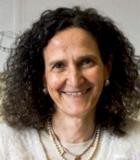
Funzione/Ruolo
Rettrice del Gran Sasso Science Institute (GSSI).
Percorso professionale
Nel 1981 consegue la Laurea in Scienze dell'Informazione all'Università di Pisa. Nello stesso anno entra a far parte della Olivetti con il ruolo di ricercatrice che mantiene anche durante il decennio 1984-1994 presso il CRN di Pisa. Nel 1994 consegue la docenza ordinaria di informatica all'Università dell'Aquila, dove successivamente ricopre diversi ruoli di prestigio nella governance universitaria: dal 1994 al 2000 è Presidente del corso di Laurea di Informatica e successivamente Direttrice del Dipartimento di Informatica. Nel 2008 diventa Preside della Facoltà di Scienze Matematiche, Fisiche e Naturali della stessa università. Dal luglio 2012 al settembre 2013 dirige il Dipartimento di Ingegneria e Scienze dell'Informazione e Matematica (DISIM). Paola Inverardi nell'anno accademico 2013/2014 viene eletta Rettrice dell'Università dell'Aquila, carica che manterrà fino al 31 ottobre 2019. Nel 2022 si trasferisce al Gran Sasso Science Institute, Istituto di Studi Superiori in Matematica, Fisica, Informatica e Scienze sociali, ricoprendo la carica di Rettrice.
Risultati scientifici
I suoi interessi principali riguardano l'ingegneria del software, con particolare attenzione all'area delle architetture software, che includono, oltre all'organizzazione della struttura del sistema stesso, le modalità con cui le diverse parti si integrano e interagiscono a formare un tutt'uno. In tale ambito si è occupata di analisi e verifica di proprietà architetturali sia comportamentali che quantitative per sistemi basati su componenti, distribuiti e mobili. È inoltre attivamente impegnata nella collaborazione con importanti industrie del settore delle tecnologie dell'informazione e delle telecomunicazioni. Svolge regolarmente l'attività di revisora per agenzie internazionali della ricerca e università estere e per la Commissione Europea.
Attività editoriali e pubblicazioni
Autrice di numerose pubblicazioni nazionali ed internazionali fra cui:
2011) Cortellessa V, Di Marco A, Inverardi P. Model-Based Software Performance Analysis. Springer 2011, isbn 978-3-642-13620-7.
(2009) Pelliccione P, Inverardi P, Muccini H. CHARMY: A Framework for Designing and Verifying Architectural Specifications. IEEE Transactions on Software Engineering, 35(3):325-346.
(2004) Balsamo S, Di Marco A, Inverardi P, Simeoni M, Model-Based Performance Prediction in Software Development: A Survey. IEEE Transactions on Software Engineering, 30(5):295-310.
(2004) Muccini H, Bertolino A, Inverardi P, Using Software Architecture for Code Testing. IEEE Transactions on Software Engineering, 30(3):160-171.
(2003) Inverardi P, Tivoli M, Deadlock-free software architectures for COM/DCOM Applications. Journal of Systems and Software, 65(3):173-183.
(2001) F Aquilani, S Balsamo, P Inverardi: Performance analysis at the software architectural design level. Performance Evaluation, 45(2):147-178.
(2000) Inverardi P, Wolf AL, Yankelevich D, Static checking of system behaviors using derived component assumptions. ACM Transactions on Software Engineering and Methodology, 9 (3), 239-272.
(1995) Inverardi P, Nesi M, Deciding observational congruence of finite-state CCS expressions by rewriting Theoretical Computer. Science, 139(1):315-354.
(1995) Inverardi P, Wolf AL, Formal specification and analysis of software architectures using the chemical abstract machine model. IEEE transactions on Software Engineering, 21(4):373-386.
(1993) Inverardi P, Mazzanti F, Experimenting with Dynamic Linking with Ada. Software: Practice and Experience, 23(1):1-14.
Riconoscimenti e premi
A maggio 2011 ha ricevuto un dottorato onorario dalla Mälardalen University in Svezia; nel 2013, il IEEE TCSE Distinguished Service Award "for outstanding and sustained contributions to software engineering community". Inoltre Paola Inverardi è componente di ACM Europe Council e di Academia Europaea.

Funzione/Ruolo
Professoressa ordinaria di Economia Politica e direttrice del centro di ricerca sul Procurement e la Supply Chain presso il Dipartimento di Economia dell’Università di Roma "Tor Vergata"
Percorso professionale
Dopo aver conseguito la laurea in Economia e Commercio presso l'Università di Napoli “Federico II” nel 1993, prosegue la sua formazione con il dottorato in Economia presso la stessa università, conseguendo poi un master in Economics all’Università di York (UK). Dal 1997 al 1999 ricopre la posizione di post-doc, Marie Curie Fellow,presso l’Universitè Libre de Bruxelles.Successivamente si trasferisce a Londra dove lavora come Lecturer,poiReadere infineProfessoralla Brunel University. Dal 2010 è professoressa ordinaria di economia presso il Dipartimento di Economia e Finanza dell’Università di Roma Tor Vergata. E’ stata visiting professor presso numerosi atenei tra cui Havard, Toulouse School of Economics, Paris Sorbonne. E’ attualmente research fellow presso il centro IEFE dell’Università Bocconi e il centro CEPR di Londra. Ha lavorato con molteplici istituzioni internazionali, quali Banca Mondiale, European Commission, OCSE, UK Competition Commission, United Nations IFAD.
Risultati scientifici
L’attività di ricerca di Elisabetta Iossa si svolge nel campo della microeconomia, dell’economia pubblica e dell’economia industriale. Nel corso della sua carriera si è occupata principalmente di tematiche legate alla fornitura di servizi pubblici, alle concessioni e alle infrastrutture e, in generale, di problemi di regolamentazione dei servizi di pubblica utilità. Ha collaborato con numerose istituzioni internazionali sui temi del Partenariato Pubblico Privato, del Project Financing e del Procurement di innovazione. Al dicembre 2017, appare tra il top 5% degli economisti italiani secondo la classifica REPEC ed ha circa 1800 citazioni su Google Scholar.
Attività editoriali e pubblicazioni
Elisabetta Iossa è autrice di numerose pubblicazioni internazionali tra cui:
(in corso di pubblicazione) Iossa E, Biagi F, Valbonesi P. Pre-commercial Procurement, Procurement of Innovative Solutions and Innovation Partnerships in the EU: Rationale and Strategy. Economics of Innovation and New Technology (VQR: B). ID:1402431 DOI:10.1080/10438599.2017.1402431)
(in corso di pubblicazione) Iossa E, Waterson M. Maintaining Dynamic Competition in Procurement: The Case of London Bus Tendering. Transport Policy(VQR: A).https://doi.org/10.1016/j.tranpol.2017.02.012
(2018) Iossa E, Saussier S. Public Private Partnerships in Europe for Building and Managing Public Infrastructures: An Economic Perspective. Annals of Public and Cooperative Economics, 89, 1. DOI:10.1111/apce.12192
(2016) Iossa E, Martimort D. Corruption in PPPs, Incentives and Contract Incompleteness. International Journal of Industrial Organization, 44:85–100.
(2015) Iossa E, Martimort D. Pessimistic Information Gathering. Games and Economic Behavior, 91:75–96.
(2015) Iossa E. Martimort D. The Simple Micro-Economics of Public Private Partnerships.Journal of Public Economic Theory, 17,(1): 4–48.
(2014) Iossa E, Rey P. Building Reputation for Contract Renewal: Implications for Performance Dynamic and Contract Duration. Journal of the European Economic Association, 12(3):549–574.
(2012) Iossa E, Jullien B. The Market for Lawyers and the Quality of Legal Services. RAND Journal of Economics, 43(4): 677-704.
(2012) Iossa E, Martimort D. Risk Allocation and the Costs and Benefits of Public-Private Partnerships. RAND Journal of Economics, 43(3):442-474.
(2011) Iossa E, Georgellis Y, Tabvuma V. Crowding Out Public Sector Motivation. Journal of Public Administration Research and Theory,21(3):473-493.
(2006) Iossa E, Bennet J. Building and Managing Facilities for Public Services. Journal of Public Economics, 90 (10-11):2143-2160. (VQR: A).
(2004) Iossa E, Legros P. Auditing and Property Rights. RAND Journal of Economics, 35:356-372.

Area Politica internazionale
Competenze: attori non-statali nelle relazioni Internazionali, cooperazione globale contro il terrorismo ed il crimine organizzato, gestione dei conflitti e delle crisi internazionali, peacekeeping e missioni civili, simulazioni come strumento di insegnamento innovativo
Parole chiave: attori non-statali, conflitti, criminalità, crimini internazionali, libertà accademica, pace, sicurezza, società civile, terrorismo
Regione: Lazio
Funzione/Ruolo
Professoressa ordinaria di Scienza Politica e Relazioni Internazionali presso la Scuola Superiore Universitaria della Difesa, Roma. Professoressa di Political Violence and Terrorism e di Sustainability and Civil Society alla OSCE Academy Bishkek.
Percorso professionale
Dopo la laurea in scienze politiche, indirizzo internazionale, presso l’Università di Messina, consegue il dottorato in Relazioni Internazionali presso l’Università di Catania nel 2004. Docente a contratto di Relazioni Internazionali presso l’Università di Palermo ed assegnista di ricerca presso l’Università di Messina dal 2004 al 2008. Nel 2008, diventa ricercatrice a tempo indeterminato di Scienza Politica presso l’Università di Catania. Nel 2013 consegue l’abilitazione scientifica nazionale a professoressa di II fascia per il settore SPS/04. Dal 2016, è professoressa associata di Scienza Politica presso l’Università di Catania. Nel 2017 consegue l’abilitazione scientifica nazionale a professoressa di I fascia per il settore SPS/04.
Fino a settembre 2023 è professoressa associata di Scienza Politica presso l’Università di Catania, dove ricopre gli incarichi di Delegata del Rettore al Coordinamento Istituzionale Erasmus, Presidente del Corso di laurea magistrale in Global Politics and Euromediterranean Relations (GLOPEM) e vice-coordinatrice del Dottorato in Scienze Politiche.
Daniela Irrera fa anche parte del comitato esecutivo dello European Consortium for Political Research (ECPR) e Chair dello ECPR Working Group on Academic Freedom. E’ stata componente del Governing Council dell’International Studies Association (2019-2021), Segretaria della Società Italiana di Scienza Politica (SISP) (2018-2021), Chair dello ECPR Standing Group on International Relations (2019-2021), Presidente della European Peace Research Association (EuPRA) (2017-2022).
Risultati scientifici
Si occupa dell’influenza degli attori non-statali sulla politica globale, connettendo il potenziale positivo (società civile e ONG) a quello negativo (organizzazioni criminali e gruppi terroristici). Le sue ricerche sono state supportate da diversi programmi di finanziamento quali Fulbright, DAAD, Marie Curie.
E’ Principal Investigator dell’unità UNICT del Progetto Mapping and Organizing Research on Dictatorships: Open access Repository (MORDOR), un Progetto Erasmus + Cooperation Partnership for higher education K220.
E’ inoltre membro dell’azione COST CA21133 – Globalization, Illicit Trade, Sustainability and Security (GLITSS).
Attività editoriali e pubblicazioni
Daniela Irrera è associate editor del Journal of Contemporary European Studies e coeditor della Springer book series Non-State Actors in International Relations, insieme a Marianna Charountaki.
Ha numerose pubblicazioni, monografie, curatele, capitoli in volume e articoli in rivista (tra le altre, in riviste quali Global Crime, The European Union Review, Perspectives in European Politics and Society, European Foreign Affairs Review).
Qui di seguito, una selezione.
[2022] Irrera D. Les ONG et la vulnérabilité en temps de crise, entre continuité et innovation. HERMÈS, 89: 135-140.
[2021] Irrera D. Non-state actors and conflict management in proxy wars. In Oxford Research Encyclopedia of Oxford Research Encyclopedia of International Studies, Oxford University Press.
021] Irrera D. Managing African conflicts: using CSDP missions to cope with terrorism and organized crime. In V. Fargion & M. Gazibo (eds.), 'Revisiting EU-Africa Relations in a Changing World, Edward Elgar'. Cheltenham, pp. 24-36.
[2020] Irrera D. Simulating conflict resolution dynamics and fostering negotiation skills. OASIS. 33 (oct. 2020), pp. 13-28.
[2020] Irrera D. NGOs in mitigating the effects of COVID-19 on migrants and refugees: A reopening of public space. Policy Brief, 3 (2), 2020, Yasar University UNESCO Chair on International Migration.
[2019] Wong, R. Irrera D. Regional Variations and Crisis. In Jae-Jae Spoon and Nils Ringe (eds.) 'Regional Variations and Crisis Comparing European Union and Association of Southeast Asian Nations Integration Dynamics, in The European Union and beyond'. ECPR Press, Rowan & Littlefield, London, pp. 215-236.
[2019] Irrera D. NGOs and Security in Conflict Zones. In Thomas Davies (eds.), ‘Routledge Handbook of NGOs and International Relations’. Routledge, London.
[2018] Irrera D. The Relevance of Third-Party Intervention. (Virtual Special Issue), Conflict Management and Peace Science.
[2018] Irrera D. Organised Crime: balancing between national constraints and global necessities. In Ripoll Servent, Ariadna & Trauner, Florian (eds.), ‘Routledge Handbook of Justice and Home Affairs Research’. Routledge, London.
[2018] Irrera D. EU Emergency Response Policies and NGOs. Trends and Innovations. Palgrave, Basingstoke.
[2016] Irrera D. Migrants, the EU and NGOs: The ‘Practice’ of non-governmental SAR operations. Romanian Journal of European Affairs, 16 (3), pp. 20-35.
[2014] Stavridis S. Irrera D. The European Parliament and its International Relations. Routledge, London.
Riconoscimenti e premi
2019 Grant ISA “The United Nations At 75”, Geneva.
2019 Marie Curie Secondment H2020-Marie Sklodowska Curie Actions-RISE, “KANTINSA - Kant in South America”, Universidade Federal de Santa Catarina, Florianopolis, Brazil.
2020 Premio alla simulazione Game of Peace, the best European teaching practices that enhance learning for international students (IMPACT Project).

Funzione/Ruolo
Docente di fisica, editor scientifica, autrice di manuali di fisica e di saggi scientifici.
Percorso professionale
Elena Joli si laurea in Fisica nel 1993 presso l’Università di Bologna discutendo una tesi di gravità quantistica. Consegue un DEA (Diplôme d’Études Approfondies) en Physique Theorique a Parigi presso l’École Normale Supérieure e il Laboratoire de Physique Théorique et Mathématique dell’Universitè di Jussieu-Paris VII nel 1997. In questo periodo si interessa di epistemologia e comunicazione della scienza e, rientrata in Italia, nel 2002 ottiene il Master in Comunicazione della Scienza presso la SISSA (Scuola Internazionale Superiore di Studi Avanzati) di Trieste, discutendo una tesi sul ruolo della metafora nella scienza e nella sua comunicazione. Dal 1995 inizia a collaborare in modo permanente in ambito editoriale con le Edizioni Dedalo (Bari) prima come traduttrice tecnica dall’inglese e dal francese, poi come consulente scientifica con incarichi di editor scientifica, curando le collane di divulgazione scientifica della casa editrice. Dal 2003 inizia a collaborare con la Zanichelli (Bologna) come autrice di manuali di fisica e materiali didattici digitali per la scuola superiore in collaborazione con il Professor Ugo Amaldi. Dal 2001 inizia la sua attività part-time come professoressa di Fisica nella scuola superiore. Dal 2014 è membro dell’editorial board della rivista di divulgazione scientifica Sapere; dal 2018 è membro del Comitato Scientifico del Museo dell’Ecologia della citta di Cesena. Nel 2018 partecipa alla spedizione australiana Homeward Bound in Antartide, visitando le basi scientifiche Palmer Station e Rothera Station e occupandosi di fisica dei cambiamenti climatici e di comunicazione scientifica sulle questioni ambientali.
Risultati scientifici
Le principali aree di interesse e ricerca di Elena Ioli si sono concentrate, all’avvio dei suoi studi universitari, su modelli bidimensionali di gravità quantistica per la descrizione dei buchi neri. In seguito, ha iniziato a occuparsi di comunicazione della scienza in ambito editoriale, prima come traduttrice di saggi e articoli tecnico-scientifici poi come editor scientifica e come esperta di didattica della fisica per l’insegnamento nella scuola secondaria superiore. Ha curato l’edizione italiana delle lezioni di fisica che il premio Nobel per la Fisica Marie Curie ha tenuto nel 1907 a Parigi grazie a una borsa di studio del Centre National di livre, Ministère de la Culture et de la Communication francese. Attualmente, sta curando la traduzione italiana di un saggio di Alain Aspect, premio Nobel per la Fisica nel 2022. Nel 2018 è stata selezionata per partecipare a una spedizione di scienza, comunicazione e leadership al femminile in Antartide, con il progetto australiano Homeward Bound, come unica italiana insieme ad altre 76 scienziate provenienti da 21 diversi paesi nel mondo. Ha partecipato come speaker su temi legati all’emergenza climatica a trasmissioni televisive (fra cui Maestri RaiScuola) e radiofoniche nazionali e australiane, a Festival della scienza (Genova, Foligno, Bookcity Milano, Polignano “Festival del libro possibile”), a TEdX Women Navigli Milano, al progetto Masterclass del polo di tecnologia educativa digitale Treccani futura.
Attività editoriali e pubblicazioni
[2021] Ioli E., "The circle", Wired (Climate change issue), 98 :155-61.
[2020] Ioli E., Antartide. Come cambia il clima, Bologna: Dedalo.
[2018] Ioli E., "Le regine delle nevi: una spedizione al femminile in Antartide", Sapere, 4:10-7 https://doi 10.12919/sapere.2018.04.1
[2013] Ioli E., Nero come un buco nero, Bari: Dedalo (tradotto in francese da Le Pommier e in inglese da World Scientific Press; traduzione in cinese in corso per Daylight Publishing House).
[2007] Ioli E., “Una piccola differenza", in Sandrelli, Gouthier, Ghattas (eds), Tutti i numeri sono uguali a cinque, pp 167-170; Springer.
[2006] Gouthier D., Ioli E., Le parole di Einstein, Bari: Dedalo.

Funzione/Ruolo
Economista, già Professoressa di Economia politica all’Università La Sapienza di Roma
Percorso professionale
Dopo aver studiato per due anni alla Facoltà di Economia di Trieste sotto la direzione del Prof. Renato Zangheri, completa gli studi e si laurea alla Bocconi di Milano nel 1968. Nello stesso anno è ammessa alla Graduate School of Economics del MIT (Massachusetts Institute of Technology), dove nel 1970 riceve un Master of Science con il massimo dei voti. Inizia a insegnare a 25 anni. E’ prima Assistente e poi Professoressa incaricata di Economia Bancaria presso la Facoltà di Statistica dell’Università “La Sapienza” di Roma. Nel 1980 vince il concorso per Professoressa Ordinaria, ricoprendo inizialmente la cattedra di Politica Economica della Facoltà di Economia dell’Università di Trieste Dal 1983 al 1989 insegna alla Scuola Superiore di Pubblica Amministrazione di Roma ed è Professoressa a contratto alla LUISS dal 1983-84 nella Facoltà di Economia e dal 1984 al 1992 nella Facoltà di Giurisprudenza. Dal 1989 è Professoressa di Economia Politica alla Facoltà di Economia dell’Università “La Sapienza” di Roma. Nel 2004 entra nel Consiglio Direttivo del CIVR (Comitato di Indirizzo per la Valutazione della Ricerca) che lascia nel 2011, maturati 41 anni di anzianità, a seguito della nomina nel Consiglio Direttivo dell’ANVUR, dove rimane fino al 2015. Nel 2014 è eletta prima donna Presidente del gruppo di Comunità Ebraica Riformata di Roma, Beth Hillel, che fa parte dell’European Union for Progressive Judaism. Fa parte del Comitato Scientifico della “Rivista di Politica Economica”.
Ha lavorato in numerose Università estere, a cominciare dal MIT, proseguendo con l’Università di Louvain-la-Neuve, Oxford, Columbia University di New York, Harvard, Washington DC. Sempre all’estero ha insegnato all’Université Libre de Bruxelles, alla Fondation Nationale de Sciences Politiquesdi Parigi, alla ColumbiaUniversity, al College of Europedi Bruges Dal 2010 al 2014 è stata uno dei 7 membri dell’Economic Expert Group creato dall’ Educational Testing Service (ETS) di Princeton.
E’ stata a capo di istituti di ricerca e valutazione economica e consulente di enti e istituzioni private e pubbliche, si è dedicata alla divulgazione della teoria economica: in particolare, ha diretto la Serie di Libri di Economia per l’Editore Hoepli; ha condotto la rubrica settimanale “Lessico dell’economia” per Radio Radicale in 5 semestri, dal 2003 al 2008. E’ stata direttrice scientifica del “Dizionario di Economia e Finanza” dell’Enciclopedia Treccani. Fa parte dell’Osservatorio della Fondazione CRUI per il dialogo e la cooperazione tra Università e Imprese dal 2016. E’ editorialista del Sole 24 oredal 2000.
Nell’ambito della ricerca economica è stata tra l’altro Presidente dell’ISPE- Istituto di Studi per la Programmazione Economica dal 1993 al 1998, e Presidente dell’ISAE - Istituto di Studi e Analisi Economica dal 1999 al 2003, con il doppio ruolo di Direttrice della Ricerca e di Capo del Consiglio di Amministrazione; negli stessi anni è stata membro del Comitato di Coordinamento dei Presidenti degli Enti di Ricerca Italiani. Ha svolto vari ruoli di coordinamento scientifico per il CNR, è stata Vice-Coordinatrice del Prof Franco Modigliani nel Progetto Strategico “Il risanamento della finanza pubblica in Italia” dal 1992 al ’97. Fiorella Kostoris ha anche fatto parte della Segreteria Tecnica della Ministra Moratti nel MIUR nel 2003-06; è stata consulente economica del Presidente della Regione Friuli-Venezia Giulia, Riccardo Illy, nel 2005; membro della Commissione istituita dal Ministro Brunetta della Funzione Pubblica per l’adeguamento dell’età pensionabile delle lavoratrici nel pubblico impiego nel 2009. Dal 2016 è membro del Comitato di Riflessione e Indirizzo Strategico del Ministero degli Affari esteri e della Cooperazione Internazionale.
Ha fatto parte di numerosi Consigli Direttivi, fra cui quello dell’Aspen Institute Italia(1994-2003), il Comitato Scientifico di Confindustria (1998-2000) e Italia Lavoro SPA (1999-2010). E’ stata consigliera d’amministrazione del Fondo Etico della Banca Nazionale del Lavoro per la Telethon dal 2002 al 2007; consulente per Unicredit Banca Impresa, nel 2005 è membro del Cda e dal 2007 al 2009 Presidente della Sella Gestioni SGR e infine consulente della Holding del Gruppo Banca Sella nel 2009. Dal 2015 fa parte del Consiglio di Amministrazione del Monte dei Paschi di Siena ed è Presidente del Comitato per le Parti Correlate.
E’ stata membro del Comitato di Coordinamento, costituito nel 1994 presso la Presidenza del Consiglio nell’ambito della Commissione Nazionale per la Parità e le Pari Opportunità tra Uomo e Donna, teso alla stesura del “Rapporto del Governo italiano alla IV Conferenza Mondiale dell’ONU sulle Donne”, tenuta a Pechino nel settembre 1995, cui ha partecipato sia come membro nella delegazione nazionale, sia come rappresentante della NGO internazionale “Les femmes de la Méditerranée”. E’ stata la prima presidente dell’Associazione Pari o Dispare.
Farà parte del nascente Steering Committee della Women in Finance Initiative promossa dall’Ambasciata Britannica.
Risultati scientifici
La caratteristica generale della sua attività di ricerca si fonda su una base analitica con un forte orientamento di policy. Si è impegnata negli anni in una analisi della politica economica e della finanza pubblica in Italia, delle riforme del sistema pensionistico, del debito della Pubblica Amministrazione italiana tanto a livello statale che regionale e comunale, anche in funzione di possibili privatizzazioni. Il suo lavoro si è focalizzato anche sull’analisi del mercato del lavoro, mettendo a confronto l’Italia e altri Paesi in Europa e nel mondo, per quanto riguarda i settori pubblico e privato, le fasce deboli giovanili, le donne, i paesi in via di sviluppo, i flussi migratori. Ha affrontato questioni di macroeconomia europea: dal principio del mutuo riconoscimento nel sistema delle 4 libertà, al Patto di Stabilità e Crescita e il Fiscal Compact. Si è occupata di misura dei risultati qualitativi della ricerca e della didattica, soft skills, competenze trasversali, learning outcomes, in un settore strategico come l’Università. La sua attività si è sempre svolta in conformità con l’impegno contro la segregazione, la mancanza di opportunità e la scarsa meritocrazia riservata in Italia alle lavoratrici.
Il suo impegno in favore delle lavoratrici si è manifestato nello studio di soluzioni per il miglioramento della qualità della vita e del lavoro delle donne e nella partecipazione a progetti e iniziative a livello nazionale.
Attività editoriali e pubblicazioni
Fiorella Kostoris ha all’attivo numerose pubblicazioni, fra cui una serie specificamente alla gender economics, di cui si ricordano:
(2009) Kostoris F. L’età pensionabile femminile e i problemi strutturali della donna italiana nel mercato del lavoro, in Bonino E. (a cura di), Pensionata sarà lei, Catanzaro, Rubettino Editore, 2009, pp. 31-36.
(2009) Kostoris F. A proposito di donne e di pensioni. Formiche, VI, 35, p. 53.
(2008) Kostoris F. Occupazione femminile: una leva per la competitività, Fondazione Universitaria Marco Biagi, Adapt, 2, 3 marzo 2008, www.fmb.unimore.it/on-line/Home/NewsletterBollettinoAdapt/IDossierdiAdapt.html.
(2008) Kostoris F. Le politiche per la donna nel mercato del lavoro italiano. Diritto delle Relazioni Industriali, 2, XVIII, pp. 479-490.
(2007) Kostoris F. La donna lavoratrice a 60 anni dalla Costituzione Italiana. Rivista di Politica Economica, VII-VIII, pp. 135-225.
(2007) Kostoris F. Le pensioni delle donne, le pensioni degli uomini: privilegi, parità, giusti sostegni e compensazioni. TFR, Pensioni, Fondi Pensione, allegato al n. 23 di Panorama Economy.
(1995) Kostoris F. Is There Female Parity in the Italian Labour Market? ISPE Documenti di Lavoro, 20.
(1994) Kostoris F. Retribuzione femminile: parità formale, disparità sostanziale nel pubblico e nel privato fra lavoratori e lavoratrici oggi in Italia. Commissione Nazionale per la Parità e le Pari Opportunità tra Uomo e Donna (a cura di), Atti del Convegno Nazionale Ruolo e Prospettive delle Donne nell'Economia, Roma, Istituto Poligrafico e Zecca dello Stato, 1994, pp. 9-59.
(1979) Kostoris F. Assenteismo e turnover nell'occupazione femminile. Un confronto fra l'Italia e gli Stati Uniti. Queste Istituzioni, 29, pp. 23-45.
(1974) Kostoris F. La forza lavoro femminile, Bologna, il Mulino.
Riconoscimenti e premi
Fiorella Kostoris Padoa Schioppa è stata nominata “Grande Ufficiale al Merito” dal Presidente della Repubblica ItalianaCiampi nel 2000; è stata nominata Officier dans l’Ordre National de la Légion d’Honneurdal Presidente della Repubblica Francese Chirac nel 2001; è stata insignita del “Premio Capalbio 2004” per la Politica Economica per il libro Lessico dell’Economia.
Per il suo impegno civile e scientifico, è stata insignita del Premio “Donna Ande - Giuliana Florio” nel 1998; del Premio “Donne Dirigenti d’Azienda Italiane” nel 2000; del Premio “Marisa Bellisario” per la finanza e l’economia nel 2001.

Funzione/Ruolo
Professoressa di Filosofia del Diritto presso il Dipartimento di Filosofia e Comunicazione dell’Università degli Studi di Bologna e membro del Comitato di Bioetica dello stesso Ateneo.
Percorso professionale
Alla fine degli anni Ottanta inizia la propria formazione filosofica universitaria iscrivendosi alla Facoltà di Lettere e Filosofia dell'Università degli Studi di Bologna: Corso di Laurea in Filosofia con indirizzo pratico-filosofico. Nel periodo del Dottorato di Ricerca in "Storia del pensiero politico e delle istituzioni politiche" presso l'Università degli Studi di Torino frequenta i seminari di Philosophy of Law tenuti dal prof. Massimo La Torre presso l'Istituto Universitario Europeo di Fiesole (Firenze) e quelli del prof. Otfried Höffe presso il Philosophisches Seminardell’Università di Tubinga, in Germania. Nel 2001 è Ricercatrice di Filosofia morale presso il Dipartimento di Filosofia dell’Università di Bologna. Dopo aver insegnato per un decennio Storia della filosofia morale e Storia delle dottrine politiche anche all’Ateneo di Catanzaro, ricopre la cattedra di Filosofia del diritto e Bioetica nel Dipartimento di Filosofia e Comunicazione di Bologna.
Risultati scientifici
Gli inizi della ricerca di Lalatta Costerbosa hanno riguardato questioni di giustizia contemporanee e autori classici in particolare della tradizione democratica e liberale, su tutti Immanuel Kant e Wilhelm von Humboldt. Col tempo la ricerca ha assunto tratti sempre più decisi nel senso della sua dimensione normativa e concettuale, ma anche applicativa dell'etica e della filosofia del diritto. Di recente parte dell’attività di ricerca si è rivolta a due forme della violenza tra le altre: la questione della tortura e la violenza sui bambini. Il tema della violenza, del male, del consenso al male e della responsabilità morale è infine un filone di indagine sempre curato nel corso degli anni sullo sfondo soprattutto della tragica vicenda del nazismo. Attualmente al centro dello studio è la giustificazione teorica dei diritti dei minori e del loro primato.
Attività editoriali e pubblicazioni
[2021] Lalatta Costerbosa M, Gustav Radbruch, Diritto e no. Traduzione, saggio introduttivo e cura di Marina Lalatta Costerbosa, Milano, Mimesis.
[2020] Lalatta Costerbosa M, Autonomia diacronica. Rispetto del bambino e antipaternalismo sociale. In L’antipaternalismo giuridico e il problema della vulnerabilità, a cura di Nicola Riva, Roma, Carocci.
[2020] Lalatta Costerbosa M, (con Francesco Cerrato) L’Europa allo specchio. Identità, cittadinanza, diritti. Bologna, il Mulino.
[2019] Lalatta Costerbosa M, Il bambino come nemico. L’eccezione humboldtiana. Roma, DeriveApprodi.
[2019] Lalatta Costerbosa M, I diritti dei bambini come priorità. Una vicenda europea. Rivista di filosofia del diritto, VIII (numero speciale): 137-160.
[2018] Lalatta Costerbosa M, Democracy Is Inclusive. Arendt’s Paradigm. Soft Power, 6 (1): 164-184.
[2016] Lalatta Costerbosa M, (con Alberto Burgio), Orgoglio e genocidio. L’etica dello sterminio nella Germania nazista. Roma, DeriveApprodi.
[2015] Lalatta Costerbosa M, Lo spazio della responsabilità. Approdi e limiti delle neuroscienze. Bologna, il Mulino.
[2014] Lalatta Costerbosa M, La democrazia assediata. Saggio sui principi e sulla loro violazione. Roma, DeriveApprodi.
[2013] Lalatta Costerbosa M, (con Massimo La Torre), Legalizzare la tortura? Ascesa e declino dello Stato di diritto. Bologna, il Mulino.
[2012] Lalatta Costerbosa M, Una bioetica degli argomenti. Torino, Giappichelli.
[2012] Lalatta Costerbosa M, Il silenzio della tortura. Contro un crimine estremo, Roma, DeriveApprodi, 2016.
Riconoscimenti e premi
Nel 2009 vince il Premio I.G.E.M. (International Genetically Engineered Machines Competition) di Cambridge/Massachusetts: Gold Award (31 ottobre-2 novembre) (Team Unibo).

Area STEM: Ingegneria
Competenze: economia dello spazio, geo-informazione, ingegneria dei costi, ingegneria spaziale, relazioni internazionali, valutazione programmatica e tecnologica
Parole chiave: Alitalia SpA, ASI (Agenzia Spaziale Italiana), Copernicus, ESA (European Space Agency), NASA (National Aeronautics and Space Administration)
Regione: ESTERO
Funzione/Ruolo
Cost Engineer presso l'Agenzia Spaziale Europea (ESA).
Percorso professionale
Elisabetta Lamboglia si laurea presso l'Unversità La Sapienza di Roma in Ingegneria Aerospaziale nel 2003 includendo un’esperienza di sei mesi in ingegneria della manutenzione presso l'Area Tecnica di Alitalia SpA. Nel dicembre 2006 si laurea con lode in Ingegneria Astronautica, presso la Scuola di Ingegneria Aerospaziale, La Sapienza, includendo un’esperienza di quattro mesi come stagista al centro europeo per la ricerca spaziale e tecnologia (ESTEC, Agenzia Spaziale Europea).
Nel 2007 inizia l’esperienza lavorativa in ESTEC come giovane professionista, occuoandosi di modellizzazione dei dati finanziari e di rischio dei sistemi satellitari europei, di 'effetti del mercato' sui componenti spaziali, consulenza di sistema ed economica in disegni e progettazione di missioni spaziali future.
A Giugno 2009 inizia l'esperienza al centro di ricerca NASA Ames (Silicon Valley, California), dove consegue la certificazione in applicazioni spaziali rilasciato dall'Università Spaziale Internazionale (ISU), e dove ha la possibilità di relazionarsi con più di 130 altri professionisti e per un totale di oltre 40 nazionalità diverse. Sempre alla NASA lavora al progetto DREAM (Disaster Risk Evaluation and Management), commissionata dalla Banca Mondiale (the World Bank), il cui obiettivo è l'esplorazione di tecnologie e processi innovativi per applicazioni di gestione dei rischi da catastrofe (Distaster Risk Management).
Da Settembre 2009 a marzo 2010, lavora nell'area business di una compagnia olandese leader del settore petrolchimico (Heerema Marine Contractors), dove dimostra versatilità avendo esteso le capacità lavorative anche nel settore finanziario, in un momento storico particolarmente provato dalla crisi economica del 2008.
Da marzo 2010 ritorna all'Agenzia Spaziale Europea come cost engineer, parte del direttorato della Tecnologia, Ingegneria, e Qualità (TEC), dove supporta diversi progetti trasversalmente in tutti i direttorati.
Nel 2013 viene nominata commissaria esterna nella valutazione indipendente programmatica del progetto PRISMA dell'Agenzia Spaziale Italiana (ASI), il cui obiettivo è il monitoraggio o stato delle risorse naturali, la qualità dell'aria e i livelli di inquinamento.
Nel 2015 ottiene il diploma di laurea in Relazioni Internazionali alla London School of Economics and Political Science (LSE), dove espande ulteriormente conoscenza e capacità in diplomazia, sicurezza internazionale ed ambientale.
Dal 2017 ricopre il ruolo di coordinatrice del team di ingegneri di costi dell'ESA per missioni di monitoraggio globale e sicurezza ambientale (Copernicus) e tutte le missioni di osservazione della Terra.
Nel 2020 consegue diversi certificati rilasciati dall'Organizzazione delle Nazioni Unite (UN), tra cui `Impenditoria per migranti e rifugiuati` e `Tecnologie di Informazione geografica in contesti di fragilità', `Pianificazione integrata nel cambiamento climatico e biodiversità.
Dal novembre 2021 è Mentoring, per ESA, nel Programma STEM Talent Girl, un progetto educativo di formazione e promozione di talenti nel settore tecnico scientifico, un’iniziativa rivolta alle donne, con l’obiettivo di ispirare e sostenere le ragazze nel loro percorso e carriere in materie STEM.
Risultati scientifici
Durante la preparazione della tesi di laurea specialistica ha contribuito alle attività del gruppo GAUSS della Scuola di Ingegneria Aerospaziale dell'Università La Sapienza di Roma, inclusa la partecipazione al lancio del microsatellite UniSat 4 dal cosmodromo di Baikonur in Kazakhstan (26 Luglio 2006).
Da giovane professionista ha lavorato all'ottimizzazione di modelli matematici per costi e rischi di missioni spaziali, ancora operativi. Ha partecipato a studi di fattibilità di diverse missioni spaziali tra cui Copernicus Sentinel 5p, lanciato con successo nell'ottobre 2017.
Negli anni successivi viene nominata come esperta indipendente in diverse valutazioni programmatiche, finanziarie, dialoghi e negoziazioni per implementazione di progetti sviluppati in ESTEC. In aggiunta svolge un ruolo di coordinazione ed armonizzazione in gruppi di lavoro per la selezione delle missioni nel programma `Earth Explorers`, in stretta collaborazione con alti dirigenti dell'Agenzia Spaziale Europea.
Ha seguito da commissaria esterna le criticità della missione Italiana PRISMA investigate, identificate, ed infine affrontate con successo con la messa in orbita del satellite nel marzo 2019.
Negli anni 2017-2020 è stata assegnata al programma di espansione di Copernicus (CHIME, LSTM, CO2M, ROSE-L, CRISTAL, CIMR), che ha supportato nella fase di preparazione al Consiglio ESA a livello ministeriale (Space19+) e avvio di implementazione delle singole missioni.
Da marzo 2022 a giugno 2023, è stata nominata Leader per il Clima e la Sostenibilità per la Strategia, Previsione e Coordinamento dell'ESA. In questo ruolo, è stata responsabile dello Studio Arrhenius e ha guidato la Strategia di Sostenibilità dell'ESA per l'EGA, il Gruppo di Lavoro sulla Decarbonizzazione e l'Azione per il Clima, LCA e Tecnologie Verdi. Ha rappresentato l'ESA nelle collaborazioni con la Commissione Europea e l'Agenzia dell'Unione Europea per il Programma Spaziale sulle Ambizioni del Green Deal relative alla Politica Spaziale e Ambientale.
Rappresentante del settore spaziale in forum internazionali come il Consiglio per le relazioni tra Italia e Stati Uniti (Consiusa), attualmente guida progetti, concentrandosi su ricerca e sviluppo utilizzando dati e IA per applicazioni in Osservazione della Terra e commercializzazione, insieme al suo dottorato di ricerca in Geoinformazione.
Attività editoriali e pubblicazioni
[2025] New Space markets: the European perspective on new frontiers, commercialization, and domestic uses of space applications, E. Lamboglia at all., in T. Hoerber, M. Borowitz, A. Forganni, & de Sousa, M. (Eds.), Routledge Handbook of Space Policy, Routledge, 2025. Doi:10.4324/9781003342380-35.https://www.taylorfrancis.com/chapters/edit/10.4324/9781003342380-35/newspace-markets-elisabetta-lamboglia-vedant-mogha-michel-van-pelt
[2024] The evolution of Earth Observation: exploring space sustainability through European case studies, E. Lamboglia et al., (2024). International Journal of Sustainable Engineering, 17(1), 1–10. https://doi.org/10.1080/19397038.2024.2387427
[2024] Long-term temporal analysis of Sentinel-2 spectral reflectance data for post-earthquake monitoring of urban environment dynamics, E. Lamboglia et al., (2024). European Journal of Remote Sensing, 58(1). https://doi.org/10.1080/22797254.2024.2445658, European Journal of Remote Sensing, 58(1) · Dec 24, 2024
[2024] Long-Term Post-Earthquake Monitoring of Urban Areas Based on Time Series Analysis of Sentinel-2 Spectral Reflectance Data, G. Guerrisi, E. Lamboglia, S. Bonafoni and F. Del Frate, IGARSS 2024 - 2024 IEEE International Geoscience and Remote Sensing Symposium, Athens, Greece, 2024, pp. 3897-3901, https://doi.org/10.1109/IGARSS53475.2024.10642433
[2024] An attractive European Earth Observation Ecosystem of Services: Flexible, scalable, and cost-effective data spaces empowering downstream business opportunities, E. Lamboglia et al., (2024), in Proc. 75th Int. Astronaut. Congr. (IAC), Milan, Italy.
[2023] The potential of hybrid hyperspectral constellations, Steven George et al., 14th IAA SSEO, 8-12 May 2023
[2023] New Space SmallSats concepts, from programmatic to governance and sustainability benefits - the ESA perspective and lesson learnt, Lamboglia et al., 14th IAA SSEO, 8-12 May 2023
[2022] The socioeconomic benefits of Earth Observation applications in the New Space era, Elisabetta Lamboglia, Vedant Paul Mogha, IAC 2022, Paris, 21 Sep 2022, https://dl.iafastro.directory/event/IAC-2022/paper/67962/
[2022] Estimating Copernicus High Priority Candidate Missions Jobs for Europe, Elisabetta Lamboglia, Luisa Corrado, Fabio Del Frate, IAC 2022, Paris, 21 Sep 2022
[2021] Elisabetta Lamboglia, ESTEC, The benefit of Full, Free and Open Satellite geoinformation for detecting and monitoring socio-economic factors on land use, 12th ESSCA Space Policy Workshop (28 April 2021) & UACES 2021 (6-8 September 2021, Space Policy panel)
[2018] Lamboglia E. Extensive Cost Estimating methodologies for the CDF GaiaNIR study, SECESA.
[2014] Lamboglia E. A tool for rapid and early schedule estimates, Project Control Professional.
Riconoscimenti e premi
ESA Teamwork Excellence Award 2019: Copernicus High Priority Candidate Missions Phase A/B1 team.
ESA Teamwork Excellence Award 2019: Concurrent Design Facility team (Future Mission Studies).
Best Mentor Award 2023, Space Generation Advisory Council, in Support of the United Nations Programme on Space Applications. https://spacegeneration.org/best-mentor-spring-2023-elisabetta-lamboglia.

Funzione/Ruolo
Prima Ricercatrice del Consiglio Nazionale delle Ricerche (CNR), presso l’Istituto di Nanotecnologia (NANOTEC) di Lecce.
Percorso professionale
Dopo aver conseguito la laurea in Fisica all'Università di Roma La Sapienza nel 1995, prosegue il suo percorso formativo in Francia presso l’Université Cotê d`Azur, conseguendo un dottorato di ricerca in Fisica nel dicembre 1999. Dal 2000 al 2001 è Post-doc con un contratto INFM presso il Dipartimento di Fisica dell’Università Tor Vergata di Roma. Dal gennaio 2002 al novembre 2018, è ricercatrice del Consiglio Nazionale delle Ricerche, presso l’Istituto di Scienze dell’Atmosfera e del Clima. Dal 2019 è Senior Scientist (Prima Ricercatrice) presso l’Istituto di Nanotecnologia del CNR, a Lecce.
Risultati scientifici
Alessandra è una fisica teorica, esperta di metodi computazionali per la dinamica dei fluidi e i fluidi complessi. A partire dal dottorato nel 1996, il suo lavoro si è concentrato sulla descrizione statistica e dinamica della turbolenza, in flussi ideali e complessi. Dal 2003, ha studiato il comportamento di flussi multifase, costituiti da sospensioni turbolente di piccole particelle, come ad esempio particelle di aerosol in aria o goccioline di pioggia, con applicazioni in problemi di ingegneria e geofisica. Ha partecipato e diretto vari progetti di super calcolo, grazie a grant europei PRACE. Dal 2006, è coordinator locale (Unità INFN DI Lecce) del progetto “Particles and Fields in Complex flows” dell’Istituto Nazionale di Fisica Nucleare. Parallelamente all’attività di ricerca, ha organizzato numerose scuole di fisica e workshop per giovani ricercatori/trici.
Attività editoriali e pubblicazioni
Alessandra Lanotte è Deputy Editor di Europhysics Letters (EPL) EPS ed è stata precedentemente Associate Editor di Physics of Fluids, AIPP.
E' stata Guest editor delle Focus Issues "Turbulent regimes in Bose-Einstein Condensates", EPL (2021), e "Two-Dimensional Turbulence", Physics of Fluids (2017), e dei numeri speciali "Flowing Matter Across the Scales", EPJE (2015) e "Lagrangian Dynamics", Journal of Turbulence(2007).
Fra le sue pubblicazioni, si segnalano le seguenti.
[2021] Panico R, Macorini G, Dominici L, Gianfrate A, Fieramosca A, De Giorgi M, Gigli G, Sanvitto D, Lanotte A S, Ballarini D. Dynamics of a Vortex Lattice in an Expanding Polariton Quantum Fluid. Physical Review Letters 127 (4), 047401.
[2016] Biferale L, Bonaccorso F, Mazzitelli I M, van Hinsberg M A T, Lanotte A S, Musacchio S, Perlekar P, Toschi F. Coherent structures and extreme events in rotating multiphase turbulent flows. Phys. Rev. X 6, 041036.
[2015] Lanotte A S, Benzi R, Malapaka S K, Toschi F, Biferale L. Turbulence on a Fractal Fourier set. Phys. Rev. Letters 115, 264502.
[2013] Lanotte A S, Mazzitelli I M. Scalar turbulence in convective boundary layers with different entrainment fluxes. Journ. Atmos. Sci. 70, 248-265.
[2012] Baebler M U, Biferale L, Lanotte A S. Break-up of small aggregates driven by turbulent hydrodynamical stress. Phys. Review E.85.025301.
[2010] Bec J, Biferale L, Lanotte A S, Scagliarini A, Toschi F. Turbulent pair dispersion of inertial particles. Journ. Fluid Mech. 645, 497.
[2009] Lanotte A S, Seminara A, Toschi F. Cloud droplet growth by condensation in homogeneous isotropic turbulence, Journ. Atmos. Sci. 66, 1685.
[2008] Arnéodo A, et al. Universal intermittent properties of particle trajectories in highly turbulent flows. Physical Review Letters 100 (25), 254504.
[2007] Bec J, Biferale L, Cencini M, Lanotte A S, Musacchio S, Toschi F. Heavy particle concentration in turbulence at dissipative and inertial scales. Phys Rev Lett. 98, 084502.
[2004] Biferale L, Boffetta G, Celani A, Devenish B J, Lanotte A, Toschi F. Multifractal statistics of Lagrangian velocity and acceleration in turbulence. Physical Review Letters 93 (6), 064502.
[2000] Celani A, Lanotte A, Mazzino A, Vergassola M. Universality and saturation of intermittency in passive scalar turbulence. Physical Review Letters 84 (11), 2385.
[1999] Lanotte A, Noullez A, Vergassola M, Wirth A. Large-scale dynamo produced by negative magnetic eddy diffusivities. Geophys. Astrophys. Fluid Dyn. 91, 131.

Funzione/Ruolo
Professoressa ordinaria di Patologia generale, Group Leader del Laboratorio di Oncologia Molecolare, membro fondatore del Centro per la Complessità e Biosistemi, presso l'Università degli Studi di Milano
Percorso professionale
Caterina A. M. La Porta è professoressa ordinaria di Patologia Generale, responsabile del Laboratorio Oncolab (www.oncolab.it) del Dipartimento di Scienze e Politiche Ambientali e membro del comitato direttivo del Center for Complexity and Biosystems (www.complexitybiosystems.it), del Centro per l’Innovazione per il Benessere e l’Ambiente e del Centro per la chemioprevenzione molecolare (CMCP) delle malattie cronico-degenerative (CDS) dell’Università degli Studi di Milano.
Dal 2022 è anche coordinatrice del laboratorio interdisciplinare “Approccio integrato per la Salute Globale”.
La Prof.ssa La Porta è inserita nella lista dei Top 2% Scientist al mondo 2024 stilata dall’Università di Stanford. Ha trascorso numerosi periodi all’estero collaborando con prestigiose università e centri di ricerca internazionali, tra cui il MIT, la Cornell University, il Weizmann Institute of Science, l’Aalto University e la LMU di Monaco.
Nel 2017 è stata selezionata tra le “100 esperte”, le migliori scienziate italianeed è stata inclusa nella mostra fotografica di Gerald Bruneau dedicata alle 100 scienziate, esposta non solo in Italia ma anche in diverse città del mondo, tra cui Washington, Los Angeles, Philadelphia, Chicago, New York, Praga, Panama, Costa Rica, Città del Messico etc.
Come naturale conseguenza delle sue ricerche sull’eterogeneità del cancro e l’uso dei big data, nel giugno 2018 ha fondato lo spinoff e startup innovativa COMPLEXDATA, di cui è CEO e presidente del consiglio di amministrazione (www.complexdata.it).
Risultati scientifici
Formata come patologa generale e biologa cellulare, ha dedicato la sua carriera alla comprensione dei fenomeni fondamentali delle scienze biologiche, inizialmente nel campo delle neuroscienze e successivamente nello studio del cancro attraverso approcci di biologia molecolare e cellulare.
L’obiettivo principale del suo gruppo di ricerca è comprendere l’eterogeneità del cancro, in particolare melanoma e tumore al seno, tra i più aggressivi.
Negli ultimi quindici anni ha rivolto il suo interesse alla biologia quantitativa e alla medicina digitale, studiando le proprietà emergenti del cancro attraverso lo sviluppo di algoritmi in grado di quantificare le dinamiche delle reti regolatorie cellulari complesse (Ariadne, Stella).
Attività editoriali e pubblicazioni
Ha pubblicato oltre 150 articoli scientifici, contribuendo ai campi della medicina digitale, plasticità del cancro,biologia computazionale, biologia dei sistemi, neuroscienze, biofisica e biomateriali. Nel 2017 ha scritto il manuale “Physics of Cancer”, pubblicato da Cambridge University Press.
L'elenco completo e aggiornato è disponibile al seguente indirizzo: https://www.unimi.it/it/ugov/person/caterina-laporta
Riconoscimenti e premi
La sua storia di successo, che combina scienza e imprenditorialità, è stata selezionata da Assolombarda per la mostra “Genio e Impresa” nel 2019.
Complexdata ha sviluppato la piattaforma ARIADNE, che utilizza in modo innovativo l’intelligenza artificiale per predire l’aggressività del carcinoma mammario triplo negativo, certificata nell’Unione Europea comedispositivo medico di classe 2a dal 2021.
Ha vinto numerosi premi con ARIADNE, e Complexdata è stata incubata nelG-Factor italiano nel 2019.
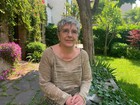
Funzione/Ruolo
Professoressa ordinaria di Storia medievale e Advisor per Europa al prorettorato Relazioni Internazionali presso l'Università di Padova.
Percorso professionale
Nel 1980 Maria Cristina La Rocca si laurea in Lettere all’Università di Torino, con 110 e lode e dignità di stampa. Prosegue il suo percorso di studi nel 1984 con un PhD in History all’Università di Birmingham(GB). Nel 1987: ottiene il Diploma di Dottore di ricerca in Storia della Società Medievale e diviene Borsista presso l’Università di Torino dove rimane fino al 1989 ricoprendo anche il ruolo di responsabile dell’organizzazione del Congresso FISITA’90 (Associazione Tecnici Automobile, Torino). Nel 1990 si trasferisce all’Università di Padova, in qualità di Ricercatrice in Storia Medievale. Otto anni dopo diventa Professoressa associata e nel 2005 è Professoressa ordinaria in Storia Medievale .
Nel 2008 è Presidente del corso di studi in Storia, e dal 2007 al 2014 fa parte del Consiglio Direttivo della Società Italiana delle Storiche. Negli stessi anni dirige la scuola di dottorato in Studi Storici, Geografici, Antropologici dell’ Università Ca' Foscari Venezia, Università di Padova, Università di Verona, scuola che coordina anche in anni recenti, fino al 2020.
Numerose le sue esperienze all’estero: tra l’altro nel 2010 è Visiting Professor al Dpt. Of History, UCLA, Los Angeles (USA), nel 2015 rappresenta l’Università di Padova nel Coimbra Group, workingGroup Doctoral Studies, nel 2017 è Professeure invitée Université Paris 1 – Panthéon Sorbonne.
Risultati scientifici
Gli ambiti in cui si svolge la ricerca di Maria Cristina La Rocca riguardano la società altomedievale, indagata attraverso fonti scritte e fonti archeologiche. I suoi studi si focalizzano in particolare sulle migrazioni altomedievali e sul tema dell’etnicità; approfondisce le forme della famiglia altomedievale, con particolare attenzione alle figure che rappresentano una discrepanza rispetto ai modelli normativi: vedove, orfani, figlie nubili, step fathers e il ruolo attivo delle donne nella società.
Oltre al tema di genere, lo studio di La Rocca affronta anche temi di urbanistica medievale, come quello dei cimiteri dove tra il VI e il IX secolo sono state rinvenute tombe con e senza corredo funerario; o quello delle città altomedievali, di cui studia le forme, gli spazi e la centralità dei luoghi, soffermandosi sulle città abbandonate e riflettendo sull’eredità dell’antico e la memoria collettiva.
Attività editoriali e pubblicazioni
Intensa è anche l’attività editoriale, che si configura tra l’altro nella collaborazione alla rivista Archeologia Medievale, nella partecipazione al Comitato Scientifico della rivista Hispania e a quello della rivista Bullettino Storico Italiano per il Medioevo.
Monografie:
[2012] Tempi barbarici. L'Europa occidentale tra antichità e medioevo (300-900). pp.7-357 – Carocci, Roma (con Stefano Gasparri).
Curatela di volumi :
[2019] Vingt cinq ans aprés. Les femmes au rendez vous de l’histoire, pp. 1-493, Collection de l’Ecole Française de Rome, vol. 561 (con Enrica Asquer, Anna Bellavitis, Giulia Calvi, Isabelle Chabot, Manuela Martini).
[2019] La construction sociale du sujet exclu (Ive-XIe siècle). pp. 1-292 – ISBN 9782503576053, in Collection Haut Moyen Age, vol. 33, Brepols Publishers (con Sylvie Joye e Stéphane Gioanni).
[2018] Spazio pubblico e spazio privato tra storia e archeologia (secoli VI-XI), pp.1-383, Brepols, Turnhout (con Giovanna Bianchi e Tiziana Lazzari).
[2015] Urban identities in Northern Italy (800-1100 ca.). pp.1-492 (con Piero Majocchi).
[2015] Il genere nella ricerca storica. Atti del VI Congresso della Società Italiana delle Storiche. pp.1-1382 (con Saveria Chemotti).
[2010] Donne in famiglia nell'alto medioevo. pp.5-106. In GENESIS - vol. IX/1 (con Adelisa Malena).
[2007] Agire da donna. Modelli e pratiche di rappresentazione (secoli VI-X). pp.5-326, Turnhout, Brepols.
[2005] Sauver son âme et se perpétuer. Transmission du patrimoine et mémoire au haut moyen âge. Rome, Collection de l’Ecole Française de Rome, pp.1-529 – (con François Bougard e Régine Le Jan).
[2005] Carte di famiglia. Strategie, rappresentazione e memoria del gruppo familiare di Totone di Campione (721-877), Roma, Viella, pp.1-390 (con Stefano Gasparri).
[2004] Tesori. Forme di accumulazione della ricchezza nell'alto medioevo (secoli V-XI). Roma, Viella, pp.1-328, (con Sauro Gelichi).
[2001] Early Medieval Italy. pp.1-250, Oxford, Oxford University Press.
Riconoscimenti e premi
Nel 1981 ha vinto il Premio Giorgio Bretschneider per la migliore monografia inedita.
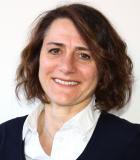
Funzione/Ruolo
Professoressa ordinaria di Bioingeneria industriale all'Istituto di BioRobotica della Scuola Superiore Sant'Anna di Pisa e Professoressa alla National University di Singapore
Percorso professionale
Dopo aver conseguito la laurea in Informatica presso l'Università di Pisa nel 1993, prosegue la sua formazione attraverso un dottorato di ricerca in Robotica all'Università di Genova nel 1998. Dall'anno successivo è assegnista di ricerca e poi ricercatrice in Biorobotica alla Scuola Superiore Sant'Anna di Pisa. Dal 2001 al 2002 è anche visiting researcher al Humanoid Robotics Institute of Waseda University di Tokyo, Giappone. Dal 2006 è professoressa associata e dal 2014 ordinaria di Biorobotica alla Scuola Superiore Sant'Anna di Pisa. E' inoltre professoressa alla National University di Singapore, nel Dipartimento di Ingegneria Meccanica.
Risultati scientifici
L'interesse di ricerca di Cecilia Laschi è la BioRobotica. Partendo da un'esperienza in robotica di base, ha investigato soluzioni bio-ispirate per la robotica personale e di servizio. Recentemente ha lavorato a un progetto molto ambizioso che è cresciuto in un acquario del Centro di Ricerca per le Tecnologie del Mare e la Robotica Marina sulla costa di Livorno. A fare da modello vivente un vero e proprio polpo. Copiando il movimento del cefalopode, nel progetto europeo OCTOPUS, Cecilia Laschi e il suo team hanno posto le basi dello sviluppo della biomimetica del futuro: ossia la progettazione e la realizzazione di robot bioispirati, costruiti con materiali morbidi. Il primo prototipo di braccio robotico è stato costruito imitando la struttura muscolare del braccio del polpo con materiali siliconici, realizzando attuatori innovativi che permettono di ottenere una contrazione della struttura muscolare e realizzato con una copertura di contenimento del braccio, ispirata al tessuto connettivo del polpo, nonché una pelle artificiale dotata di ventose. Il braccio robotico funziona in acqua perché, come il polpo, sfrutta le caratteristiche meccaniche della interazione con l'acqua imitando la flessione e l'allungamento del braccio. Le tecnologie sviluppate imitando il polpo trovano ora ulteriore sviluppo in molti progetti che riguardano applicazioni che vanno dalle esplorazioni marine al settore biomedicale, in chirrgia e nell'assistenza agli anziani. Questa ricerca ha portato allo sviluppo della nuova area di ricerca della Robotica Soft, a livello internazionale. Al nome di Cecilia Laschi è legato anche un altro importante progetto: nel 2007 ha infatti contribuito fattivamente alla nascita, a Tokyo, del laboratorio congiunto di robotica "Robot-An" tra la Scuola Superiore Sant'Anna e la Waseda University dove ricercatori italiani e giapponesi svolgono insieme ricerca di frontiera. Grazie alle competenze della nostra nostra scienziata in robotica umanoide ha visto la luce I-Droid, prodotto da un'azienda spin-off da lei fondata, il primo personal robot venduto in dispense in otto paesi, capace di parlare, riconoscere ordini elementari, vedere, muovere la testa ad un rumore, simulare sentimenti ma soprattutto apprendere, memorizzando degli schemi di comportamento.
Laschi è anche tra gli inventori di un altro gioiello della robotica pisana: i DustBot, i robot-netturbini. Ossia DustClean, che pulisce le strade con spazzole e spray disinfettanti e DustCart, un "omino di neve" color verde, su due ruote che (previa telefonata o sms) si presenta davanti la porta di casa, spalanca il cassetto-pancia, riceve il sacchetto di rifiuti e lo porta fuori dal centro storico. I due Wall-e italiani - ai quali Laschi ha lavorato dal 2006 tramite la RoboTech - sono entrati già in servizio in via sperimentale in un paesino della Toscana.
Attività editoriali e pubblicazioni
Cecilia Laschi è autrice di numerose pubblicazioni su riviste scientifiche nazionali ed internazionali fra cui:
(2016) Laschi C, Mazzolai B. Lessons from nature: the symbiosis of morphological computation and soft robotics. IEEE Robotics & Automation Magazine 23.
(2016) Calisti M, Falotico E, Laschi C. Hopping on Uneven Terrains With an Underwater One-Legged Robot. IEEE Robotics and Automation Letters,1.1:461-468.
(2016) Cianchetti M, Laschi C. Pleasant to the Touch: By Emulating Nature, Scientists Hope to Find Innovative New Uses for Soft Robotics in Health-Care Technology. IEEE Pulse, 7(3):34-37.
(2016) Cauli N, Falotico E, Bernardino A, Santos-Victor J, Laschi C. Correcting for Changes: Expected Perception-Based Control for Reaching a Moving Target. IEEE Robotics and Automation Magazine, 23(1):63-70.
(2015) Cianchetti M, Calisti M, Margheri L, Kuba M, Laschi C. Bioinspired locomotion and grasping in water: the soft eight-arm OCTOPUS robot. Bioinspiration & Biomimetics, 10, 035003.
(2015) Renda F, Giorgio-Serchi F, Boyer F, Laschi C, Modelling cephalopod-inspired pulsed-jet locomotion for underwater soft robots. Bioinspiration and Biomimetics, 10(5).
(2015) Calisti M, Corucci F, Arienti A, Laschi C. Dynamics of underwater legged locomotion: Modeling and experiments on an octopus-inspired robot. Bioinspiration and Biomimetics, 10(4).
(2014) Renda F, Giorelli M, Calisti M, Cianchetti M, Laschi C. Dynamic Model of a Multibending Soft Robot Arm Driven by Cables. IEEE Transactions on Robotics, 30, 1109-1122.
(2014) Laschi C, Cianchetti M. Soft Robotics: New Perspectives for Robot Bodyware and Control. Frontiers in Bioengineering and Biotechnology, 2.
(2013) Kim S, Laschi C, Trimmer B. Soft robotics: a bioinspired evolution in robotics. Trends in Biotechnology, 31, 287-294.
La lista completa è disponibile online.
Riconoscimenti e premi
Co-fondatrice nel 2004 della società spin-off accademico della Scuola Superiore Sant'Anna "RoboTech srl", nel campo della robotica edutainment. Cecilia Laschi è co-autrice di sedici brevetti in Italia, Europa e Giappone.

Area Storia e Filosofia
Competenze: politiche e istituzioni della CEE/UE, storia, storia contemporanea, storia delle relazioni internazionali, storia dell'integrazione europea
Parole chiave: decolonizzazione e CEE, Mediterraneo, migrazioni, multilateralismo, relazioni esterne della CEE/UE, storia politica della PAC (Politica Agricola Comunitaria)
Regione: Emilia-Romagna
Funzione/Ruolo
Professoressa associata di storia contemporanea e storia dell’integrazione europea all’Università di Bologna, Campus di Forlì. Presidente del comitato scientifico del Punto Europa di Forlì, Università di Bologna
Percorso professionale
Nel 1991 consegue il PhD in Storia con una tesi intitolata “L’Italia e il processo d’integrazione europea: il caso dell’agricoltura, 1947-1960” presso l’Istituto Universitario Europeo, dove rimane un anno in qualità di assistente di ricerca. Nel 1994 ottiene una borsa post-dottorale in Storia contemporanea presso l’Università di Firenze e negli anni successivi ottiene diverse borse di studio e ricerca presso prestigiose università europee che le permettono di approfondire la sua ricerca riguardo alla politica agricola comune (PAC), al processo d’integrazione europea e alla storia dell’Europa contemporanea. In quegli stessi anni, insegna presso la sede fiorentina di alcune università americane (Syracuse University, Sarah Lawrence College, Georgetown University). A partire dal 1997 diventa professoressa aggiunta di storia delle relazioni internazionali presso la facoltà di Scienze politiche del Campus di Forlì - Università di Bologna e a partire dal 1998 insegna storia dell’integrazione europea presso il Dipartimento di storia dell’Università di Firenze; detiene questi incarichi fino al 2005. Dal 2005 è professoressa associata di storia contemporanea presso l’Università di Bologna, Campus di Forlì e dal 2010 l’UE le ha conferito la Cattedra Jean Monnet ad personam in storia dell’integrazione europea. Inoltre, insegna in numerosi Master internazionali (Università di Siena, Maribor, Cracovia, Kaunas, Podgorica, Siegen, Ponta Delgada, Buenos Aires, ecc.).
Dal 2004 è presidente del Comitato scientifico del Punto Europa di Forlì, Università di Bologna, divenuto nel 2014 Centro di Eccellenza Jean Monnet; in questo contesto, si dedica alla divulgazione e alla formazione sull’UE, organizza e insegna in corsi per giornalisti, funzionari di enti pubblici e privati, politici, studenti e professori delle scuole. È organizzatrice di diversi convegni internazionali ed è responsabile e coordinatrice di molti progetti europei di ricerca, grazie ai quali mantiene un’importante rete internazionale di insegnamento e ricerca.
Risultati scientifici
Le principali aree di ricerca di Giuliana Laschi sono la storia dell’Europa contemporanea e la storia dell’integrazione europea con un focus particolare sulla politica agricola comune e sulle relazioni esterne della CEE/UE. Ha, inoltre, approfondito la storia delle migrazioni in Europa ed il rapporto tra decolonizzazione e CEE.
Attività editoriali e pubblicazioni
[2021] Laschi G., Subsidiarity and the history of European Integration in G. Walzenbach e R. Alleweldt (a cura di), Varieties of European Subsidiarity. A Multidisciplinary Approach, Bristol, E-International Relations Publishing: 57 - 67.
[2020] Laschi G., Deplano V., Pes A. (a cura di), Europe between migrations, decolonization and integration (1945-1992), Abingdon e New York, Routledge.
[2020] Laschi G., Calandri E., Paoli S. (a cura di), L’Europa adulta. Attori, ragioni e sfide dall’Atto Unico alla Brexit, Bologna, Il Mulino.
[2019] Laschi G., Relations with the West: the case study of EEC-USSR as viewed by the Community (1950-1991) in S. Bianchini e A. Fiori (a cura di) Rekindling the Strong State in Russia and China. Domestic Dynamics and Foreign Policy Projections, Leiden, Brill: 450 - 469.
[2019] Laschi G., Un nuovo ruolo internazionale? L’immagine delle Comunità europee all’esterno, 1950-1969, “Ventunesimo secolo”, 45: 9-26.
[2019] Laschi G., From Fascism to European Federalism: the new Italian face after World War II, in Carlos E. Pacheco Amaral (a cura di), Federalismo em tempo de renacionalização, Coimbra, Almedina: 55 - 70.
[2019] Laschi G., La base de notre politique c’est la peur. La peur et le début du procès d’intégration européenne, “De Europa”, 2: 33-42.
[2018] Laschi G., Durable dans les attentes, non durable dans la réalité: le développement durable de la PAC à l’épreuve des faits, 1957- 2008, “Journal of European integration history”, 24: 31-57.
[2017] Laschi G., I mutamenti europei degli anni Settanta e la loro influenza sulla PAC in L. Mechi e D. Pasquinucci (a cura di), Integrazione europea e trasformazioni socio-economiche dagli anni settanta a oggi, Milano, FrancoAngeli: 39 - 51.
[2017] Laschi G., Il ruolo della Spagna nelle relazioni tra CEE/UE e America Latina, “Spagna Contemporanea”, 51: 115-133.
[2017] Laschi G., Deplano V., Pes A. (a cura di), Europa in movimento. Mobilità e migrazioni tra integrazione europea e decolonizzazione 1945-1992, Bologna, Il Mulino.
[2015] Laschi G., L’Europa e gli altri. Le relazioni esterne della Comunità dalle origini al dialogo Nord-Sud, Bologna, Il Mulino.
Riconoscimenti e premi
1993: borsa di studio per attività di ricerca sui fondi della PAC, Istituto Universitario Europeo.
1996-1997: borsa di studio del CNR (Consiglio Nazionale delle Ricerche), Università Pompeu Fabra di Barcellona.
1997: borsa di studio per una ricerca comparata sulle lobbies agricole in Italia e Spagna, CNR.
1998-2005: Modulo Jean Monnet “History of European integration”, Commissione europea, DG Istruzione e Cultura, Azione Jean Monnet.
2005-2010: Cattedra Jean Monnet “History of European integration”, Commissione europea, DG Istruzione e Cultura, Azione Jean Monnet.
2010-2013: Cattedra Jean Monnet ad personam “The European Communities and the world: an historical perspective”, Commissione Europea, DG Istruzione e Cultura, Lifelong Learning Programme, Azione Jean Monnet.
2011-2014: Modulo Jean Monnet “The European integration process and the transatlantic relationship”, Commissione Europea, DG Istruzione e Cultura, Lifelong Learning Programme, Azione Jean Monnet.
2014-2017: Cattedra Jean Monnet “Different paths of integration in Europe after the World War II: economy VS politics at the root of EU”, Commissione europea, DG Istruzione e Cultura, Erasmus+ Programme, Azione Jean Monnet.
2017: Chaire d’excellence EHNE-AXE 4 “L’Europe, les européens et le monde”, Centre de Recherches en Histoire Internationale et Atlantique (CRHIA), Université de Nantes.

Sport
Competenze: beach handball, benessere sportivo, diritti e tutele degli atleti e delle atlete, diritto sportivo, leadership sportiva, pallamano
Parole chiave: competenze trasversali degli atleti, CONI (Comitato Olimpico Nazionale Italiano), donne e sport, doppia carriera nello sport
Regione: Marche
Funzione/Ruolo
Avvocata. Campionessa di pallamano e beach handball, ex giocatrice della Nazionale
Percorso professionale
Da oltre 20 anni è un’atleta di pallamano e di beach handball. Inizia a praticare questa disciplina sportiva all’età di 10 anni. Dopo il diploma, si trasferisce a Ferrara, ingaggiata nella locale squadra di serie A1, e parallelamente si iscrive alla facoltà di giurisprudenza.
Il suo percorso sportivo negli anni a seguire la porta a militare in diversi club della massima serie, partecipando anche alle principali coppe Europee, e diviene titolare della squadra nazionale seniores di pallamano con cui disputa un Mondiale universitario e due Giochi del Mediterraneo.
Nel 2011 viene nominata capitana della squadra federale, costituita dalla Federazione Italiana Giuoco Handball in collaborazione con il Centro Sportivo Olimpico dell’Esercito nell’ambito del progetto olimpico denominato “Rio 2016”, compagine con cui gioca per due stagioni, la seconda della quale partecipando al campionato di Top League slovena.
Consegue anche importanti risultati nel beach handball, disputando svariati campionati italiani (ad oggi, 2 titoli italiani e 2 secondi posti), 2 Champions Cup e 3 campionati Europei.
Nel 2013 si laurea in giurisprudenza con una tesi in ambito sportivo, sul sindacato del giudice amministrativo nelle controversie disciplinari sportive.
Dopo la laurea, malgrado diverse richieste di ingaggio da parte di società italiane e straniere, preferisce dare la precedenza al suo “post carriera” e iniziare la pratica da avvocata, continuando comunque l’attività sportiva, sebbene ad un livello inferiore.
Nel 2015 consegue con il massimo dei voti un master in Diritto & Management dello Sport e nel 2016 si iscrive all’Albo degli Avvocati di Ancona.
Da sempre appassionata ai diritti di atleti e atlete, ha rivestito vari ruoli dirigenziali: prima come consigliera federale in quota atleti (quadriennio olimpico 2012-2016), poi come Presidente della Commissione Federale Atleti (in carica) e come Team Manager della squadra nazionale di beach handball.
Dal 2021 al 2025 ha fatto parte del Comitato Direttivo della Commissione Nazionale Atleti presso il CONI ed ha contribuito attivamente all’organizzazione del primo forum dei rappresentanti atleti (“Stronger Together”) che si è tenuto ad ottobre 2022 nel Salone d’Onore del Coni. Tuttora è a lavoro in un progetto di incremento delle commissioni federali atleti per assicurarne la massima rappresentatività in seno alle Federazioni Sportive Nazionali, oltre che in altre iniziative riguardanti la doppia carriera ed il benessere psico fisico degli atleti e delle atlete.
A partire dal 2023 è relatrice in diversi eventi e convegni in materia di diritti degli atleti e delle atlete, doppia carriera e transizione dalla carriera sportiva a quella lavorativa.
È anche tecnica federale e attualmente allena una squadra di giovani donne.
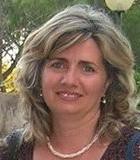
Funzione/Ruolo
Prima Ricercatrice dell'Istituto di Fisica Nazionale (INFN) sezione di Pisa
Percorso professionale
Dopo aver conseguito la laurea in Fisica all'Università di Pisa nel 1990 prosegue il suo percorso formativo attraverso un dottorato di ricerca in Fisica ottenuto presso lo stesso ateneo nel 1994. Nel 1994 è borsista Post-Doc dell'INFN sezione di Pisa, l'anno successivo è professoressa di ruolo di Fisica presso IPSIA Solvay a Rosignano (Livorno). Nel 1996 rientra all'Istituto Nazionale di Fisica Nucleare e nel 1997 è ricercatrice dello stesso istituto. Dal 2009 a oggi è Prima Ricercatrice dell'Istituto Nazionale di Fisica Nucleare presso la sezione di Pisa. Ha ottenuto l'abilitazione scientifica nazionale a professoressa ordinaria nel settore 02/A1 (Fisica sperimentale delle interazioni fondamentali). Dal 2005 al 2017 è responsabile dell'edizione di Pisa della Masterclass Europea di Fisica delle particelle (attività divulgativa per studenti dei licei) e ha fatto parte del comitato organizzatore locale di 6 congressi internazionali. Dal 2002 al 2008 è responsabile dell'organizzazione dei seminari di Fisica sperimentale della sezione di Pisa dell'Istituto Nazionale di Fisica Nucleare.
Risultati scientifici
Il campo di ricerca di Sandra Leone è la Fisica sperimentale delle particelle elementari. Già dal 1989 studia le collisioni protone-antiprotone nell'esperimento CDF Collider Detector al Tevatron Collider al Fermilab, negli Stati Uniti, con particolare attenzione alla produzione dei bosoni intermedi W. Nel biennio 1994/1995 si occupa dello studio del processo di produzione di quark top e partecipa alla prima osservazione del quark top sempre nell'ambito dell'esperimento CDF (Collider Detector at Fermilab). Dal 1997 al 2001 si occupa dei rivelatori a semiconduttore e delle loro applicazioni per esperimenti a collisionatori adronici, nello specifico della costruzione del rivelatore ISL per l'esperimento CDF. E dal 1998 al 2001 è responsabile dalla costruzione e test di 161 moduli elementari del rivelatore a silicio ISL per l'esperimento CDF al Fermilab. Negli anni successivi si dedica allo studio della produzione associata di bosoni intermedi WZ e della ricerca del bosone di Higgs. Nel 2013 entra a far parte dell'esperimento ATLAS al CERN, e partecipa alla costruzione del sistema di calibrazione con Laser per il calorimetro adronico. Dal 2015 si occupa di test di longevità dei fotomoltiplicatori per il calorimetro adronico di ATLAS. Oltre a collaborare con il CERN per lo studio delle collisioni protone-protone, continua ad occuparsi della analisi dei dati raccolti dall'esperimento CDF al Tevatron. È stata relatrice su invito a 15 conferenze internazionali in sessione plenaria e ha presentato risultati scientifici in numerose conferenze nazionali, scuole di fisica, seminari e sessioni parallele di congressi internazionali, ultimo dei quali ‘Ichep2016', uno dei più importanti appuntamenti nell'ambito della fisica delle alte energie, che si è svolto a Chicago nell'agosto 2016.
Attività editoriali e pubblicazioni
È autrice di più di 1000 pubblicazioni internazionali fra cui:
(2016) CDF Collaboration. Measurement of the WW and WZ production cross section using final states with a charged lepton and heavy-flavor jets in the full CDF Run II data set. Physical Review D, 94, 032008.
(2016) ATLAS Collaboration. Measurement of the W±Z boson pair-production cross section in pp collisions at center of mass energy 13 TeV with the ATLAS Detector. Physical Letters B, 762, 1-22.
(2014) CDF Collaboration. Measurement of B(t→Wb)/B(t→Wq) in Top-Quark-Pair Decays Using Dilepton Events and the Full CDF Run II Data Set. Physical Review Letters, 112, 221801.
(2014) CDF Collaboration. Measurement of the Single Top Quark Production Cross Section and |Vtb| in Events with One Charged Lepton, Large Missing Transverse Energy, and Jets at CDF. Physical Review Letters, 113, 261804.
(2012) CDF Collaboration. Search for the Standard Model Higgs Boson Decaying to a bottom-antibottom Pair in Events with One Charged Lepton and Large Missing Transverse Energy Using the Full CDF Data Set. Physical Review Letters, 109, 111804.
(2012) CDF Collaboration. Evidence for a Particle Produced in Association with Weak Bosons and Decaying to a Bottom-Antibottom Quark Pair in Higgs Boson Searches at the Tevatron. Physical Review Letters, 109, 071804.
(2007) CDF Collaboration. First Measurement of the Ratio of Central-Electron to Forward-Electron W Partial Cross Sections in proton-antiproton collisions at center of mass energy of 1.96 TeV. Physical Review Letters, 98, 251801.
(2002) ISL Collaboration. Status Report of the Intermediate Silicon Layers Detector at CDFII. Nuclear Instruments and Methods in Physics Research A, 485, 6-9.
(1995) CDF Collaboration. Observation of Top Quark Production in proton-antiproton collisions with the Collider Detector at Fermilab. Physical Review Letters, 74, 2626.
(1992) Abe F, [...] Leone S, et al. Lepton Asymmetry in W-boson Decays from proton-antiproton Collisions at center of mass energy of 1.8 TeV. Physical Review Letters, 68, 1458.
Riconoscimenti e premi
Sandra Leone ricopre e ha ricoperto diversi ruoli di rilievo nella società scientifica. Nel 1995 riceve un premio della Società Italiana di Fisica (SIF) per giovani ricercatori. Dal 1998 è referee scientifico delle riviste Physical Review Letters e Physical Review D. Dal marzo 2013 è membro della redazione del sito web divulgativo dell'INFN "Scienza Per Tutti". A partire dal 2008 ottiene vari contratti dalla Research Executive Energy della Commissione Europea come Esperto Valutatore Indipendente nell'ambito del Settimo Programma Quadro e di Horizon 2020. Dal 2006 al 2011 fa parte del comitato pari opportunità dell'Istituto Nazionale di fisica Nucleare su designazione dell'ente.

Funzione/Ruolo
Professoressa ordinaria di Scienza delle Finanze presso l’Università degli Studi di Brescia e Presidente dell'Associazione Italiana di Economia Pubblica (SIEP).
Percorso professionale
Dopo la laurea in Economia e Commercio all’Università degli Studi di Genova, prosegue la sua formazione con un Master in Social Science presso l’Università di York (UK). Consegue il D.Phil in Economics presso l'Università di York (U.K.) e, prima di diventare docente in Italia, lavora come ricercatrice all'Institute of Research in Social Sciences dell'Università di York e all’Università di Salford. Nel 1992 rientra in Italia come ricercatrice presso l’Università di Genova. Dal 2000 è Professoressa Straordinaria (confermata ordinaria nel 2003) di Scienza delle Finanze all’Università di Brescia. Membro del Consiglio Direttivo della SIEP (Società Italiana di Economia Pubblica) dal 2009 al 2014, con l'incarico di vice Presidente dal 2012 al 2014, nel settembre 2021, ne viene eletta Presidente.
Risultati scientifici
In passato, i suoi principali interessi di ricerca sono stati la teoria dei diversi livelli di governo con particolare riferimento ai problemi della determinazione della spesa e dei trasferimenti, i contratti in contesto di asimmetria informativa, gli effetti della spesa pubblica e del debito, la determinazione dei contratti per le prestazioni ospedaliere e il rapporto di agenzia fra medico e paziente.
Di recente, il focus della ricerca si è sostato su temi legati alla concorrenza fra ospedali pubblici e privati, gli effetti del federalismo fiscale in sanità, sulla mobilità dei pazienti a livello nazionale ed europeo, sui meccanismi che determinano politiche di soft budget constraint. Accanto a questi temi più tradizionali, si è affiancato lo studio degli incentivi all’innovazione nel settore sanitario, alla regolazione del prezzo del farmaco e agli effetti della regolazione sull’innovazione farmaceutica. In questo ambito i risultati ottenuti dalla ricerca hanno consentito di determinare le formule di rimborso più appropriate per mediare fra innovazione e contenimento della spesa.
Un altro tema importante e rilevante per le sue implicazioni di policy riguarda lo studio delle determinanti dell’evasione fiscale, in particolare in un contesto dinamico che consente di studiare anche gli effetti di lungo periodo di tale comportamento. In questo senso la ricerca si sta ampliando per considerare anche i legami fra evasione e corruzione.
Molti degli studi proposti sono stati possibili grazie allo sviluppo di collaborazioni sia con colleghi economisti stranieri che con studiosi di altre discipline.
Attività editoriali e pubblicazioni
Rosella Levaggi è Associate Editor di Health Economics e del Journal of Public Health Research.
È autrice di circa 150 pubblicazioni scientifiche, fra cui, le più rilevanti degli ultimi cinque anni:
(2017) Berta P, Levaggi R, Martini G, Verzillo S. The redistributive effects of copayment in outpatient prescriptions: evidence from Lombardy. BMC Health Services Research ,17: 336.
(2016) Levaggi L. & Levaggi R. Rationing in health care provision: a welfare approach. International Journal of Health Economics and Management, 1-15.
(2016) Brekke KR, Levaggi R, Siciliani L, Straume OR. Patient mobility and health care quality when regions and patients differ in income. Journal of Health Economics, 50:372-387.
(2016) Levaggi R, Menoncin F. Optimal Dynamic Tax Evasion: A Portfolio Approach. Journal of Economic Behavior & Organisation, 114:115-129.
(2015) Frischut M, Levaggi R. Patient mobility in the context of austerity and an enlarged EU: The European Court of Justice’s ruling in the Petru Case. Health Policy, 119(10):1293-1297.
(2014) Brekke K, Levaggi R, Siciliani L, Straume OR. Patients mobility, health care quality and welfare. Journal of Economic Behaviour and Organisation, 105:140-157.
(2014) Levaggi R. Pricing schemes for new drugs: A welfare analysis. Social Science and Medicine, 102:69-73.
(2014) Levaggi R, Moretto M, Pertile P. Two-part payments for the reimbursement of investments in health technologies. Health Policy, 111:230-236.
(2013) Levaggi R, Menoncin F. Soft Budget Constraints in Health Care: Evidence from Italy. The European Journal of Health Economics, 14: 725-737.
(2012) Levaggi R, Moretto M, Pertile P. Static and dynamic efficiency of irreversibile health care investments under alternative payment rules. Journal of Health Economics, 31(1):169-179.
(2012) Levaggi R, et al. Not a good buy: Value for money of prescription drugs sold on the Internet. Health Policy, 106:241–245.

Funzione/Ruolo
Preside della Facoltà di Medicina e Chirurgia e Presidente del Presidio di qualità all'Università Vita-Salute San Raffaele, dove è anche Professoressa Ordinaria in Biologia Applicata. Responsabile dell’Unità Proteomica del Metabolismo del Ferro, Divisione di Neuroscienze, all'Ospedale San Raffaele.
Percorso professionale
Dopo la laurea in Scienze Biologiche presso l'Università degli Studi di Milano nel 1982, prosegue il suo percorso di formazione all'interno del Dipartimento di Scienze e Tecnologie Biomediche dell'Ospedale San Raffaele. Nel 1984 ottiene una borsa di studio dell'European Molecular Biology Organization presso l'European Molecular Biology Laboratory di Heidelberg. Due anni dopo riceve una borsa triennale di avviamento all'attività scientifica erogata dall'Istituto Scientifico San Raffaele che le consente di entrare a far parte del laboratorio del "Metabolismo del Ferro". Nel 2005 diventa professoressa associata e successivamente ordinaria di Biologia Applicata nella Facoltà di Medicina e Chirurgia dell'Università Vita-Salute San Raffaele, di cui diventa Preside nel 2025. Attualmente è anche Responsabile dell'unità di ricerca "Proteomica del Metabolismo del Ferro" dell'Istituto San Raffaele di Milano e Presidente del Presidio di qualità dell'Università San Raffaele.
Risultati scientifici
Sonia Levi si interessa da anni allo studio del metabolismo del ferro e delle malattie ad esso associate. Mel 1984 si reca all'EMBL (European Molecular Biology Laboratory) per apprendere le nascenti tecniche del DNA ricombinante applicate all'espressione delle proteine. Al suo ritorno in Italia porta queste nuove metodologie nel laboratorio del "Metabolismo del Ferro" dell'Ospedale San Raffaele di Milano, dove riesce a ottenere le ferritine umane ricombinanti ed i loro mutanti, utili nello studio dell'assemblaggio di strutture proteiche complesse. Dal 1992 al 2002 prosegue la sua ricerca all'interno del laboratorio "Ingegneria delle Proteine" presso il Dipartimento di Ricerca Biotecnologica (DIBIT) dell'Istituto Scientifico San Raffaele e nel 2001 identifica ed isola una nuova ferritina umana che si localizza nel mitocondrio (piccoli organelli cellulari). La caratterizzazione biologica e funzionale di questa nuova proteina è uno dei suoi principali argomenti d'interesse, così come lo studio delle alterazioni del metabolismo del ferro nel cervello. Recentemente si è dedicata alla comprensione dei meccanismo molecolari che legano l'accumulo di ferro cerebrale sarebbe coinvolto ad alcuni processi neuro-degenerativi.
Attività editoriali e pubblicazioni
Autrice di più di cento pubblicazioni italiane ed internazionali fra cui:
(2016) Orellana DI, Santambrogio P, Rubio A, Yekhlef L, Cancellieri C, Dusi S, Giannelli SG, Venco P, Mazzara PG, Cozzi A, Ferrari M, Garavaglia B, Taverna S, Tiranti V, Broccoli V, Levi S. Coenzyme A corrects pathological defects in human neurons of PANK2-associated neurodegeneration. EMBO Molecular Medicine, 8 (10):1197-1211.
(2015) Maccarinelli F, Pagani A, Cozzi A, Codazzi F, Di Giacomo G, Capoccia S, Rapino S, Finazzi D, Politi LS, Cirulli F, Giorgio M, Cremona O, Grohovaz F, Levi S. A novel neuroferritinopathy mouse model (ftl 498instc) shows progressive brain iron dysregulation, morphological signs of early neurodegeneration and motor coordination deficits. Neurobiology of Disease, 81:119-33.
(2013) Cozzi A, Santambrogio P, Privitera D, Broccoli V, Rotundo LI, Garavaglia B, Benz R, Altamura S, Goede JS, Muckenthaler MU, Levi S. Human L-ferritin deficiency is characterized by idiopathic generalized seizures and atypical restless leg syndrome. Journal of Experimental Medicine, 210(9):1779-91.
(2009) Campanella A, Rovelli E, Santambrogio P, Cozzi A, Taroni F, Levi S. Mitochondrial ferritin limits oxidative damage regulating mitochondrial iron availability: hypothesis for a protective role in Friedreich ataxia. Human Molecular Genetics, 18(1):1-11.
(2004) Campanella A, Isaya G, O'Neill HA, Santambrogio P, Cozzi A, Arosio P, Levi S. The expression of human mitochondrial ferritin rescues respiratory function infrataxin-deficient yeast. Human Molecular Genetics, 13(19):2279-88.
(2002) Arosio P, Levi S. Ferritin, iron homeostasis, and oxidative damage. Free Rqical Biology and Medicine, 33(4):457-463.
(2001) Levi S, Corsi B, Bosisio M, Invernizzi R, Volz A, Sanford D, Arosio P, Drysdale J. A Human mitochondrial ferritin encoded by an introless gene. Journal of Biological Chemistry, 276(27):24437-40.
(1994) Levi S, Santambrogio P, Cozzi A, Rovida E, Corsi B, Tamborini E, Spada S, Albertini A, Arosio P. The role of the L-chain in ferritin iron incorporation. Studies of homo and heteropolymers. Journal of Molecular Biology, 238(5):649-54.
(1991) Lawson DM, Artymiuk PJ, Yewdall SJ, Smith JM, Livingstone JC, Treffry A, Luzzago A, Levi S, Arosio P, Cesareni G, et al. Solving the structure of human H ferritin by genetically engineering intermolecular crystal contacts. Nature, 349(6309):541-544
(1988) Levi, S., Luzzago A, Cesareni G, Cozzi A, Franceschinelli F, Albertini A & Arosio P. Mechanism of ferritin iron uptake: activity of the H-chain and deletion mapping of the ferro-oxidase site. Journal of Biological Chemistry, 263: 18086-18092.
Riconoscimenti e premi
Dal 2016 al 2018 è stata inserita fra le “Top Italian Women Scientist”.

Area Politica internazionale
Competenze: politica estera europea, politica internazionale, politiche migratorie, relazioni internazionali, sicurezza internazionale, Unione Europea
Parole chiave: elezioni, istituzioni europee, migrazioni, partiti politici europei, sistema politico dell'Unione Europea, Ucraina
Regione: Sicilia
Funzione/Ruolo
Professoressa ordinaria di Scienza Politica, Relazioni Internazionali e Sistema Politico dell’Unione Europea presso l’Università di Catania. Presidentessa della Società Italiana di Scienza Politica.
Percorso professionale
Si è laureata in Scienze Politiche, indirizzo Internazionale, presso l’Università di Catania e ha ottenuto il Dottorato in Relazioni Internazionali presso l’Università di Padova. È professoressa ordinaria di Scienza Politica e Relazioni Internazionali. È titolare della Cattedra Jean Monnet in European Union Policy. Ha ricoperto la carica di Senatrice Accademica presso l’Ateneo di Catania e di Delegata del Rettore dell’Università di Catania alle Relazioni Internazionali. È componente del collegio dei Docenti del Dottorato in Political Science and Sociology della Scuola Normale di Pisa/Firenze. È coordinatrice dello Standing Group on Organized Crime dello European Consortium for Political Research.
Risultati scientifici
I suoi interessi di ricerca si sono sempre focalizzati su temi legati all’Unione Europea. Ha iniziato studiando la politica estera dell’Unione e nel corso dei suoi studi ha poi trattato la struttura del sistema politico dell’UE e i processi di formazione delle politiche comuni. In particolare le sue ricerche attuali sono focalizzate sulle politiche di sicurezza interna ed esterna dell’Unione Europea nonché sulle politiche di immigrazione dell’Unione e dell’Italia. Su questi argomenti attualmente sta coordinando un gruppo di ricerca presso l’Ateneo di Catania. Si occupa anche di analisi della politica estera italiana.
Attività editoriali e pubblicazioni
Le sue ultime pubblicazioni sono:
[2019] Longo F. e Isernia P., La Politica Estera Italiana nel Nuovo Millennio, Il Mulino.
[2018] Longo F., Italy and the refugees crisis, in Journal of Political & Military Sociology, 45.
[2017] Longo F. e Isernia P., The Italian foreign policy: challenges and continuities, in Rivista Italiana di Scienza Politica, 47, p. 107-124.
[2016] Longo F., ‘La politica di immigrazione dell'Unione Europea tra vecchie e nuove sfide’, inPanebianco S. (a cura di),Sulle onde del Mediterraneo: Cambiamenti globali e risposte alla crisi migratoria. EGEA.
[2016] Longo F., ‘A party system without a party government in the European Union?’, in Mascia M. (ed.), Toward a European Transnational Party System, AUSE Ed.
[2015] Longo F., ‘La Criminalità Organizzata’, in Foradori P, Giacomello G. (a cura di), Sicurezza Globale. Le Nuove Minacce.Il Mulino.
[2013] Longo F., Justice and Home Affairs as a New Dimension of the European Security Concept. in European Foreign Affairs Review, 18, p. 29-46.
[2013] Longo F., The Relevance of Security Sector Reform in Humanitarian Intervention: The Case of the European Union in the Mediterranean, in Democracy and Security, 9.
[2012] Longo F., ‘Justice and Home Affairs as a new Tool of European Policy: The Case of Mediterranean Countries’, in AA.VV, The Foreign Policy of the European Union: Assessing Europe's Role in the World, second updated edition. p. 85-96, Brookings Institution Press.
Riconoscimenti e premi
Nel settembre 2018 è stata eletta Presidente della Società Italiana di Scienza Politica.
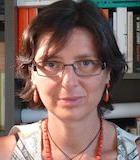
Funzione/Ruolo
Prima Ricercatrice all’ENEA, sede di Bologna
Percorso professionale
Dopo la laurea in Fisica nel 1992 presso l’Università degli Studi di Pisa, con una tesi svolta prevalentemente al CERN di Ginevra, prosegue la formazione con una borsa di studio dell’Istituto Nazionale di Fisica della Materia nell’ambito della fisica della fusione termonucleare controllata e inizia così la collaborazione con il Consorzio RFX di Padova. Dal 1993 al 1999 è ricercatrice all’ENEA (Agenzia Nazionale per le nuove tecnologie, l’energia e lo sviluppo economico sostenibile) dove si occupa fino al 1999 di modellistica ambientale, sviluppando e applicando codici per lo studio della dispersione d’inquinanti reattivi in atmosfera. Nel 1999 ritorna a lavorare a Padova presso il Consorzio RFX, dove continua la sua esperienza nella fisica dei plasmi ad alta temperatura. Tra gli anni 2000 e 2002 svolge ricerca per vari mesi presso il Max Planck Institut für Plasmaphysik di Monaco di Baviera, per lavorare sull’esperimento tokamak ASDEX Upgrade nell’ambito del programma Mobility dell’EURATOM.
Consegue il Dottorato di Ricerca in Energetica presso l’Università degli Studi di Padova nel 2005. Dal 2006 è Prima Ricercatrice all’ENEA.
Risultati scientifici
Rita Lorenzini conduce attività di ricerca nell’ambito della fisica dei plasmi finalizzata a ottenere la fusione termonucleare, che ha lo scopo di ricavare energia dai processi fisici che avvengono nelle stelle riprodotti in laboratorio.
Rita Lorenzini svolge la sua attività prevalentemente sull’esperimento Reversed Field Pinch RFX-mod che si trova a Padova, operato dal Consorzio RFX, formato da CNR, ENEA, INFN, Università di Padova e Acciaierie Venete. Numerose sono anche le sue collaborazioni internazionali: per esempio con il gruppo di ricerca del Madison Symmetric Torus experiment (MST), nel Wisconsin (USA), e più recentemente con il gruppo di ricerca all’Heliotron LHD a Tokyo, in Giappone
Rita Lorenzini studia il problema del trasporto di particelle ed energia nei plasmi, attraverso l’analisi dei dati e la modellistica. Partecipa alle campagne sperimentali per la realizzazione di esperimenti che si svolgono ad RFX-mod, alla cui organizzazione ha attivamente contribuito come Task Force Leader in vari anni.
Nei suoi lavori Rita Lorenzini ha contribuito a caratterizzare le barriere di trasporto che si osservano negli stati elicoidali e a chiarire i legami tra il trasporto di energia e particelle in questi stati e la turbolenza magnetica. La sua attività è prevalentemente dedicata a studiare il trasporto negli stati a confinamento migliorato che si ottengono quando un plasma toroidale, scaldato da un’alta corrente, assume una forma elicoidale. Una scoperta recente, datata 2008, cui Rita Lorenzini ha contribuito.
Le sue ricerche più recenti mirano a migliorare la comprensione della fisica degli stati elicoidali di RFX-mod adattando ai plasmi di laboratorio gli studi sulla riconnessione magnetica che produce i solar flares. Si è occupata anche di valutare e capire le differenze tra i plasmi in idrogeno e in deuterio ottenuti recentemente ad RFX-mod.
Attualmente partecipa a una ricerca, in collaborazione con i ricercatori di LHD, per sviluppare un codice che consenta di simulare plasmi con più assi magnetici, allo scopo di studiare il trasporto del calore, attraverso l’analisi dell’evoluzione spazio-temporale d’impulsi caldi o freddi generati nei plasmi di LHD in cui sono presenti isole magnetiche.
Attività editoriali e pubblicazioni
È autrice di numerose pubblicazioni in riviste internazionali e di atti di convegni, tra cui:
[2018] F. Auriemma, D. Lopez-Bruna, R. Lorenzini, B. Momo, I. Predebon, Y. Suzuki, A. López-Fraguas, Y. Narushima, F. Sattin, D. Terranova ‘A novel approach to studying transport in plasmas with magnetic islands’ Nuclear Fusion 58, 096037.
[2018] C.F. Maggi, H.Weisen, J.C. Hillesheim, A. Chankin, E. Delabie, L. Horvath, F. Auriemma, I.S. Carvalho, G. Corrigan, J. Flanagan, L. Garzotti, D. Keeling, D. King, E. Lerche, R. Lorenzini et al ‘Isotope effects on L-H threshold and confinement in tokamak plasmas,’ Plasma Physics and Controlled Fusion 60, 125002.
[2016] Lorenzini R, Auriemma F, Fassina A, Martines E, Terranova D and Sattin F. Internal Transport Barrier Broadening through Subdominant Mode Stabilization in Reversed Field Pinch Plasmas, Physical Review Letters, 116, 185002.
[2015] Lorenzini R, Agostini M, Auriemma F, Carraro L, De Masi G, Fassina A, Franz P, Gobbin M, Innocente P, Puiatti ME, Scarin P, Zaniol B and Zuin M. The isotope effect in the RFX-modExperiment, Nuclear Fusion, 55, 043012.
[2012] Lorenzini R, Alfier A, Auriemma F, Fassina A, Franz P, Innocente P, Lopez-Bruna D, Martines E, Momo B, Pereverzev G, Piovesan P, Spizzo G, Spolaore M and Terranova D. On the energy transport in internal transport barriers of RFP plasmas, Nuclear Fusion, 52, 062004.
[2011] Bergerson WF, Auriemma F, Chapman BE, Ding WX, Zanca P, Brower DL, Innocente P, Lin L, Lorenzini R, Martines E, Momo B, Sarff JS and Terranova D. Bifurcation to 3D Helical Magnetic Equilibrium in an Axisymmetric Toroidal Device, Physical Review Letters, 107, 255001.
[2009] Lorenzini R, Martines E, Piovesan P, Terranova D, Zanca P, Zuin M et al. Self-organized helical equilibria as a new paradigm for ohmically heated fusion plasmas, Nature Physics, 5:570-574.
[2008] Lorenzini R, Terranova D, Alfier A, Innocente P, Martines E, Pasqualotto R, Zanca P. Single-Helical-Axis States in Reversed-Field-Pinch Plasmas, Physical Review Letters, 101, 025005.
[2007] Lorenzini R, Terranova D, Auriemma F, Cavazzana R, Innocente P, Martini S, Serianni G and Zuin M. Toroidally asymmetric particle transport caused by phase-lockingof MHD modes in RFX-mod, Nuclear Fusion, 47: 1468.
Riconoscimenti e premi
Rita Lorenzini ha tenuto la relazione su invito dal titolo Improvement of the magnetic configuration in the Reversed Field Pinch through successive bifurcations al 50th Annual Meeting of the Division of Plasma Physics, American Physical Society nel Novembre 2008 a Dallas, Texas.
E’ membro del Comitato Scientifico della 41st European Physical Society Conference on Plasma Physics.
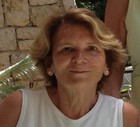
Funzione/Ruolo
Professoressa ordinaria di Fisiologia Vegetale Università di Padova
Percorso professionale
Nel Luglio 1974 si laurea in Biologia all'Università di Napoli, Federico II. Nell’Ottobre 1974 vince un posto di perfezionamento presso la Normale di Pisa. Dal 1975 al 1976 lavora nel laboratorio di Genetica dello sviluppo e Biologia Molecolare del prof. Garcia-Bellido all'Università di Madrid. Dal 1976 al 1982 è ricercatrice CNR presso l'Istituto di Mutagenesi e Differenziamento di Pisa. Dal 1983 al 1984 è Research Fellow nel Dept. of Genetics and Plant Pathology dell' Università di Berkeley, California. Nel 1987 diventa Professoressa Associata di Fisiologia Vegetale e insegna, fino al 1990, alla all'Università della Basilicata, e poi all'Università di Padova dove nell’ottobre 2000 diventa Ordinaria alla Facoltà di Scienze MM.FF.NN, ora Dipartimento di Biologia.
Risultati scientifici
L’attività scientifica è iniziata con una tesi di genetica molecolare batterica, svolta presso l'Istituto Internazionale di Genetica e Biofisica del CNR di Napoli. L’attività è continuata con studi di genetica dello sviluppo sul sistema modello Drosofila a Madrid e successivamente con studi di genetica somatica vegetale a Pisa. Nell' 82 ha iniziato un progetto che mirava all’isolamento e caratterizzazione di mutanti cellulari temperatura-sensibili alterati nel processo di embriogenesi somatica di carota (sistema modello per studi differenziativi vegetali). Lo studio delle alterazioni del differenziamento cellulare vegetale è stato oggetto di due programmi triennali consecutivi della comunità europea che hanno dato luogo a numerose pubblicazioni che costituiscono il nocciolo della produzione scientifica fino alla fine degli anni novanta. Successivamente Fiorella Lo Schiavo ha studiato meccanismi di percezione e trasduzione del segnale ormonale, inizialmente dell’auxina e più recentemente delle citochinine, in diversi sistemi cellulari vegetali. Ha poi condotto studi su alcune proteine canale, in particolare canali di potassio, indagandone anche la funzione in alcuni processi differenziatividelle piante.Ha indagato successivamente alcuni meccanismi di base dei processi di senescenza di organo utilizzando le colture cellulari come sistema modello, in particolare studiando le fasi finali della morte programmata cellulare della senescenza. Recentemente ha analizzato, mediante tecniche di imaging, il ruolo di importanti molecole segnali cellulari, quali calcio e le specie reattive dell’Ossigeno (ROS) indotte da stress abiotici in piante modello e in riso.
Attività editoriali e pubblicazioni
Autrice di oltre 100 pubblicazioni, fra cui:
[2018] Formentin E, Sudiro C, Perin G, Riccadonna S, Barizza E, Baldoni E, Lavezzo E, Stevanato P, Sacchi GA, Morosinotto T, Zottini M, Lo Schiavo F. Transcriptome and cell physiological analyses in different rice cultivars provide novel insights into adaptive and salinity stress responses.Frontiers in Plant Science, 9: 204.
[2017] Teardo E, Carraretto L, Wagner S, Formentin E, Behera S, De Bortoli S, Larosa V, Fuchhs P, Lo Schiavo F, Raffaello A, Rizzuto R, Costa A, Schwarzländer M and Ildiko Szabò Physiological characterization of a plant mitochondrial calcium uniporter in vitro and in in vivo. Plant Physiology, 173: 1-16.
[2015] D’Alessandro S, Golin S, Hardtke, Lo Schiavo F, Zottini M. The co-chaperone p23 controls root development through the modulation of auxin distribution in the Arabidopsisroot meristem. J. of Experimental Botany, 66(16): 5113-5122.
[2015] Teardo E, Carraretto L, De Bortolis S, Costa A, Behera S, Wagner R, Lo Schiavo F, Formentin E, Szabo I. Alternative splicing-mediated targeting of the Arabidopsis Glutamate Receptor 3.5 to mitochondria organelle morphology. Plant Physiology, 167 (1): 216-227.
[2014] Ruberti C, Costa A, Pedrazzini E, Lo Schiavo F, Zottini M. FISSION1A, an Arabidopsis tail-anchored protein, is localized to three subcellular compartments. Molecular Plant,7: 1393–1396, doi: 10.1 093/mp/ssu027.
[2013] Vescovi M, Zaffagnini M, Trost P, Lo Schiavo F, Costa A. Nuclear Accumulation of Cytosolic Glyceraldehyde-3-Phoshate Dhydrogenase in cadmium-Stressed Arabidopsis Roots.Plant Physiology, 162: 333-346, ISSN: 0032-0889.
[2012] Vescovi M, Riefler M, Gessuti M, Novak O, Schmulling T, Lo Schiavo F. Programmed cell death induced by high levels of cytokinin in Arabidopsis cultured cells is mediated by the cytokinin receptor CRE1/AHK4. Journal of Experimental Botany, 63: 2825-2832.
[2012]Loro G, Drago I, Pozzan T, Lo Schiavo F, Zottini M, Costa A. Targeting of Cameleon to different subcellular compartments reveals a strict cytoplasmic/mitochondrial Ca2+ handling relationship in plant cells.Plant Journal, 71(1): 1-13.
[2011] Horie T, Brodsky DE, Costa A, Kaneko T, Lo Schiavo F, Katsuhara M, Schroeder JI. K+ transport by the OsHKT2;4 transporter from rice (Oryza sativa) with atypical Na+ transport properties and competition in permeation of K+ over Mg2+ and Ca 2+ ions. Plant Physiology, 156(3):1493-507.
[2010] Costa A, Drago I, Behera S, Zottini M., Pizzo P, Schroeder Ji, Pozzan T, Lo Schiavo F. H2O2 in plant peroxisomes: an in vivo analysis uncovers a Ca(2+)-dependent scavenging system. Plant Journal, 62: 760-772.
[2009] De Michele R, Vurro E, Rigo C.Costa A, Elviri L, Di Valentin M, Careri M, Zottini M, Sanita' Di Toppi L, Lo Schiavo F. Nitric Oxide is involved in cadmium-induced programmed cell death in Arabidopsis suspension cultures. Plant Physiology, 150: 217-228.
[2009] De Michele R, Formentin E, Todesco M, Toppo S, Carimi F, Zottini M., Barizza E, Ferrarini A, Delledonne M, Fontana P, Lo Schiavo F. Transcriptome analysis of Medicago truncatula leaf senescence: similarities and differences in metabolic and transcriptional regulations as compared with Arabidopsis, nodule senescence and nitric oxide signalling.New Phytologist, 181: 563-575.
Riconoscimenti e premi
Nel 1975, ha vinto il Premio Scoffone-Cremona per la migliore tesi di laurea in Biologia Molecolare.
Dagli anni ’80 in poi, è stata responsabile di progetti nazionali (PF. Ingegneria genetica, IPRA, RAISA, MIPA, Biotecnologie e PRIN) e Internazionali (UE), consulente scientifica della National Science Foundation e dell' Unione Europea e di vari giornali scientifici internazionali.
Nel quadriennio '90-'94 è stata segretaria generale dell'International Association Plant Tissue Culture.
Nel Maggio 1997, ha diretto il corso NATO "Cellular Integration of Signalling Pathway in Plant Development" (Maratea).
Dal 1995 al 2002 è stata nel direttivo della Società di Fisiologia Vegetale e dal 2009 al 2014 nel direttivo della Società di Biologia Vegetale.
Nel settembre del 2012 è stata eletta per la prima volta delegata italiana nel consiglio della FESPB, ora PBE (Plant Biology Europe); carica rinnovata nel febbraio 2018.
E' stata coordinatrice del collegio docente, indirizzo Biotecnologie, della scuola di dottorato di Bioscienze e Biotecnologie dell'Università di Padova dalla sua costituzione fino al 2013.
Da inizio 2014 è membro del nuovo corso di Dottorato in Bioscienze dell’Università di Padovae referente del curriculum "Biochimica & Biotecnologie".
Dal 2016 è Presidente della commissione ASN per il settore della Fisiologia Vegetale.
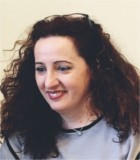
Funzione/Ruolo
Senior Advisor presso il DG Economia e Statistica della Banca d’Italia, capo del Settore struttura produttiva e imprese della Divisione struttura economica e mercato del lavoro; Docente a contratto di Dinamiche industriali e Economia del lavoro presso il Dipartimento di Economia e management della Libera Università Interazionale di Studi Sociali (LUISS)
Percorso professionale
Dopo aver conseguito la laurea in Scienze Statistiche ed economiche presso l'Università di Bologna nel 1997, prosegue la sua formazione con il dottorato in Economia presso la Scuola Universitaria Superiore Sant’Anna (Pisa), durante il quale è visiting student presso il Dipartimento di economia dell’Università di Harvard (US) e visiting fellow presso il National Bureau of Economic Research (NBER, US).
Assunta presso il Servizio Studi della Banca d’Italia nel 2002, presta dapprima servizio all’Ufficio intermediari creditizi, poi all’Ufficio analisi settoriali e territoriali, confluito successivamente nella Divisione struttura economica e mercato del lavoro. Nel 2007-2008 è visiting scholar all’Università di Harvard e nel 2008-2009 consulente del Ministero dello sviluppo economico per le politiche industriali e la relativa valutazione.
Risultati scientifici
L’attività di ricerca di Francesca Lotti si svolge prevalentemente nel campo dell’economia industriale e dell’economia applicata, con particolare attenzione al cambiamento tecnologico, alle scelte delle imprese in termini di crescita, investimenti e innovazione, alla dinamica della produttività e alle sue determinanti. In questi ambiti, ha approfondito anche le politiche economiche e la relativa valutazione ex-post, tema su cui ha anche redatto un libro edito da Il Mulino (“La valutazione degli aiuti alle imprese”, curato con G. De Blasio, Il Mulino, 2008).
Un altro suo filone di ricerca riguarda il ruolo delle donne nell’economia, con contributi sulla discriminazione di genere nel mercato del credito, sulle differenze di genere nella gestione delle imprese e più in generale nel mercato del lavoro.
Attività editoriali e pubblicazioni
Francesca Lotti è membro dell’Advisory Board della rivista Journal of Industrial and Business Economics.
È autrice di numerose pubblicazioni, tra cui:
(2017) Lotti F, Marin G. Productivity Effects of Eco-innovations Using Data on Eco-patents. Industrial and Corporate Change, 26(1):125–148.
(2013) Alesina A, Lotti F, Mistrulli PE. Do Women Pay More for Credit? Evidence from Italy, in Journal of the European Economic Association, 11(s1):45-66.
(2013) Hall BH, Lotti F e Mairesse J. Evidence on the Impact of R&D and ICT Investment on Innovation and Productivity in Italian Firms. Economics of Innovation and New Technology, 22(3):300-328.
(2009) Hall BH, Lotti F e Mairesse J. Innovation and Productivity in SMEs. Empirical Evidence for Italy. Small Business Economics, 33(1):13-33.
(2008) Hall BH, Lotti F e Mairesse J. Employment, Innovation and Productivity: Evidence from Italian Manufacturing Microdata. Industrial and Corporate Change, 17(4):813-839.
(2007) Lotti F. Firm Dynamics in Manufacturing and Services: a Broken Mirror? Industrial and Corporate Change, 16(3):347-369.
(2007) Lotti F, Marcucci J. Revisiting the Empirical Evidence on Firms' Money Demand, Journal of Economics and Business, 59(1):51-73.
(2006) Bofondi M, Lotti F. Innovation in the Retail Banking Industry: the Diffusion of Credit Scoring Review of Industrial Organization, 28(4):343-358.
(2005) Lotti F, Santarelli E. The Survival of Family Firms: The Importance of Control and Family Ties, International Journal of the Economics of Business, 12(2), pp. 183-192.
(2004) Gobbi G, Lotti F. Entry Decisions and Adverse Selection: an Empirical Analysis of Local Credit Markets, Journal of Financial Services Research, 26(3):225-244.
(2004) Lotti F, Santarelli E. Industry Dynamics and the Distribution of Firm Sizes: A Non Parametric Approach, Southern Economic Journal, 70(3):443-466.
(2003) Lotti F, Santarelli E, Vivarelli M. Does Gibrat's Law Hold in the Case of Young, Small Firms?, Journal of Evolutionary Economics, 13:213-235.
Riconoscimenti e premi
Francesca Lotti è top 5% delle donne economiste a livello mondiale Secondo la classifica Repec.
Abilitata a professoressa di prima fascia in Politica economica (SECS-P02), Economia applicata (SECS-P04) e Statistica economica (SECS-S03), è reviewer esterna per la VQR (Valutazione per la Qualità della Ricerca) 2011-2014 (GEV 13) dell’ANVUR (l’Agenzia Nazionale di Valutazione del sistema Universitario e della Ricerca).
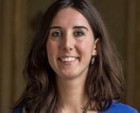
Funzione/Ruolo
Associate Research Fellow presso ISPI e PhD Candidate in Storia presso l’Università di Bologna
Percorso professionale
Chiara Lovotti è Associate Research Fellow presso l’Osservatorio Medio Oriente e Nord Africa dell'ISPI. Precedentemente è stata Research Assistant presso l'Università Cattolica di Louvain-la-Neuve. È dottoranda presso la facoltà di Storia dell'Università Alma Mater Studiorum di Bologna. Ha conseguito una laurea in Lingue straniere e relazioni internazionali presso l'Università Cattolica di Milano, un Master in Studi dello sviluppo presso l'Università di Louvain, in Belgio, un altro Master in Studi mediorientali presso l’Alta Scuola di Economia e Relazioni Internazionali di Milano, e ha trascorso diversi periodi di studio presso l'Università statale Lomonosov di Mosca.
Risultati scientifici
I filoni di ricerca in cui è attiva riguardano le trasformazioni politiche in Medio Oriente, con particolare attenzione a Iraq e Siria, alle relazioni tra Russia e i paesi mediorientali e alla politica estera russa verso quest'area. Attualmente, le sue ricerche accademiche riguardano l'impatto dell’Unione sovietica nei processi di state-building nei paesi arabi post-coloniali.
Per l’ISPI si occupa dell’organizzazione della conferenza “Rome MED – Mediterranean Dialogues”, il Forum annuale promosso con il Ministero degli Affari Esteri e della Cooperazione Internazionale, che riunisce i leader delle due sponde del Mediterraneo – e non solo – con lo scopo di fornire una piattaforma di dialogo e di discussione su tematiche quali sicurezza, economia, energia e trasformazioni sociali.
Attività editoriali e pubblicazioni
[2019] Lovotti C. The Role of Russia in the Middle East and North Africa Region. Strategy or Opportunism?
[2019] Lovotti C. The "Syraqi" Chessboard: Who Leads the Play?
https://www.ispionline.it/it/pubblicazione/syraqi-chessboard-who-leads-play-22460
[2018] Lovotti C. Russia in the Middle East: The Biggest Challenge is Yet to Come
https://www.ispionline.it/it/pubblicazione/russia-middle-east-biggest-challenge-yet-come-22468
[2018] Lovotti C. Iraq's Election: Turning the Page?
https://www.ispionline.it/it/pubblicazione/iraqs-election-turning-page-20468
[2018] Lovotti C. La Russia in Medio Oriente. Una presenza destinata a durare?

Area STEM: Psicologia e neuroscienze
Competenze: psicologia dell’apprendimento, psicologia dello sviluppo
Parole chiave: adolescenza, apprendimento, bisogni educativi speciali, discalculia, disordini dello sviluppo, disturbi dell'apprendimento, impotenza appresa, infanzia, matematica, neuroscienze, numeri, plasticità cerebrale, plusdotazione, psicopatologia dell'apprendimento, strategie didattiche, sviluppo
Regione: Veneto
Funzione/Ruolo
Prorettrice con delega all'Orientamento e Tutorato per l'Università di Padova e Professoressa ordinaria di Psicologia dello Sviluppo presso la stessa università
Percorso professionale
Dopo aver conseguito la laurea in Filosofia nel 1988 e la laurea in Psicologia, nel 1991, presso l'università di Padova, prosegue la sua formazione, nel 1997, con un dottorato di ricerca in Psicologia dello Sviluppo all'Università di Leiden, in Olanda, su un progetto internazionale. La sua carriera continua all'interno dell'università: nel 1998 è ricercatrice in Psicologia dello Sviluppo, nel 2001 professoressa associata e nel 2005 professoressa ordinaria di Psicologia dello Sviluppo sempre all'Università di Padova. Dal 2007 è prorettrice con delega all'Orientamento e Tutorato per lo stesso ateneo, ruolo che ricopre a tutt'oggi.
Nell'aprile del 2020 è stata chiamata dalla ministra dell'Istruzione, Lucia Azzolina, a far parte dal comitato di esperti istituito presso il MIUR con il compito di "formulate e presentare idee e propose per la scuola con riferimento all'emergenza sanitaria in atto [Covid-19], ma anche guardando al miglioramento del sistema di Istruzione Nazionale".
Risultati scientifici
I principali interessi di ricerca di Daniela Lucangeli riguardano lo sviluppo e potenziamento dell'intelligenza numerica, i processi maturazionali nell'età evolutiva (prima e seconda infanzia, età scolare e adolescenza) e i meccanismi di apprendimento nello sviluppo tipico e atipico. Si occupa anche dello studio di funzioni (linguaggio, memoria, attenzione, emozioni, metacognizione, autoregolazione), dei disturbi dell'apprendimento (quali dislessia, disortografia, disgrafia, discalculia) e dei bisogni educativi speciali. Svolge inoltre ricerche e studi sul potenziamento dell'apprendimento, sui deficit comportamentali e cognitivi, sui profili giftedness ed alto potenziale, sulle emozioni nell'apprendimento e sull'impotenza appresa.
Con il gruppo di ricercatori e scienziati dell'Accademia Mondiale delle Scienze per le Difficoltà di Apprendimento, promuove da anni un forte movimento di azioni per la ricaduta della ricerca scientifica nelle prassi di prevenzione, potenziamento e riabilitazione delle disarmonie dello sviluppo. Difatti la ricerca scientifica ha messo in evidenza come attraverso l'intervento precoce nelle diverse "fatiche" dello sviluppo, sia possibile ottenere l'ottimizzazione dei processi anche nelle situazioni di eventuale disabilità (linguaggio, apprendimento, sviluppo cognitivo,ecc...). Il focus del suo lavoro non è solo quello relativo all'analisi dei profili cognitivi e all'eventuale diagnosi ma innanzitutto quello di utilizzare le migliori strategie di aiuto per il massimo di plasticità cerebrale.
Negli ultimi tempi si dedica allo studio dei network circuitali legati alla warm cognition ed ai circuiti emozionali dell'apprendimento. In particolare, agli studi volti ad evidenziare il contributo dei fattori ereditari e dei fattori culturali nello sviluppo dei processi psicologici e nell'educazione. Approfondisce lo studio di funzioni e di processi cognitivi con l'obiettivo di evidenziare le importanti implicazioni delle neuroscienze nei processi educativi.
In qualità di Prorettrice, con delega alle attività di tutorato, di orientamento "in itinere" e "in ingresso" dell'Università di Padova, coordina la realizzazione di progetti regionali ed europei volti ad indirizzare i giovani nella scelta universitaria e professionale.
Attività editoriali e pubblicazioni
Daniela Lucangeli è Editor della rivista Difficoltà In Matematica (Erickson) e referee per diverse riviste specializzate. È autrice di numerose pubblicazioni nazionali ed internazionali e di saggi scientifici e didattici, tra cui (negli ultimi cinque anni):
(2017) Sella F, Berteletti I, Lucangeli D, Zorzi M. Pre-school children use space, rather then counting, to infer the numerical magnitude of digits: evidence for a spatial mapping principle. Cognition, 158, 56-67.
(2016) Sella F, Berteletti I, Lucangeli D, Zorzi M. Spontaneous non‐verbal counting in toddlers. Developmental Science, 19(2), 329-337.
(2016) Benavides-Varela S, Butterworth B, Burgio F, Arcara G, Lucangeli D, Semenza C. Numerical Activities and Information Learned at Home Link to the Exact Numeracy Skills in 5–6 Years-Old Children. Frontiers in psychology, 7.
(2015) Sella F, Berteletti I, Lucangeli D, Zorzi M. Varieties of quantity estimation in children. Developmental Psychology, 51(6), 758.
(2014) Caviola S, Mammarella IC, Lucangeli D, Cornoldi C. Working memory and domain-specific precursors predicting the success in learning written subtraction problems. Learning and Individual Differences, 36, 92-100.
(2014) Re AM, Pedron M, Tressoldi PE, Lucangeli D. Response to Specific Training for Students With Different Levels of Mathematical Difficulties. Exceptional Children, 80(3), 337-352.
(2013) Al-Yagon M, Cavendish W, Cornoldi C, Fawcett AJ, Grunke M, Hung, LY, Jimenez JE, Karande S, van Kraayenoord CE, Lucangeli D, Margalit M, Montague M, Sholapurwala R. The Proposed Changes For DSM-5 for SLD and ADHD: International Perspectives-Australia, Germany, Greece, India, Israel, Italy, Spain, Taiwan, United Kingdom, and United States. Journal of Learning Disabilities, 46, 58-72.
(2013) Colomer C, Miranda A, Re AM, Lucangeli D. Numerical and Calculation Abilities in Children with ADHD. Learning Disabilities: A Contemporary Journal, 11(2), 1-15.
(2013) Mammarella IC, Bomba M, Caviola S, Broggi F, Neri F. Lucangeli D, Nacinovich R. Mathematical difficulties in nonverbal learning disability or co-morbid dyscalculia and dyslexia. Developmental neuropsychology, 38(6), 418-432.
(2013) Mammarella IC, Caviola S, Cornoldi C, Lucangeli D. Mental additions and verbal-domain interference in children with Developmental Dyscalculia (DD). Research in Developmental Disabilities, 34(9), 2845-2855.
Riconoscimenti e premi
Daniela Lucangeli è Presidente dell'Associazione per il Coordinamento Nazionale degli Insegnanti Specializzati (CNIS) e componente dei Comitati Scientifici di numerose associazioni di ricerca nazionali e internazionali quali l'Associazione Italiana per la Ricerca e l'Intervento nella Psicopatologia dell'Apprendimento (AIRIPA) e dell'Associazione Italiana di Psicologia (AIP Sezione Sviluppo). Vice Presidente per l'International Development dell'International Academy for Research in Learning Disabilities (IARLD). Membro tecnico dell'Osservatorio Nazionale per l'infanzia e l'adolescenza. Componente scientifica della Commissione tecnica nominata dal Ministero dell'Istruzione per le linee guida dei disturbi specifici dell'apprendimento (DSA), dei Bes (Bisogni Educativi Speciali). Ed è membro della Commissione Nazionale Ministero CNOP (Consiglio Nazionale degli Psicologi) "Benessere a Scuola". Vice presidente della Fondazione di ricerca HPNR (Human Potential Network Research). Direttrice Scientifica del Polo Apprendimento (28 Centri in Italia). Direttrice Scientifica dell'Associazione Gate Italy (Gifted and Talent Education). Responsabile Scientifica del Centro Regionale di Ricerca e Servizi Educativi per le Difficoltà di Apprendimento.
Nel 2019 ha ricevuto il premio internazionale "Standout Woman Award" "per l’alto profilo degli studi da lei effettuati, volti a sostenere la crescita e lo sviluppo di bambini e adolescenti, e per il suo costante impegno mostrato nei servizi educativi e nei servizi clinici come supporto alle vulnerabilità evolutive".
Nell'aprile del 2020 è stata nominata nel Comitato di esperti presso il Ministero dell'istruzione, istituito dalla ministra Lucia Azzolina.

Funzione/Ruolo
Senior Strategy & ESG Advisor; Fractional Executive; ESG, Climate & Nature, DEI and Innovation Advocate; Certified Board Member.
Percorso professionale
Manuela Macchi è una consulente senior e fractional executive con oltre vent’anni di esperienza in strategia, sostenibilità e governance. Dopo la laurea in Economia Aziendale presso l’Università Bocconi, inizia la sua carriera nella consulenza strategica in VVA, seguendo per quasi 8 anni progetti complessi per grandi gruppi nei settori telecomunicazioni, farmaceutico, editoria e moda.
Dopo una parentesi in una start up internet nell’insurtech, prosegue il suo percorso in Holcim (gruppo multinazionale leader globale di materiali da costruzione), dove ricopre ruoli dirigenziali per 15 anni. Prima come Head of Business Development, occupandosi di pianificazione strategica e business risk management oltre che di lancio di prodotti innovativi, per arrivare a ricoprire il ruolo di Head of Sustainable Development/CSR per Italia, Svizzera e Germania del Sud e come Holcim Awards Coordinator per l’Italia. Ha contribuito alla creazione di una funzione sostenibilità pionieristica e affrontato temi quali piani strategici ESG, stakeholder engagement, rendicontazione di sostenibilità, analisi di materialità, economia circolare, diritti umani, supply-chain responsibility e progetti di DEI. Sempre in Holcim nel tempo assume l’incarico di Datore di Lavoro di due unità organizzative, partecipa al Comitato di Direzione e a due Organismi di Vigilanza 231. In parallelo, ricopre ruoli nell’associazione di categoria, tra cui la guida della task force legata al bilancio di sostenibilità di AITEC.
Da fine 2017 è Senior Strategy & ESG Advisor e Fractional Executive, supportando PMI, scale-up e corporate nella definizione della strategia, nell’integrazione della sostenibilità e dell’innovazione nei modelli di business, nella roadmap ESG, nella rendicontazione e nei percorsi di stakeholder engagement, nella definizione e costituzione di partnership e esg governance. Opera in numerosi settori: manifattura, energia, chimica, infrastrutture, costruzioni, fashion & luxury, healthcare, e-commerce, turismo sostenibile, dispositivi di protezione e cartotecnica.
Da giugno 2020 all’ottobre 2025 è stata Associate Partner di YOURgroup/yourCEO dove ha fondato la practice Sustainability e co-fondato la practice Governance & Board Services, promuovendo l’integrazione tra sostenibilità e corporate governance nelle PMI italiane.
Da novembre 2025 fa parte di The Mentor Club, network dedicato al supporto strategico di scale-up, PMI e corporate attraverso mentorship e advisory di alto livello.
È inoltre coinvolta in molteplici ruoli istituzionali e associativi: associata OIBR, associata Nedcommunity (partecipando ai Reflection Group Board Leadership e Rischi e Controlli e co-fondando il comitato NedAlumni), membro dello Steering Committee di Chapter Zero Italy, The Nedcommunity Climate Forum.
Ha svolto incarichi in board di associazioni professionali (CSR Manager Network ora Sustainability Makers 2012-2020), fondazioni (Fondazione Sodalitas 2018-2021) e cooperative sociali (Cooperativa Sociale Noi Genitori 2016-2025).
Risultati scientifici
Manuela Macchi ha contribuito in modo significativo all’evoluzione della disciplina ESG in Italia, sviluppando modelli e approcci per l’integrazione della sostenibilità nella strategia aziendale, nella governance e nei processi decisionali.
Ha lavorato su progetti pionieristici di reporting di sostenibilità, analisi di materialità, stakeholder engagement, volontariato aziendale, economia circolare, risk management ESG e climate & nature integration, anticipando le norme europee oggi alla base della CSRD e degli ESRS.
Ha maturato una solida esperienza nella gestione dei temi legati a clima e natura, nella definizione di piani di trasformazione e nella promozione di culture aziendali orientate alla DEI, all’impatto e alla creazione di valore condiviso.
Crede nel valore del continuous learning. Dopo la laurea ha frequentato corsi presso SDA Bocconi, Università St Gallen, IMD, Scuola di Economia Civile, Graduate School of Management del PoliMi, Nedcommunity, Assogestioni.
In ambito associativo, ha guidato commissioni tecniche dell’Oscar di Bilancio, coordinato gruppi di lavoro su tematiche esg, contribuendo alla produzione di standard, linee guida e documenti di riferimento a livello nazionale.
Attività editoriali e pubblicazioni
Working Paper #4, Chapter Zero Italy, “The Strategic Role of Boards in the Transition to a Nature-Positive Economy”, 2025
Articles on Sustainability and Climate Change for La Voce degli Indipendenti
Governance & Board Services. Reflections to Maximise the Effectiveness of Corporate Governance Bodies, Yourgroup e-book curated by Andrea Pietrini, 2025
Il Sole 24 Ore – Econopoly (2020): https://www.econopoly.ilsole24ore.com/2024/12/06/board-transizione-nature-positive-economy/?uuid=91_Oxs3LmO7
Prospettive Sostenibili Newsletter, LinkedIn, 2024
13 Strategie per la crescita delle imprese familiari e PMI, Yourgroup e-book curated by Andrea Pietrini, 2024
ISPI publication (2020): https://www.ispionline.it/it/pubblicazione/la-sostenibilita-e-investimento-corporate-27160
Creazione di valore e sustainable business model, Assirevi, CSR Manager Network, CNDCEC, Nedcommunity, 2020
L’ecosistema vita e lavoro. Occupazione femminile e natalità, benessere e crescita economica, Franco Angeli, 2015 (1 chapter)
Volontariato d’impresa: una guida pratica per la collaborazione tra profit e non profit, Fondazione Sodalitas, CIESSEVI, Cergas Bocconi, 2013
Ciò che è bene per la società è bene per l’impresa, Franco Angeli, 2012 (2 chapters)
CSR Manager: Quali competenze? Quale futuro?, Altis & CSR Manager Network, 2009

Funzione/Ruolo
Dirigente dell’Ufficio Riconoscimento ai fini sportivi - Vigilanza e Registri sportivi del Comitato Olimpico Nazionale Italiano. Responsabile della Prevenzione della Corruzione e della Trasparenza del Comitato Olimpico Nazionale Italiano.
Percorso professionale
Dopo la laurea in giurisprudenza, consegue il titolo di avvocata e la specializzazione in diritto ed economia dello sport. Dal 2004 all’interno del Comitato Olimpico Nazionale Italiano, sviluppa la sua attività presso l’Ufficio assistenza legale e contenzioso. È stata componente di Organi di giustizia sportiva e del Comitato Editoriale della Rivista di Diritto Sportivo. In rappresentanza dell’Ente CONI partecipa a Gruppi di Lavoro, Commissioni ed Assemblee delle Federazioni Sportive Nazionali. Ha svolto e tuttora tiene docenze presso Università ed altri Istituti. Attualmente dirige l’Ufficio Riconoscimento ai fini sportivi - Vigilanza e Registri sportivi del CONI ed ha assunto il ruolo di Responsabile del Gruppo di Lavoro su aggregazioni e riconoscimenti, del Gruppo di lavoro sugli e-sport e del Gruppo di lavoro sui rapporti tra FSN/DSA-EPS. Nel 2022 è stata nominata Responsabile della Prevenzione della Corruzione e della Trasparenza del CONI.

Funzione/Ruolo
Ex atleta, campionessa di lancio del peso.
Percorso professionale
Danielle Frederique Madam inizia a praticare atletica leggera nel 2011 e nel 2014 vince il primo titolo di campionessa italiana di lancio del peso nella categoria allieve. Originaria del Camerun, ottiene la cittadinanza italiana nel 2021, potendo finalmente vestire la maglia azzurra. Nel frattempo, vince 5 titoli di campionessa italiana (3 federali e 2 universitari), 5 titoli di vicecampionessa italiana , 2 bronzi , 1 bronzo assoluto, 14 titoli di campionessa regionale lombarda assoluta. Tutti nella specialità di lancio del peso.
Si è laureata in Comunicazione, Innovazione, Multimedialità all’Università degli Studi di Pavia, e attualmente lavora nell’ambito della comunicazione.
Dall'11 giugno all'11 luglio 2021 conduce il programma di prima serata in onda su Rai 1 Notti Europee.
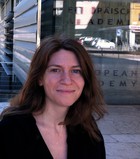
Funzione/Ruolo
Ricercatrice Associata presso il Robert Schuman Centre for Advanced Studies, Istituto Universitario Europeo (Firenze)
Percorso professionale
Ha studiato Scienze Politiche presso l’Università degli Studi di Firenze, seguito da un Master in Relazioni Internazionali ottenuta presso l’Università della Città di New York (CCNY) e un dottorato all’Università di Deusto (Bilbao) nell’ambito di un progetto Marie Curie su politiche migratorie e di integrazione in Europa (http://www.integrim.eu/). Da sempre interessata alle dinamiche di potere tra minoranze, maggioranze e stati, alle diversità culturali e alla giustizia sociale, da anni cerca di coniugare ricerca scientifica e impatto sociale della stessa. Per questo ha seguito una traiettoria professionale non lineare, alternando attività di ricerca universitaria a lavoro in organizzazioni internazionali.
Ha lavorato come ricercatrice, analista politica e traduttrice in Guatemala, Stati Uniti, Belgio, Ungheria, Italia, Spagna e Zimbabwe. Dopo un decennio passato all’estero, a fine 2018 è tornata a Firenze, dove è attualmente ricercatrice associata all’Istituto Universitario Europeo nell’ambito di un progetto che compara diversi modelli di gestione della diversità religiosa e di prevenzione della radicalizzazione.
Risultati scientifici
Si occupa di politica comparata, con particolare attenzione per i diritti delle minoranze e l'inclusione sociale. Nel 2012 ha lavorato alla Direzione per il coordinamento delle politiche (DG REGIO) della Commissione Europea nell'ambito di misure a favore dell'inclusione sociale di comunità marginalizzate. Questa esperienza ha contribuito fortemente alla scelta di perseguire un dottorato su questo argomento, che è diventato un progetto di ricerca sui punti di forza e di debolezza delle politiche rivolte alle minoranze rom e migranti in Italia e Spagna.
Quello che può sembrare un ambito di nicchia (le politiche rivolte a minoranze etniche, linguistiche o religiose) in realtà ha molto a che vedere con le dinamiche più ampie di razzismo e di discriminazione strutturale che condizionano gran parte dell'agenda politica delle contemporanee democrazie europee. Il filone di ricerca su ‘minoranze’ è quindi funzionale a capire i meccanismi di inclusione sociale, economica e politica delle società nel loro complesso.
Dopo aver passato un anno in Zimbabwe, lavorando nell'unità di Scienze Sociali ed Umane dell'ufficio UNESCO per l’Africa australe, il progetto in cui lavora al momento cerca di superare la prospettiva eurocentrica spesso adottata nella ricerca accademica sulla diversità religiosa, guardando invece a modelli di governance delle religioni in Medio Oriente, Asia ed Oceania.
Dal 2015 collabora con WOTS, un progetto editoriale il cui scopo è quello di divulgare la ricerca sociale coniugando stile giornalistico e rigore scientifico, come caporedattrice delle sezioni ‘cittadinanze e minoranze’ e ‘migrazioni e frontiere’. Sempre per quanto riguarda l’ambito divulgativo, nel 2016 un brevissimo cortometraggio realizzato per un corso di metodologie audiovisive è stato selezionato dal Forum Mondiale per la Migrazione e lo Sviluppo per contribuire al dibattito su migrazioni e stereotipi.
È collaboratrice abituale al processo di revisione tra pari per le riviste Journal of Immigrant & Refugee Studies, Social Inclusion, Journal of Ethnic and Migration Studies, East European Journal of Society and Politics, e Configurações.
Attività editoriali e pubblicazioni
È autrice di numerose pubblicazioni scientifiche su riviste internazionali, fra cui:
[2019] Magazzini, T., Piemontese, S., Constructing Roma Migrants: European Narratives and Local Governance, IMISCOE Book series, Springer. Proposta di libro vincitore del premio IMISCOE Springer 2017 e pubblicato gratuitamente in Open Access.
[2018] Magazzini, T., What’s in a name? Causes and consequences of labeling minorities as ‘national’ or ‘migrant’: Roma in Italy and Spain, International Migration, Vol. 56, Special Issue The Changing Face of Migration: Future Challenges for Societies.
[2017] Magazzini, T., Making the most of super-diversity. Notes on the potential of a new approach, inPolicy & Politics, Vol.45, No. 4, ISSN: 1744-2648, pp. 527-545.
[2016] Magazzini, T., Cultural institutions as a combat sport. Reflections on the European Roma Institute, in The Age of Human Rights Journal,No. 7, Special Issue, Identity and Cultural Integration, ISSN: 2340-9592, pp. 50-76.
[2016] Magazzini, T., Piemontese, S., Roma’ migration in the EU: the case of Spain between ‘new’ and ‘old’ minorities, in Migration Letters, Vol.13, No.2, Special Issue Protecting and including “new” and “old” minorities: opportunities, challenges, synergies, ISSN: 1741-8984, pp. 228-241.
Riconoscimenti e premi
2018: Marie Sklodowska-Curie Actions Seal of Excellence e Marie Curie Alumni Association Social Impact Award.

Area STEM: Scienze biomediche e biotecnologie
Competenze: biotecnologie farmacologiche, farmacologia cellulare e molecolare
Parole chiave: coronavirus, Covid-19, farmaci, farmacologia di genere, invecchiamento, malattie metaboliche, menopausa, metabolismo epatico, neuroinfiammazione, recettori degli estrogeni, vaccini, vaccini a RNA o DNA, vaccini innovativi
Regione: Lombardia
Funzione/Ruolo
Professoressa ordinaria di Farmacologia e Biotecnologie e Coordinatrice del Centro di Eccellenza per le malattie Neurodegenerative presso l'Università degli studi di Milano
Percorso professionale
Dopo la laurea in Scienze Biologiche presso l’Università degli studi di Milano nel 1973, prosegue i suoi interessi scientifici con una borsa di studio presso l’Istituto di Farmacologia e Farmacognosia diretto dal professor Rodolfo Paoletti. Vincitrice del Salk Institute - University of Texas Award continua la sua formazione inizialmente presso il Dipartimento di Farmacologia e Neurobiologia dell’Università del Texas, a Houston, negli Stati Uniti e poi presso il Dipartimento di Biologia Cellulare del Baylor College of Medicina sotto la guida del professor Bert O’Malley. Ritornata in Italia nel 1982 come ricercatrice, fonda e dirige un centro modello di collaborazione Università-Industria frutto di una iniziativa dell’Università di Milano e dell’Azienda Farmaceutica Hoffman-LaRoche: il Milano Molecular Pharmacology Lab (MPL). Alla fine degli anni ’80, in qualità di professoressa associata, continua le sue ricerche presso il Dipartimento di Scienze Farmacologiche dell’Università di Milano. Dal 2002 dirige il Centro di Eccellenza sulle malattie neurodegenerative dell’Università di Milano, un centro sperimentale finanziato da un fondo bandito dal Ministero dell’Università e della Ricerca nel quale è direttamente responsabile di un gruppo di ricerca costituito da 20 ricercatori e giovani laureati. Dal 2006 al 2014 fonda e presiede la TOP srl, spin-off dell’Università di Milano. Quale esperta di Biotecnologie Farmacologiche ricopre diverse cariche ministeriali: è membro del Comitato di Consulenza del Primo Ministro Italiano nel settore delle Biotecnologie, Biosicurezza e Scienze della Vita, del Comitato Scientifico “Innovative Medicine Initiative” dell’Unione Europea, dello European ESFRI Working Group for Health and Food, del Council of the European Society for Molecular Imaging (ESMI) ed è delegata del MIUR per l’European Pilot Initiative on Joint Programming on Neurodegenerative Diseases di cui è Vice-Presidente dal 2010. Attualmente è stata nominata dalla Società Americana di Endocrinologia membro della Endocrine Society EU Task force for Endocrine Disrupters e collabora con l’Innovative Medicine Initiative2 in qualità di membro SSG Panel on Neurodegeneration.
Risultati scientifici
La ricerca svolta da Adriana Maggi è da sempre incentrata sullo studio delle attività fisiologica svolta dagli estrogeni, con particolare riferimento a organi non-riproduttivi. Gli studi iniziali sono associati alla scoperta che il recettore degli estrogeni è presente in tutte le cellule cerebrali (oligodendrociti, astrociti, microglia e neuroni), anche in aree cerebrali non associate a funzioni riproduttive, bensì legate al controllo di attività emozionali (corteccia frontale, ippocampo). Più recentemente lo studio della attività anti-infiammatoria degli estrogeni attivi nella microglia ha condotto a nuove ipotesi circa la maggiore incidenza di malattie neurodegenerative nei soggetti di sesso femminile e al ruolo del sesso nella risposta a stimoli diversi e insulti di tipo ischemico. Al fine di meglio comprendere l’azione degli estrogeni, Adriana Maggi ha ideato e creato un modello unico per lo studio dell’azione di questi ormoni in organismi viventi e per l’identificazione di nuovi farmaci attivi tramite questi recettori: il topo reporter ERE-Luc. Tale sistema di reporter è stato in seguito utilizzato per la generazione di altri sistemi modello per lo studio di altri recettori (per esempio il recettore dei PPAR) e processi complessi quali stress ossidativo, infiammazione, trasporto di calcio, apoptosi e altri. La disponibilità del modello ERE-Luc per lo studio della attività dei recettori per gli estrogeni ha permesso di dimostrare per la prima volta che nei mammiferi gli estrogeni sono molto attivi a livello epatico. Studi recenti dimostrano che negli organismi di sesso femminile gli estrogeni controllano il metabolismo epatico e la sintesi di lipidi in stretta relazione con l’attività riproduttiva. Tale azione è fondamentale nel differenziare il metabolismo energetico nei mammiferi dei due sessi e la scoperta fatta ha una rilevanza significativa non solo per una migliore comprensione del metabolismo epatico sesso-dipendente, ma anche per la comprensione dei meccanismi eziopatogenetici di una serie di malattie associate con l’invecchiamento e, nella donna, strettamente legate alla post-menopausa.
I risultati delle ricerche fatte hanno aperto una nuova via per la comprensione delle differenze metaboliche tra maschi e femmine permettendo la comprensione delle differenze di sesso/genere nella prevalenza di una serie molto ampia di malattie che includono gran parte delle malattie associate all’invecchiamento (dal diabete alle malattie neurodegenerative) e nel metabolismo epatico dei farmaci e xenobiotici in genere. Inoltre, la scoperta della rilevanza della attività degli estrogeni a livello epatico suggerisce una nuova via per la generazione di formule di sostituzione ormonale nella post-menopausa più efficaci e dotate di minori effetti collaterali.
L’attività di ricerca di Adriana Maggi è stata riconosciuta e supportata da numerosissimi enti finanziatori in campo nazionale e internazionale. Su finanziamento della Commissione Europea la professoressa ha coordinato 4 Consorzi di ricerca europei per lo studio della fisiologia e dell’invecchiamento della donna e degli interferenti endocrini, inoltre più recentemente la sua ricerca è stata finanziata dai Nationals Institutes of Health con un grant RO1 per lo studio dell’invecchiamento della donna e ERC per lo studio della fisiologia di genere.
Attività editoriali e pubblicazioni
È autrice di più di 200 pubblicazioni scientifiche, 6 brevetti e tre monografie. Tra le più recenti pubblicazioni:
(2017) Della Torre S, Maggi A. Sex Differences: A Resultant of an Evolutionary Pressure? Cell Metabolism, 25:499-505.
(2017) Rizzi N, Rebecchi M, Levandis G, Ciana P and Maggi A. Identification of novel loci for the generation of reporter mice. Nucleic Acids Reserach, 45:e37.
(2016) Della Torre S, Mitro N, Fontana R, Gomaraschi M, Favari E, Recordati C, Lolli F, Quagliarini F, Meda C, Ohlsson C, Crestani M, Uhlenhaut NH, Calabresi L, Maggi A. An Essential Role for Liver ERα in Coupling Hepatic Metabolism to the Reproductive Cycle. Cell Reports, 15:360-71.
(2016) Villa A, Vegeto E, Poletti A, Maggi A. Estrogens, Neuroinflammation, and Neurodegeneration. Endocrine Reviews. 37:372-402.
Benedusi V, Martini E, Kallikourdis M, Villa A, Meda C and Maggi A. Ovariectomy shortens the life span of female mice. Oncotarget (2015) 6:10801-11.
(2014) Della Torre S, Benedusi V, Fontana R, Maggi A, Energy Metabolism and reproduction, an ancestral balance to be preserved for women health. Nature Review Endocrinology, 10:13-23.
(2012) Villa A, Della Torre S, Stell A, Cook J, Brown M, Maggi A. Tetradian oscillation of estrogen receptor α is necessary to prevent liver lipid deposition. Proceedings of the National Academy of Sciences USA. 109:11806-11.
(2011) Della Torre S, Rando G, Meda C, Stell A, Chambon P, Krust A, Ibarra C, Magni P, Ciana P. and Maggi A. Amino Acid-dependent activation of liver Estrogen Receptor alpha integrates metabolic and reproductive functions via IGF-1. Cell Metabolism, 13: 205-214.
(2010) Rando G, Horner D, Biserni A, Ramachandran B, Caruso D, Ciana P, Komm B. and Maggi A. An innovative method to classify SERMs based on the dynamics of estrogen receptor transcriptional activity in living animals. Molecular Endocrinology, 24: 735-744.
(2009) Brufani M, Ceccacci F, Filocamo L, Garofalo B, Joudioux R, La Bella A, Leonelli F, Migneco LM, Bettolo RM, Farina PM, Ashcroft GS, Routley C, Hardman M, Meda C, Rando G, Maggi A. Novel locally active estrogens accelerate cutaneous wound healing. A preliminary study. Molecular Pharmaceutics, 6: 543-56.
(2003) Ciana P, Raviscioni M, Mussi P, Vegeto E, Que I, Parker MG, Lowik C and Maggi A. In vivo imaging of transcriptionally active estrogen receptors. Nature Medicine, 9: 82-6.
Riconoscimenti e premi
Adriana Maggi ha ottenuto molti premi e riconoscimenti nel corso della sua carriera professionale, fra cui il Salk-Institute-University of Texas Award; il NATO Award for exchange studies, il Lecture Award of the British Endocrine Society, il Premio per la Ricerca Farmindustria-Telethon, il PFIZER Investigator-Initiated Research Award, l’ERC Advanced Grant Award.
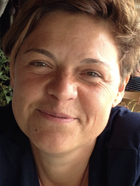
Funzione/Ruolo
Professoressa di Filosofia politica all'Università degli studi di Milano. Direttrice del Laboratorio di Bioetica presso il centro di ricerca e documentazione L. Einaudi.
Percorso professionale
Beatrice Magni si laurea nel 1998 in Scienze Politiche presso l’Università degli studi di Milano, consegue un master (D.E.A.) a Parigi, all’École des Hautes Études en Sciences Sociales (EHESS), e un Dottorato nella stessa città, presso l’Université Paris Sorbonne – Denis Diderot. Rientra in Italia, e attualmente è professoressa associata presso il Dipartimento di Studi sociali e politici dell'Università degli Studi di Milano, dove insegna Filosofia politica, Bioetica e Teorie dell'uguaglianza e diritti, ed è membro del PTP – Political Theory Project. Ha co-diretto Bdl – Biblioteca della Libertà – la rivista scientifica del Centro di Ricerca Luigi Einaudi di Torino, rivista di cui attualmente è vice-direttrice. Nell'ambito del Centro Einaudi, è stata per dodici anni coordinatrice della sezione di Filosofia pubblica di LPF (Laboratorio di Politica e Filosofia Pubblica), e ha diretto per dieci anni il La.B. - Laboratorio di Bioetica. Attualmente dirige un Laboratorio di Cittadinanza in collaborazione con il Centro Einaudi e con le scuole e gli Istituti Superiori della città di Torino. Tra le pubblicazioni più recenti, si segnala Machiavelli. Sette saggi di teoria politica (Milano, Mimesis, 2018), e Hannah Arendt et la condition politique (Paris-Turin, L'Harmattan, 2019).
Risultati scientifici
Beatrice Magni si occupa teoria politica normativa, ovvero dello studio dei fondamenti, dei concetti, e dei modelli dell’attività politica, con uno sguardo particolare ai modelli non-ideali della politica e della giustizia: ha scritto un saggio sulla politica come conflitto in Machiavelli, e il suo sguardo è rivolto all’ingiustizia come prioritaria rispetto ad un ideale giustizia (come nei lavori di Judith Shklar), al compromesso come soluzione praticabile e moralmente preferibile in politica (Avishai Margalit). Ha tradotto in Italia alcuni importanti teorici della politica francesi del secolo scorso, come Claude Lefort e Jacques Rancière, e si sta attualmente dedicando alla scrittura di un testo sui femminismi e le loro ‘ondate’, e sulle ingiustizie di genere.
Attività editoriali e pubblicazioni
Beatrice Magni è vicedirettrice di Bdl, rivista di teoria politica del Centro di ricerca e documentazione L. Einaudi, Torino.
Ha al suo attivo diverse pubblicazioni, fra cui le seguenti.
Magni B., Hannah Arendt et la condition politique, Paris-Turin, L’Harmattan (2018), ISBN 978-2-336-31235-4, pp. 128.
Magni B., Conflitto e libertà. Saggio su Machiavelli, Pisa, ETS (2012), ISBN 9788846732057, pp. 174.
Magni B., Machiavelli. Sette saggi di teoria politica, Milano, Mimesis (2018), ISBN 9788857544267.
Magni B., Solidarietà. Storia di un’idea, Milano, Giuffrè (2012), ISBN 9788883535116, pp. 152.
Magni B., Il disaccordo. Politica e filosofia, Roma, Meltemi (2007), ISBN 8814172757, pp. 384.
Magni B., “Ragioni per agire: il diritto come interpretazione e come pratica sociale”, Notizie di Politeia, XXXIII, 134, 2019, ISSN 1128-2401.
Magni B., “Compromise and/or Integrity? Some Normative Remarks”, Ethics, Politics, and Society, vol. 2, 2019, p. 335-355, ISSN 2184-2582.
Magni B. e M. Ferrera, “Per un liberalismo 2.0. Prime riflessioni e proposte”, Quaderni di Biblioteca della Libertà, Torino, Centro di Ricerca e Documentazione Luigi Einaudi, 2019, n. 1, ISBN 9788894960143.
Magni B., “La forza dell’esempio: il Paese Ritrovato”, focus article in Innovacare, aprile 2019, download: https://www.secondowelfare.it/innovacare/la-forza-dellesempio-il-paese-ritrovato.html.
Magni B., “My Thinking is My Fighting: la concezione arendtiana della politica”, Bdl – Biblioteca della Libertà, LIII, 223, 2018, pp. 3-48, ISSN 2035-5866, doi: 10.23827/BDL_2018_3_5.
Magni B., “Nuovi criteri normativi per la gestione del conflitto: la interactive justice, Notizie di Politeia, XXXIII, 128, 2017, pp. 153-156, ISSN 1128-2401.
Magni B., “The Universalist Dimension of Territory”, Bdl - Biblioteca della Libertà, LII, 220, 2017, p. 165-174, ISSN: 2035-5866.
Magni B., “New Wine in Old Bottles: The Kind of Political Philosophy We Need”, Phenomenology and Mind, 12, 2017, pp. 30-40, ISSN 2239-4028, doi: 10.13128/Phe_Mi-21103.

Funzione/Ruolo
Chief Executive Officer di DAXO GROUP e DAXOLAB, Presidente DONNE 4.0 e Vicepresidente ARTES 4.0
Percorso professionale
Darya Majidi è un'imprenditrice digitale italo-iraniana, computer scientist, esperta in intelligenza artificiale, autrice, docente universitaria, attivista per i diritti umani e digitali e keynote speaker, pioniera e visionaria dell’Information Technology in Italia. Partecipa attivamente alla trasformazione digitale del nostro Paese da oltre 30 anni, con esperienze maturate in ambito pubblico, privato, accademico ed internazionale. Ha dato vita a startup e aziende innovative, vanta referenze di merge & acquisition tra le sue aziende e corporate internazionali ed esperienze di private equity e venture capital che l’hanno vista protagonista nella trasformazione di startup da lei create in aziende strutturate.
Attualmente è CEO, fondatrice e proprietaria della Daxo Group, società di consulenza strategica e di formazione di digital transformation che da oltre 10 anni accompagna i propri clienti prestigiosi nella loro trasformazione e formazione digitale con particolare attenzione all’empowerment digitale femminile in ottica di chiusura del digital gender gap. La Daxo Group è la prima azienda in Italia attestata con la ISO 30415 in ottica implementazione di politiche di Diversity & Inclusion.
CEO e owner di Daxolab, coworking, acceleratore e incubatore di imprese che ad oggi ha dato vita ad una ventina di startup innovative e ospita un eco sistema unico di professionisti, PMI e grandi aziende.
Founder e Presidente della Associazione Sociale Donne 4.0, supporta l’empowerment digitale delle ragazze e delle donne a livello nazionale e internazionale. Donne 4.0 rappresenta una associazione unica nel panorama internazionale nel coniugare le conoscenze e competenze tecnologiche e digitali con gli aspetti di etica e soft skills. Progetti da Majidi ideati e lanciati AIxGIRLS, AIxWOMEN, StartupHER.
Vice-Presidente del Centro di Competenza ARTES 4.0, capitanato dalla Scuola Superiore Sant’Anna di Pisa, supporta il trasferimento tecnologico tra imprese e università.
Speaker, docente, mentore, TEDx speaker e Member della Singularity University Faculty.
È stata Assessora all’Innovazione della città di Livorno, contribuendo a trasformare la città in una Smart City, creando sistemi e servizi per semplificare il rapporto tra la pubblica amministrazione con le imprese, i cittadini e gli ordini professionali. Le attività svolte hanno avuto numerosi riconoscimenti nazionali ed internazionali. È stata Presidente del Gruppo Giovani Imprenditori di Confindustria Livorno e Vice Presidente di Confindustria di Livorno con delega alla ricerca e all’innovazione.
Ha numerose collaborazioni con università di prestigio internazionali, tra i quali la Scuola Superiore Sant’Anna di Pisa, la Scuola Normale di Pisa, la Rome Business School ed altri.
È una mamma, una role model, una donna attiva che spera di impattare il mondo concretamente.
Attività editoriali e pubblicazioni
Darya Majidi. Donne 4.0. 2018.
Darya Majidi. Sorellanza digitale. Femminismo 4.0. 2020.
Riconoscimenti e premi
Nel 2021 è stata menzionata da D di Repubblica come una delle 100 donne che stanno cambiando il mondo e nel 2022 da Io Donna del Corriere della sera tra le 10 donne che impattano l’Italia.
Nell'ottobre del 2023 è stata riconosciuta tra le most powerful women del mondo da Fortune Italia, che le ha dedicato la copertina.

Area STEM: Scienze biomediche e biotecnologie
Competenze: medicina molecolare, medicina traslazionale, oncologia, ricerca oncologica
Parole chiave: biomarcatori molecolari circolanti, biopsie liquide, biosensori, cellule endoteliali circolanti, cellule staminali tumorali, cellule tumorali circolanti, coronavirus, Covid-19, Covid-19 nei pazienti oncologici, Covid-19: patogenesi, nanomedicia, rigenerazione tessutale
Regione: Calabria
Funzione/Ruolo
Ricercatrice senior Bionem (Bio- and Nano-Engineering for Medicine) presso i laboratori di nanotecnologie del Dipartimento di Medicina Sperimentale e Clinica, Università Magna Grecia di Catanzaro.
Percorso professionale
Laureatesi presso l’Università di Messina in Medicina e Chirurgia prosegue i suoi studi presso Università Cattolica del Sacro Cuore di Roma dove consegue la specializzazione in Oncologia Medica. Dopo il conseguimento del dottorato in Ricerca in Biologia Cellulare e Umana presso l’università di Messina, come vincitrice della borsa biennale AIRC, svolge la sua attività di ricerca e di professoressa a contratto presso l’Università Magna Grecia di Catanzaro. Ha collaborato con l’Istituto Italiano di Tecnologie (IIT) di Genova nella posizione di post-doc, per lo sviluppo di dispositivi per la caratterizzazione di biomarcatori prognostici nei pazienti tumorali. NM nel 2005 è stata consulente presso Consolato dell'Ambasciata italiana Nosy-Be Madagascar in tema di valutazione dei rischi oncologici legati a problemi territoriali con particolare interesse per l'età pediatrica. Nel contesto del progetto "Monitoraggio e diagnosi precoce di patologie tumorali legate all'esposizione a sostanze tossiche ambientali nella popolazione calabrese" ha svolto, nel 2009, consulenza presso ARPACAL - Agenzia Regionale per la Protezione Ambientale della Calabria. Nel 2011 è stata consulente scientifica per il progetto "Centro del Farmaco" IRCS San Raffaele Pisana di Roma. Dal 2013 è responsabile scientifica del progetto di ricerca CHARACTEX (Caratterizzazione delle cellule tumorali circolanti da sangue periferico, midollare e cordonale, e di cellule tumorali da tessuto mediante valutazione citofluorimetrica ed espansione in vitro). Partecipa al progetto nazionale come responsabile scientifica e coordinatrice della sezione di Germaneto, Università Magna Grecia, per lo svolgimento del progetto SCENIC (Caratterizzazione immunofenotipica delle cellule endoteliali circolanti da sangue periferico, midollare e cordonale mediante valutazione citofluorimetrica in condizioni standardizzate di strumento, reagenti e protocolli) commissionato dalla Becton Dickinson (BD). Nel 2015 è responsabile scientifica del progetto di ricerca ENDOFIRE (Caratterizzazione immunofenotipica delle cellule endoteliali circolanti e degli exosomi da sangue periferico mediante valutazione citofluorimetrica in pazienti affetti da fibrillazione atriale) e dello studio osservazionale ENXOCORE (Caratterizzazione immunofenotipica delle cellule endoteliali circolanti staminali (EPC) e differenziate (CEC) e degli exosomi da sangue periferico, mediante valutazione citofluorimetrica, in pazienti affetti da infarto miocardico acuto senza sopraslivellamento del segmento S-T (NSTEMI). Dal 1999 è membro della Associazione Italiana dei Medici Oncologi (AIOM) e dal 2017 della Member Royal Society of Medicine. Nel 2017 si abilita a professoressa di seconda fascia nei settori scientifico disciplinari MED06 (Oncologia Medica) e MED46 (Medicina Traslazionale). Per l’anno accademico 2017-18 è direttrice e docente del corso di aggiornamento in Screening, diagnosi e prognosi e valutazione della efficacia di farmaci in vitro con l'ausilio della biopsia liquida" presso la Facoltà di Medicina e Chirurgia Università Magna Graecia. Per l’anno accademico 2018-19 è direttrice e coordinatrice didattica del Master di I livello in “Liquid Biopsy in Tumors and other Complex Diseases”. Presso i laboratori BionemL@b del Dipartimento di Medicina Sperimentale e Clinica, Università Magna Grecia, si dedica alla ideazione e realizzazione di dispositivi o lab-on-chip finalizzati all’ isolamento e caratterizzazione delle cellule tumorali circolanti.
Risultati scientifici
Natalia Malara ha contribuito a sviluppare un protocollo neoadiuvante per l'immunomodulazione di membrana in pazienti con cancro del polmone per aumentare la reazione immunitaria anti-tumorale (tesi di laurea premiata con il “Fondazione Bonino-Pulejo Award”) e per caratterizzare l'impatto dei meccanismi parafisiologici legati all’invecchiamento sulla biologia del cancro al seno (con particolare interesse sulle alterazioni delle proteine di controllo del ciclo cellulare) (2004). Inoltre, ha sviluppato protocolli innovativi per isolare e caratterizzare il subset di cellule non ematologiche reperibili nel sangue con l’obiettivo di definirne l’identità di marcatore biologico e stabilirne il grado di conformità biologica alla patologia. In particolare, ha messo a punto un protocollo standardizzato per l’isolamento e la messa in coltura delle cellule tumorali circolanti per la loro caratterizzazione citofluorimetrica, morfo-immunocitochimica e genetico-mutazionale (2018). Ha contribuito a standardizzare il normale intervallo di valori di differenti biomarcatori come le cellule endoteliali circolanti, e valutare il loro impatto prognostico in patologia tumorale e cardiovascolare (2018). Autrice di libri nel settore oncologico (2009, 2019) e di brevetti nazionale e internazionali (2018), Malara ha sviluppato, nell’ambito della medicina personalizzata, un test che indaga sulla sensibilità in vitro delle cellule staminali tumorali, isolate dalle biopsie tissutali (prelievo di tessuto tumorale) e dalle biopsie liquide (prelievo di sangue periferico), agli agenti chemioterapici (2007, 2014, 2016). Ha sviluppato un protocollo per isolare ed espandere in vitro le cellule staminali umane da differenti sorgenti (tessuti adulti e annessi embrionali) per il loro impiego nel campo della rigenerazione tissutale (2015). Partecipa e collabora alla realizzazione di dispositivi con architetture su scala nanometrica (2014) per la separazione e il rilevamento di specie biologiche con finalità applicative in campo clinico, con particolare interesse al loro utilizzo nell’ambito della medicina preventiva personalizzata (2018).
Attività editoriali e pubblicazioni
Natalia Malara ha firmato oltre 80 pubblicazioni, fra cui:
[2021] Ferraro E, Germanò M, Mollac R, Mollace V, Malara N, HIF-1, the Warburg Effect, and Macrophage/Microglia Polarization Potential Role in COVID-19, Pathogenesis, Oxidative Medicine and Cellular Longevity, 8841911.
[2021] Di Vito A, Donato A, Presta I, Mancuso T, Brunetti FS, Mastroroberto P, Amorosi A, Malara N, Donato G. Extracellular Matrix in Calcific Aortic Valve Disease: Architecture, Dynamic and Perspectives, International Journal of Molecular Sciences 22(2): 913.
[2020] Aquila I, Sacco MA, Abenavoli L, Malara N, Arena V, Grassi S, Ausania F, Boccuto L, Ricci C, Gratteri S, Oliva A, Ricci P. Severe Acute Respiratory Syndrome Coronavirus 2 Pandemic: Review of the Literature and Proposal for Safe Autopsy Practice, Archives of pathology & laboratory medicine 144 (9): 1048-1056.
[2019] Gandolfo G, Temperilli F, Amoroso A. “La Medicina di Laboratorio nell’emergenza”, seconda edizione, Malara N. capitolo “Emergenze in Oncologia” e capitolo “Recenti applicazioni cliniche della citofluorimetria a flusso, in rapido sviluppo: le cellule tumorali circolanti, le cellule endoteliali circolanti, le cellule staminali circolanti” Delfino editore, Roma.
[2018] Malara N, Gentile F, Coppedè N, Coluccio ML, Candeloro P, Perozziello G, Ferrara L, Giannetto M, Careri M… et al. Superhydrophobic Lab-on-chip exploring protonation state in secretome assess personalized onset-risk of sporadic tumour. Nature Precision Oncology 2:26/2018.
[2018] Lanuti P, Simeone P, Rotta G, Almici C, Avvisati G, Azzaro R, Bologna G, Budillon A, Di Cerbo M, …Malara N …et al. Standardized flow cytometry network study for the assessment of circulating endothelial cell physiological ranges. Sci Rep. Apr 11;8(1):5823.
[2016] Malara N, Trunzo V, Foresta U, Amodio N, De Vitis S, Roveda L, Fava M, Coluccio ML, Macrì R…et al. Ex-vivo characterization of circulating colon cancer cells distinguished in stem and differentiated subset provides useful biomarker for personalized metastatic risk assessment. Journal of Translational Medicine 14(1) 12/2016.
[2016] Malara N, Guzzi G, Mignogna, C, Trunzo V, Camastra C, Della Torre A, Di Vito A, Lavecchia A M… et al. Non-invasive real-time biopsy of intracranial lesions using short time expanded circulating tumor cells on glass slide: Report of two cases.BMC Neurology 16(1) 12/2016
[2015] Malara N, Musolino G, Trunzo V, Minniti AM, Cristodoro L, Polistina M, Renzulli A, Mollace V. Novel application of mesenchymal stem cells from mammary artery. International Journal of Cardiology 182C:466-468 01/2015.
[2014] Malara N. “Il Tessuto Tumorale”, editore Eurolink, distributore Feltrinelli
[2014] Malara N, Givigliano F, Trunzo V, Macrina L, Raso C, Amodio N, Aprigliano S, Minniti A M, Russo… et al. In vitro expansion of tumour cells derived from blood and tumour tissue is useful toredefine personalized treatment in non-small cell lung cancer patients.Journal of biological regulators and homeostatic agents 28(4):717-31.
[2014] Malara N,Coluccio ML, Limongi T, Asande M, Trunzo V, Cojoc G, Raso C, Candeloro P, Perozziello G….et al. Folic Acid Functionalized Surface Highlights 5-Methylcytosine-Genomic Content within Circulating Tumor Cells.Small 07/2014; 10(21).
Riconoscimenti e premi
Nel 1994 ha rcevuto il premio della Fondazione Umberto Bonino & Maria Sofia Pulejo Messina.
Nel 1997 ha ricevuto il premio AIRC (Associazione Italiana Ricerca sul Cancro).
Nel 2010 ha ricevuto dalla Rhegium Julii Association il premio "Artemisia" per la ricerca sul cancro.
Nel 2014 ha ricevuto il premio "Giovanni Scarcea” per la ricerca sul cancro.
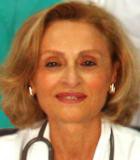
Area STEM: Scienze cliniche e scienza dell'alimentazione
Competenze: nefrologia
Parole chiave: complicazioni cardiovascolari dell'insufficienza renale, dialisi, epidemiologia delle malattie renali, genetica molecolare delle malattie renali, genetica molecolare dell'ipertensione arteriosa, insufficienza renale, ipertensione arteriosa, malattie renali progressive, trapianto di rene
Regione: Calabria
Funzione/Ruolo
Responsabile dell'Unità Operativa Complessa di Nefrologia, Dialisi e Trapianto dell'Azienda Ospedaliera "Bianchi-Melacrino-Morelli" di Reggio Calabria
Percorso professionale
Dopo la laurea in Medicina e Chirurgia all'Università di Messina nel 1978, prosegue la sua formazione attraverso una specializzazione in Nefrologia nel 1983 presso la stessa università. Nel biennio 1981-1982 è Clinical Scientist presso l'unità Renale e Trapianti del Western Infirmary a Glasgow, in Scozia. Dal 1993 al 1997 si specializza ulteriormente con un Master della Società Italiana Ipertensione Arteriosa (SIIA). Nel 1996 acquisisce un ulteriore livello di formazione post-universitaria in Epidemiologia clinica presso la Erasmus University di Rotterdam. Frequenta numerosi corsi, fra cui il Molecular Genetics Course alla Rotterdam University, l'Epidemiology Course, ERA-EDTA Registry di Roma nel 2004, e ulteriori High Quality Nephrology Courses. Nel 2001, consegue una specializzazione in Ipertensione arteriosa alla European Society of Hypertension. Attualmente Francesca Mallamaci dirige la U.O.C (unità operativa complessa) di Nefrologia, Dialisi e Trapianto dell'Azienda Ospedaliera "Bianchi-Melacrino-Morelli" di Reggio Calabria.
Risultati scientifici
Le aree di ricerca di Francesca Mallamaci comprendono l'ipertensione, le complicazioni cardiovascolari dell'insufficienza renale, le malattie renali progressive, l'epidemiologia delle malattie renali e la genetica molecolare delle malattie renali e dell'ipertensione arteriosa. Prende parte attivamente ai progetti di ricerca nazionali e internazionali e supervisiona l'attività dell'Unità di Ricerca di "Epidemiologia Clinica e Fisiopatologia delle malattie Renali e dell'Ipertensione arteriosa" del CNR di Reggio Calabria. Fino al 2015 è stata impegnata nel progetto internazionale "Lung Water by Ultra-Sound Guided treatment to prevent death and cardiovascular complications in high risk end stage renal disease patients with cardiomyopathy (LUST STUDY)". Il progetto prevede la creazione di un database contenente le informazioni dei test clinici effettuati sui pazienti, per indagare il sovraccarico di volume extracellulare che è un fattore di rischio per problemi cardiovascolari e renali. Lo scopo di questo studio clinico è quello di testare una politica di trattamento guidata da misurazioni extravascolari per prevenire la morte per insufficienza cardiaca scompensata e infarto nei pazienti in dialisi ad alto rischio. Francesca Mallamaci è inoltre coordinatrice clinica del Registro Internazionale EURECA-m supportato dalla Società Europea di Nefrologia, Dialisi e Trapianto (ERA-EDTA). L'obiettivo del registro è quello di individuare e validare la raccolta di fattori di rischio cardiovascolare tradizionali e non, in un campione rappresentativo di pazienti in dialisi in Europa.
Attività editoriali e pubblicazioni
Francesca Mallamaci è Associate Editor della rivista Nephrology Dialysis Transplantation e Editor Emeritus di Journal of Nephrology, la rivista ufficiale in lingua inglese della Società Italiana di Nefrologia (di cui è stata Editor in Chief dal 2006 al 2012).
È autrice di numerosi articoli pubblicati su riviste scientifiche nazionali ed internazionali, tra cui:
(2019) Mallamaci F, Tripepi G, D'Arrigo G, Borrelli S, Garofalo C, Stanzione G, Provenzano M, De Nicola L, Conte G, Minutolo R, Zoccali C. Blood Pressure Variability, Mortality, and Cardiovascular Outcomes in Chronic Kidney Disease Patients. Clinical Journal of American Society of Nephrology, 14(2):233-240.
(2018) Mallamaci F, Tripepi R, D'Arrigo G, Porto G, Versace MC, Marino C, Sanguedolce MC, Testa A, Tripepi G, Zoccali C. Long-term blood pressure monitoring by office and 24-h ambulatory blood pressure in renal transplant patients: a longitudinal study. Nephrology Dialysis Transplantation, 34(9):1558-1564.
(2018) Mallamaci F, D'Arrigo G, Tripepi R, Leonardis D, Porto G, Testa A, Abd ElHafeez S, Mafrica A, Versace MC, Provenzano PF, Tripepi G, Mancini P, Zoccali C. Office, standardized and 24-h ambulatory blood pressure and renal function loss in renal transplant patients. Journal of Hypertension, 36(1):119-125.
(2017) Mallamaci F, Tripepi G. Pulmonary congestion and hypertension in hemodialysis patients, Giornale Italiano di Nefrologia, 34(Suppl 69):36-40.
(2016) Mallamaci F. Highlights of the 2015 ERA-EDTA congress: chronic kidney disease, hypertension. Nephrology Dialysis Transplantation, 31(7):1044-6.
(2016) Mallamaci F, Torino C, Tripepi G. Physical exercise in haemodialysis patients: time to start. Nephrology Dialysis Transplantation, 31(8):1196-8.
(2016) Mallamaci F, Tripepi R, Leonardis D, Mafrica A, Versace MC, Provenzano F, Tripepi G, Zoccali C. Nocturnal Hypertension and Altered Night-Day BP Profile and Atherosclerosis in Renal Transplant Patients. Transplantation, 100(10):2211-8.
(2015) Mallamaci F, Testa A, Leonardis D, Tripepi R, Pisano A, Spoto B, Sanguedolce MC, Parlongo RM, Tripepi G, Zoccali C. A genetic marker of uric acid level, carotid atherosclerosis, and arterial stiffness: a family-based study. American Journal of Kidney Diseases, 65(2):294-302.
(2015) Mallamaci F, Tripepi R, Leonardis D, Mafrica A, Versace MC, Provenzano F, Tripepi G, Zoccali C. Nocturnal Hypertension and Altered Night-Day BP Profile and Atherosclerosis in Renal Transplant Patients. Transplantation, 100(10):2211-8.
(2015) Mallamaci F, Testa A, Leonardis D, Tripepi R, Pisano A, Spoto B, Sanguedolce MC, Parlongo RM, Tripepi G, Zoccali C. A genetic marker of uric acid level, carotid atherosclerosis, and arterial stiffness: a family-based study.American Journal of Kidney Diseases, 65(2):294-302.
Riconoscimenti e premi
Diversi lavori della professoressa Mallamaci sono stati premiati in conferenze nazionali e internazionali come l'European Renal Association (ERA-EDTA) e il Congresso dell'American Society of Nephrology.
Nel campo dell'insufficienza renale cronica, è al 19° posto della classifica internazionale creata e periodicamente aggiornata dall'Università di Baltimora EXPERTSCAPE.
Nel 2014 ha presieduto il Comitato Scientifico del Congresso Nazionale della Società Italiana di Nefrologia. È inoltre componente del Comitato Scientifico del Congresso Europeo di Nefrologia, Dialisi e Trapianto (ERA-EDTA) di Vienna del 2016 e dello stesso comitato del congresso che si terrà a Madrid nel 2017. Francesca Mallamaci è stata inoltre formalmente invitata a rappresentare la Società Europea di Nefrologia, Dialisi e Trapianto ai Congressi della European Society of Paediatric Nephrology e dell'American Society of Nephrology del 2015.

Funzione/Ruolo
Professoressa associata di Psicologia dello Sviluppo Università di Padova
Percorso professionale
Dopo aver conseguito la laurea in Psicologia nel 2002 presso l’università di Padova, ha proseguito la sua formazione nello stesso ateneo con un Dottorato di Ricerca in psicologia (2006), durante il quale ha svolto dei periodi di ricerca all’estero presso il the Hospital for Sick Children (Toronto, Canada) e l’università di Gent (Belgio). Nel 2008 è ricercatrice in Psicologia dello Sviluppo. Nel 2013 è visiting researcher presso l’Universitè Catholique de Louvain-la-Neuve (Belgio), nel 2017 presso la Liverpool John Moores University (Regno Unito) e nel 2018 presso la Goldsmith University of London (Regno Unito). Dal 2013 è socia fondatrice dello spin-off universitario Lab.D.A., centro specializzato per la diagnosi e l’intervento nei disturbi dello sviluppo, e dal 2017 è responsabile di una delle sedi dello spin-off (Lab.D.A. Padova Nord). Dal 2014 è direttrice del master universitario in Psicopatologie dello Sviluppo, dell’Università di Padova.
Risultati scientifici
Fin dall’inizio delle sue ricerche ha approfondito lo studio del Disturbo Nonverbale, un disturbo del neurosviluppo caratterizzato da difficoltà di tipo visuospaziale e buone abilità verbali, sul quale ha pubblicato numerose ricerche su riviste internazionali. Per il suo contributo in questo ambito dal 2017 è stata invitata a far parte della Consensus Conference internazionale promossa dalla Columbia University, Institute of Psychiatry, New York (USA), che si propone come obiettivo il riconoscimento di questo disturbo, ancora poco conosciuto, nel manuale diagnostico internazionale dei disturbi mentali, DSM 5. Attualmente le sue ricerche sono volte a individuare somiglianze e differenze tra il Disturbo Nonverbale e altri disturbi evolutivi, quali l’autismo ad alto funzionamento e il disturbo da deficit di attenzione e iperattività(ADHD).
Un altro filone di ricerca di cui si è occupata riguarda il coinvolgimento di processi cognitivi (in particolare la memoria di lavoro visuospaziale) in diversi disturbi dello sviluppo, e in relazione agli apprendimenti (come per esempio la matematica). Più di recente, in collaborazione con l’Università di Cambridge, ha condotto delle ricerche sullo sviluppo dell’ansia per la matematica nei bambini e sulla relazione tra ansia e apprendimenti scolastici.
Tutti i risultati delle ricerche sono stati pubblicati in riviste scientifiche internazionali, e laddove i risultati consentivano applicazioni, sono stati prodotti test per bambini e materiali per l’intervento, pubblicati da case editrici specializzate.
Attività editoriali e pubblicazioni
Irene C. Mammarella è Academic Editor per PlosOnee fa parte dell’Editorial Board didiverse riviste scientifiche internazionali: Educational Psychology, Learning and Individual Differences e Journal of Experimental Child Psychology.
E’ autrice di numerose pubblicazioni internazionali, tra cui:
[2018] Cardillo, R., Menazza, C. & Mammarella, I. C. Visuoconstructive Abilities and Visuospatial Memory in Autism Spectrum Disorder Without Intellectual Disability: Is the Role of Local Bias Specific to the Cognitive Domain Tested?Neuropsychology. doi: 10.1037/neu0000472
[2018] Mammarella, I. C., Donolato, E., Caviola, S., & Giofrè, D. Anxiety profiles and protective factors: A latent profile analysis.Personality & Individual Differences, 124, 201-208. doi: 10.1016/j.paid.2017.12.017
[2018] Mammarella, I. C., Caviola, S., Giofrè, D. & Szücs, D. The underlying structure of visuospatial working memory in children with mathematical learning disability.British Journal of Developmental Psychology, 36, 220-235 doi: 10.1111/bjdp.12202
[2017] Mammarella, I. C., Caviola, S., Giofrè, D., & Borella, E. Separating math from anxiety: The role of inhibitory mechanisms.Applied Neuropsychology: Child, doi: 10.1080/21622965.2017.1341836
[2016] Hill, F., Mammarella, I. C., Devine, A., Caviola, S., Passolunghi, M. C. & Szücs, D. Maths anxiety in primary and secondary school students: Gender differences, developmental changes and anxiety specificity.Learning and Individual Differences, 48, 45-53.
[2016] Mammarella, I. C., Ghisi, M., Bomba, M., Bottesi, G., Caviola, S., Broggi, F. & Nacinovich, R. Anxiety and depression in children with Nonverbal learning disabilities, reading disabilities, or typical development.Journal of Learning Disabilities, 49, 130-139.
[2015] Mammarella, I. C., Hill, F., Devine, A., Caviola, S., & Szücs, D. Math anxiety and developmental dyscalculia: A study on working memory processes.Journal of Clinical and Experimental Neuropsychology, 37, 878-887.
[2014] Mammarella, I. C., & Cornoldi, C. An analysis of the criteria used to diagnose children with Non-verbal learning disabilities (NLD).Child Neuropsychology, 20, 255-280.
[2014] Mammarella, I. C., Giofrè, D., Caviola, S., Cornoldi, C., & Hamilton, C. Visuospatial working memory in children with Autism: The effect of semantic global organization. Research in Developmental Disabilities, 35, 1349-1356.
[2013] Mammarella, I. C., Bomba, M., Caviola, S., Broggi, F., Neri, F., Lucangeli, D., & Nacinovich, R. Mathematical difficulties in nonverbal learning disability or co-morbid dyscalculia and dyslexia.Developmental Neuropsychology, 38, 418-432.
[2013] Mammarella, I. C., Borella, E., Pastore, M., & Pazzaglia, F. The structure of visuospatial memory in adulthood.Learning and Individual Differences, 25, 99-110.
Riconoscimenti e premi
Irene C. Mammarella fa parte di diverse associazioni intenazionali: APS (Association for Psychological Science), MCLS (Mathematical Cognition and Learning Society), EARLI (European Association for Research on Learning and Instruction), IARLD (International Academy for Research in Learning Disabilities).
E’ inoltre nel consiglio direttivo dell’ Airipa (Associazione Italiana per la ricerca e l’intervento nella psicopatologia dell’apprendimento) e fa parte dell’AIP (associazione Italiana di Psicologia) sezione sviluppo ed educazione.
Dal 2017 è membro effettivo del Panel di sviluppo delle linee guida per la revisione delle raccomandazioni cliniche sui Disturbi Specifici dell’Apprendimento (DSA), promosso dall’Associazione Italiana Dislessia.
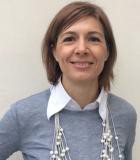
Funzione/Ruolo
Professoressa associata di Fisica all’Università degli studi di Cagliari e presso l’Istituto Nazionale di Fisica Nucleare
Percorso professionale
Dopo la laurea in Fisica presso l'Università di Cagliari, nel 1999, perfeziona la sua formazione con un dottorato di ricerca in Fisica all’Università di Oxford che consegue nel 2003. Nello stesso anno prosegue i suoi studi con un post-doc sempre in Inghilterra, prima a Oxford e poi all’Università di Liverpool. Dal 2000 al 2006, collabora come Associata Scientifica con il laboratorio Fermilab di Chicago, negli Stati Uniti. Nel 2007, rientra in Italia, a Cagliari, come ricercatrice all’INFN (Istituto Nazionale di Fisica Nucleare) e, l’anno successivo, all’Università. Dal 2012 al 2013 collabora con il laboratorio CERN di Ginevra. Nel 2015 vince un ERC Consolidator Grant con il CNRS (Centre National de la Recherche Scientifique) e si trasferisce a Orsay, Parigi, fino alla fine del 2016. Nel 2016 è anche visiting professor all’Università di Cambridge, UK. Nel 2017 diventa professoressa associata all’Università di Cagliari. Attualmente si occupa dello studio della fisica degli ioni pesanti con l’esperimento LHCb al CERN e guida un gruppo di ricerca di sei post-docs, due studenti e due ricercatori diviso tra Orsay e Cagliari.
Risultati scientifici
Nel 2002 osserva assieme ai colleghi dell’esperimento CDF (Collider Detector at Fermilab) il decadimento dei bosoni W e Z (particelle fondamentali del Modello Standard) in elettroni e ne misura la sezione d'urto di produzione e il rapporto per la prima volta a quell’energia, pubblicando il lavoro nella sua tesi di dottorato. Nel 2003 lavora con un gruppo di 14 persone dedite alla ricerca delle particelle supersimmetriche chargino e neutralino nel loro decadimento leptonico, arrivando a coordinarle e pubblicando il miglior limite mondiale in quel momento sulla loro massa e sezione d’urto di produzione. Nel 2007 diviene membro della collaborazione LHCb (Large Hadron Collider beauty) - esperimento dell'acceleratore LHC del CERN che ha lo scopo di misurare i parametri della violazione CP e decadimenti e fenomeni rari relativi agli adroni in cui è presente il quark beauty (quark b) - al CERN di Ginevra. Partecipa a diversi studi sulla produzione di stati associati di quark-antiquark (quarkonia) pubblicando diversi lavori in merito e collaborando con teorici esperti del campo. Dal 2009 al 2013 diventa la responsabile di tale fisica nell’esperimento. Nel 2015 fonda un nuovo gruppo di ricerca all’interno di LHCb aprendo la via alle misure di precisione di Quark Gluon Plasma ad alte rapidità, il suo attuale campo di ricerca.
Attività editoriali e pubblicazioni
È autrice di numerose pubblicazioni nazionali ed internazionali, tra cui:
(2017) Aaij R, Manca G et al. [LHCb Collaboration]. Study of prompt D0 meson production in pPb collisions at √snn = 5 TeV, Journal of High Energy Physics, 1710, 090.
(2014) Manca G. Review on quarkonia production at LHC, International Journal of Modern Physics A, 29, 1430014.
(2013) Aaij R, Manca G et al. [LHCb Collaboration]. Production of J/Ψ and Υ mesons in pp collisions at √s = 8 TeV, Journal of High Energy Physics, 1306, 064.
(2013)A.A. Alves Jr., G. Manca et al. [LHCb Muon Collaboration]. Performance of the LHCb muon system, Journal of Instrumentation, 8, P02022.
(2012) Aaij R, Manca G et al. [LHCb Collaboration]. Measurement of Υ production in pp collisions at √s = 7 TeV, European Physical Journal C, 72, 2025.
(2011) Aaij R, Manca G et al. [LHCb Collaboration] Measurement of J/Ψ production in pp collisions at √s = 7 TeV. European Physical Journal C, 71, 1645.
(2010) Anelli M, Manca G et al. [LHCb Muon Collaboration]. Performance of the LHCb muon system with cosmic rays, Journal of Instrumentation ,5, P10003.
(2007) Aaltonen T, Manca G et al. [CDF Collaboration]. Search for chargino-neutralino production in pp collisions at √s = 1.96 TeV, Phys. Rev. Lett. 99 191806.
(2008) Aaltonen T, Manca G et al. [CDF Collaboration]. Search for supersymmetry in pp collisions at √s = 1.96 TeV Using the tri-lepton signature of Chargino-Neutralino production, Physical Review Letters, 101, 251801.
(2005) D. Acosta, G. Manca et al. [CDF Collaboration]. First measurements of inclusive W and Z cross-sections from Run II of the Tevatron collider, Physical Review Letters, 94, 091803.
(2007) Abulencia A, Manca G et al. [CDF Collaboration]. Measurements of inclusive W and Z cross-sections in pp collisions at √s = 1.96 TeV, Journal of Physics G, 34,2457.
È revisora per le riviste Journal of High Energy Physics e European Physical Journal.
Riconoscimenti e premi
Nel 2005 vince la Particle Physcs and Astronomy Research Council fellowship per due anni. Nel 2015 ha vinto un ERC Consolidator Grant della durata di 5 anni per un totale di 1,9 milioni di euro.
Dal 2016 fa parte dell’AccademiaNet network.
È nella lista dei Top Italian Scientists dal 2012.

Funzione/Ruolo
Professoressa associata in Storia dei Paesi islamici e direttrice del GramsciLab, Centro Interdipartimentale di Studi Internazionali gramsciani, presso l'Università di Cagliari.
Percorso professionale
Laureata presso la Facoltà di Scienze Politiche (Istituto di Studi Africani e Orientali), ha ottenuto un dottorato di ricerca presso lo stesso Ateneo, nel settore "Storia e Istituzioni dell'Asia e dell'Africa moderna e contemporanea”, una borsa di studio post dottorato presso la facoltà di Scienze Politiche Federico II di Napoli (1991) e una presso l’Ateneo di Cagliari, facoltà di Scienze Politiche. In quanto titolare della medesima nel biennio 1992-94 ha svolto una ricerca sull'integralismo nei Paesi del Nordafrica.
Nel 1997 diventa ricercatrice alla Facoltà di Scienze Politiche di Cagliari (1997), dal giugno 2006 è professoressa Associata in Storia dei Paesi Islamici (LOR10) presso la Facoltà di Scienze Economiche, Giuridiche e Politiche di Cagliari, Dipartimento di Scienze politiche e sociali.
Risultati scientifici
Si occupa di problematiche del mondo arabo contemporaneo, in particolare di dissenso politico e giovanile, di islam politico e di radicalismo islamico, della diffusione del pensiero di Antonio Gramsci nel mondo arabo, di immigrazione musulmana in Italia e in Europa. Le aree del mondo arabo di sua specifica competenza sono la Tunisia e l’Egitto. Fra i progetti di ricerca attivati più di recente, la diffusione del pensiero di Gramsci nel dibattito politico e culturale nel mondo arabo post 2011. Recentemente è stata Principal investigator di un progetto dal titolo “I processi di democratizzazione nei Paesi arabi mediterranei. Il ruolo delle Università e dei Centri di ricerca” (2010-2012) e di un progetto dal titolo “A lezione da Gramsci. Stato, partecipazione democratica e società civile nelle due sponde del Mediterraneo”, in partenariato con la Sapienza di Roma e l’università di Jendouba (Tunisia). Ha collaborato in qualità di esperta per le questioni di inclusione religiosa e culturale presso vari enti pubblici (Regione, Provincia, Comuni, Prefettura, Questura, Scuole e Istituti) e privati (Università della Terza Età, Fondazione Solidarietà e Diritti Luca Raggio, Associazioni culturali varie). Attualmente è principal investigator del progetto di una ricerca dal titolo “ Per una mappatura del pensiero di Antonio Gramsci nel mondo. Ricezione, traducibilità, declinazioni teoriche e praxis gramsciane”.
Attività editoriali e pubblicazioni
Pubbliazioni recenti:
[2019], Manduchi P., Melis N. (a cura di), Gihad. Definizioni e riletture di un termine abusato, Mondadori Università.
[2019] Manduchi P., Marchi A (a cura di), A lezione da Gramsci. Democrazia, partecipazione politica, società civile in Tunisia, Roma, Carocci.
[2018] Manduchi P. (a cura di), Nelle aule e per le strade: studenti e lotte politiche. Casi di studio dall'Africa e dall'Asia, Bologna, libri di Emil.
[2018] Manduchi P., “Nasser e il nazionalismo arabo”, STORIA DEL PENSIERO POLITICO, numero monografico "Nasser 100 anni dopo. La sfida del nazionalismo e del socialismo arabi", a cura di M. Campanini, Il Mulino.
[2017] Manduchi P., Marchi A., Vacca G.(a cura di), Gramsci nel mondo arabo, Il Mulino.
[2016] Manduchi P., Università e movimenti studenteschi nell'Egitto contemporaneo (1908-1981), Carocci.
[2015] Manduchi P, “Student and Dissent in Egypt. From the Khedival Period to the Protests of 1968”, ORIENTE MODERNO, 95 (1-2). 125-144.
[2014] Manduchi P. (a cura di) I movimenti giovanili nei paesi arabi mediterranei. Dalle indipendenze nazionali a oggi, Carocci editore, 15-43.
[2010] Manduchi P., Baldussi A. (a cura di), Gramsci in Asia e in Africa e in Africa, Aipsa edizioni.
Riconoscimenti e premi
È stata nominata con decreto rettorale Referente dell’Ateneo di Cagliari nel Comitato scientifico per l’Anno Gramsciano 2017.
È nel Comitato scientifico della Fondazione Casa Museo Gramsci dal 2017.
Direttrice del GramsciLab, Centro Interdipartimentale di Studi Internazionali gramsciani, Università di Cagliari.
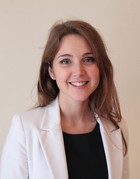
Area Politica internazionale
Competenze: de-radicalizzazione in Asia, geopolitica in Asia, sicurezza in Asia
Parole chiave: Afghanistan, ASEAN (Associazione delle Nazioni del Sud-est asiatico), BRI (Belt and Road Initiative), Cina, Iran, ISIS, JCPOA (Joint Comprehensive Plan of Action ), Oceano Pacifico, Pakistan, Subcontinente indiano
Regione: Lazio
Funzione/Ruolo
Analista senior presso Ce.S.I. (Centro Studi Internazionali), Roma
Percorso professionale
Laureata in Politiche Europee ed Internazionali all’Università Cattolica del Sacro Cuore di Milano nel 2012, ha poi conseguito il master in Sicurezza Economica, Geopolitica e Intelligence presso la SIOI (Società Italiana per le Organizzazioni Internazionali), a Roma. Entra al Ce.S.I. nel 2013 come Junior Fellow e, l’anno successivo, assume la responsabilità del desk Asia e Pacifico. Dal 2019 è Senior Analyst.
L’organizzazione di progetti con istituti partner, la porta spesso a visitare i Paesi di propria competenza.
Risultati scientifici
È autrice di pubblicazioni e analisi in materia di politica internazionale e di sicurezza per le aree di sua competenza.
Ha insegnato alla Scuola Ufficiali dei Carabinieri alla Scuola Addestramento di Specializzazione della Guardia di Finanza e al Corso di Analisi, Geopolitica e Sicurezza organizzato dal Ce.S.I. – Centro Studi Internazionali.
Attività editoriali e pubblicazioni
[2019] Manenti F, Oltre la BRI: gli investimenti cinesi nell’Unione Europea, Ce.S.I.
[2018] Manenti F, Il Pakistan alla prova della Deradicalizzazione, Chillemi Editore.
[2018] Manenti F, Il futuro dell’Iran Deal senza gli Stati Uniti (The Future of Iran Deal without the United States), Ce.S.I. May 2018[1]
[2018] Ungari A. – Anghelone F. (eds.), Atlante geopolitico del Mediterraneo 2018 (Geopolitical Atlas of the Mediterranean 2018), capitolo sulla Giordania (chapter on Jordan).
[2018] Manenti F, The Evolution of Jihadist Radicalization in Asia, Ce.S.I. – EFD (eds.), with the contribution from the Italian Ministry of Foreign Affairs
[2018] Manenti F, La competizione tra al-Qaeda e Daesh per la destabilizzazione dell’Afghanistan (The competition between al-Qaeda and Daesh for destabilizing Afghanistan), Ce.S.I.[2]
[2016] Manenti F, Manenti F. - La morte del Mullah Mansour e la nuova leadership talebana (Mullah Mansour’s death and the new Taliban leadership), Ce.S.I.
[2015] Manenti F, I riflessi dell’accordo sul nucleare sulla politica interna di Teheran (The effects of the Nuclear Deal on Iranian national politics), Rapporto per l’Osservatorio di politica internazionale del Parlamento italiano.
[2015] Manenti F, Le incognite per l’Afghanistan da ISAF a Resolute Support (Afghanistan’s unknown factors from ISAF to Resolute Support), Rapporto per l’Osservatorio di politica internazionale del Parlamento italiano.
[2015] Manenti F, Il negoziato sul programma nucleare iraniano e gli equilibri politici a Teheran (Iran’s Nuclear Deal and the the political balance in Teheran), Rapporto per l’Osservatorio di politica internazionale del Parlamento italiano.
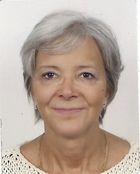
Funzione/Ruolo
Ex atleta, campionessa di scherma, specialità fioretto. Vicepresidente CONI Lombardia. Presidente A.N.S.Me.S. Milano e Provincia (Associazione Nazionale Stelle, Palme e Collari d’Oro al Merito del CONI e del CIP). Presidente del Circolo della Spada Mangiarotti.
Percorso professionale
Carola Mangiarotti inizia la sua carriera sportiva con la scherma di fioretto a 10 anni, seguendo una tradizione di famiglia. All'età di 13 anni vince il Campionato Italiano delle Giovanissime (Roma, 1965). L’anno successivo, dopo una diagnosi di scoliosi alla mano destra, inizia ad allenarsi con la mano sinistra, perdendo alcuni anni di attività agonistica. Nel 1968, riprende le gare e disputa le finali del Campionato Italiano categorie Giovanette e Giovani. Nel 1970 entra in squadra nazionale under 20 e nel 1973 nella nazionale assoluta. Partecipa ai Giochi Olimpici di Montreal nel 1976 e a quelli di Mosca nel 1980. In entrambi i casi si classifica al 5° posto del fioretto a squadre. Dal 1973 al 1979 partecipa a 6 Campionati del Mondo Assoluti e a 3 Universiadi. Il suo palmares include il 1° posto nella Gara a Squadre di Coppa del Mondo, a Minsk nel 1974, la medaglia di bronzo individuale ai Giochi del Mediterraneo ad Algeri, nel 1975, il 4° posto al Trofeo Internazionale Martini York di New York nel 1976, il 3° posto alla Coppa Italia del 1977, il 1° posto alla Coppa di Berna nel 1979, anno in cui diventa Campionessa Italiana Universitaria e Campionessa Italiana Assoluta a Squadre di fioretto.
Dopo le Olimpiadi di Mosca del 1980 chiude l’attività agonistica di alto livello e si dedica all’attività di istruttrice di Educazione fisica nelle scuole. Seppur non più agonista, nel 1984 partecipa al Campionato Italiano Assoluto a squadre e si classifica al 2° posto. Dal 1981, dirige il Circolo della Spada Mangiarotti, oggi una tra le più importanti società schermistiche in Italia, con 380 allievi e una ventina di maestri e collaboratori. Dal 1986 al 2017 è Vicepresidente del Circolo della Spada Mangiarotti e dal 2018 ne è l’attuale Presidente. Negli anni 2013, 2014, 2015 e 2016 organizza e presiede il Premio Internazionale Edoardo Mangiarotti, che ha avuto lo scopo di offrire riconoscimento e risonanza ai giovani dai 18 ai 30 anni impegnati in ambito sportivo attraverso un Bando di Concorso. Nel 2019 organizza, in collaborazione con la Gazzetta dello Sport, l’evento per il Centenario dalla nascita di Edoardo Mangiarotti.
Nel 2021 è eletta Vicepresidente CONI Lombardia e successivamente anche Presidente A.N.S.Me.S. Milano e Provincia (Associazione Nazionale Stelle, Palme e Collari d’Oro al Merito del CONI e del CIP). Nello stesso anno è nominata Componente Commissione Benemerenze/Onorificenze CONI Lombardia.
È Componente del Consiglio Direttivo Associazione Benemeriti del Comune e della Provincia di Milano e Componente del Consiglio Direttivo UNVS Milano (Unione Nazionale Veterani dello Sport).
È anche Componente Comitato d’Onore e d’Indirizzo per i Campionati del Mondo Assoluti di Scherma Milano, luglio 2023.
Riconoscimenti e premi
1975, Medaglia di Bronzo al Valore Atletico, CONI.
1991, Premio della Consulta provinciale di Milano alla carriera sportiva.
2007, Stella di Bronzo al Merito Sportivo, CONI.
2016, Stella d'Argento al Merito Sportivo, CONI.

Funzione/Ruolo
Professoressa ordinaria di Psicologia Sociale presso l'Università Cattolica del Sacro Cuore di Milano
Percorso professionale
Dopo aver conseguito la laurea in Filosofia con indirizzo Scienze Umane presso l'Università Cattolica di Milano nel 1999, prosegue la sua formazione nello stesso Ateneo con un dottorato di ricerca in Psicologia Sociale e dello Sviluppo durante il quale collabora alle attività di ricerca e formazione del Centro di Ateneo Studi e Ricerche sulla Famiglia. Dal 2003 al 2005 è assegnista di ricerca in Psicologia Sociale presso il Dipartimento di Psicologia dell'Università Cattolica di Milano. Dall'anno successivo fino al 2016 è ricercatrice di Psicologia Sociale presso la Facoltà di Scienze della Formazione della Università Cattolica di Milano. Nel 2008 è visiting professor presso la University of Tennessee, nel dipartimento Child and Family Studies e nel 2016 ricopre lo stesso ruolo all'University of Sussex, nel dipartimento di Psychology. Nel 2009 è stata selezionata come consulente presso l'ufficio Research Methods and Data Analysis delle Nazioni Unite (ONU), Office of Internal Oversight Services (New York). Dal 2015 al 2019 è professoressa associata e, dal 2019, ordinaria di Psicologia Sociale presso la Facoltà di Scienze della Formazione della Università Cattolica di Milano.
Risultati scientifici
Claudia Manzi è una studiosa di processi di costruzione e sviluppo dell'identità, in particolare di motivazioni identitarie, identità adulta, identità correlata alla transizione, al pregiudizio etnico, alla differenziazione familiare, alla psicologia cross-culturale. Su questi temi ha collaborato, nel 2007, con l'Universidad de los Andes, Bogotà, in Colombia, per uno studio sui cambiamenti identitari nei periodi di transizione, e nello stesso anno con il Centre for the Study of Youth and Political Violence, dell'University of Tenneessee, presso il quale ha partecipato alla fase finale di analisi dei dati e pubblicazione dei risultati di un progetto coordinato dal World Health Organization's Program for Child and Adolescent Health and Development. Dal 2008 partecipa all'equipe di ricerca internazionale per il progetto di ricerca cross-culturale "Motivated identity construction in cultural context" finanziato dal Economic and Social Research Council (ESRC). Infine, dal 2014 fa parte dell'equipe di ricerca internazionale "World Relationship Study", finanziato da Japan Society for the Promotion of Science.
Attività editoriali e pubblicazioni
Claudia Manzi dal 2011 è componente dell'Editorial Board dell'Encyclopaedia of Quality of Life Research (Ed. A. Michalos), Springer di New York e referee di riviste internazionali di eccellenza come Journal of Personality, Journal of Marriage and Family, Journal of Adolescence, Journal of Early Adolescence, Self and Identity, Psychology of Individual Differences, Social Psychology.
È autrice di numerose pubblicazioni nazionali e internazionali fra cui:
(2017) Manzi C, Roccato M, Paderi F, Vitrotti S, Russo S. The social development of right-wing authoritarianism: The interaction between parental autonomy support and societal threat to safety. Personality and Individual Differences, 109: 1-4.
(2015) Manzi C, Roccato M, Russo S. What buffers right-wing authoritarian responses to threat? An experimental study to test the moderation of meaning. Personality and Individual Differences, 83:117-121.
(2015) Manzi C, Parise M, Iafrate R, Sedikides C, Vignoles VL. In so far as you can be part of me: The influence of intrusive parenting on young adult couple identity. Self & Identity, 14: 5, 570-582.
(2014) Manzi C, Brambilla M. Identity change. In A. Michalos (Eds.). Encyclopedia of Quality of Life Research, Dordrecht, Netherlands, Springer, 2167-2168.
(2014) Manzi C, Ferrari L, Rosnati R, Benet-Martinez V. Bicultural Identity Integration of Transracial Adolescent Adoptees: Antecedents and Outcomes. Journal of Cross Cultural Psychology, 45(6):888-904.
(2013) Brambilla M, Manzi C, Regalia C, Verkuyten M. Religiosity and Prejudice: Different Patterns for Two Types of Religious Internalization. The Journal of Social Psychology, 153:486-498.
(2011) Scabini E, Manzi C. Family Processes and Identity. In S. J. Schwartz, K. Luyckx, and V. L. Vignoles (Eds), Handbook of Identity Theory and Research, New York: Springer, 565-584.
(2010) Manzi C. Identità adulta nella letteratura psicosociale. In E. Marta, C. Regalia (Eds.), Identità in relazione. Le sfide odierne dell'essere adulto. Milano: The McGraw-Hill Companies, 17-31.
(2010) Manzi C, Vignoles V, Regalia C. Accommodating a new identity: Possible selves, identity change, and well-being across two life-transitions. European Journal of Social Psychology, 40:970-984.
(2006) Manzi C, Vignoles V, Regalia C, Scabini E. Cohesion and enmeshment revisited: Family differentiation, identity, and psychological well-being in two European cultures. Journal of Marriage and the Family, 68: 673-689.
Riconoscimenti e premi
Dal 2007 Claudia Manzi fa parte della European Association of Social Psychology, dal 2009 della Society for Personality and Social Psychology e dal 2014 della Associazione Italiana di Psicologia, sezione di Psicologia Sociale.

Area STEM: Ingegneria
Competenze: computazione elettromagnetica, ingegneria dei sistemi spaziale, ingegneria delle operazioni, valutazione programmatica e dei servizi operativi
Parole chiave: ESA (European Space Agency), International Space Station (ISS), ISS Payloads, JSC (Johnson Space Center), modulo Columbus, NASA (National Aeronautics and Space Administration)
Regione: ESTERO
Funzione/Ruolo
Operations and Project Engineer presso RHEA Group per l’ Agenzia Spaziale Europea (ESA).
Percorso professionale
Cecilia Marasini si laurea presso l'Università di Pisa in Ingegneria delle Telecomunicazioni nel 2001, includendo una borsa di studio di sei mesi in calcolo elettromagnetico presso la Chalmers University of Technology di Goteborg (Svezia) e uno stage di tre mesi in Hewlett Packard Consultant.
Nel 2001, inizia la sua carriera professionale come ingegnera di sistema e software presso il Centro Tecnologico Motorola di Torino, dove fa parte del team di test di interoperabilità per supportare l'integrazione di terminali UMTS/GSM e 3G nella rete dei servizi mobili.
Il suo interesse per la ricerca elettromagnetica applicata la riporta al mondo accademico e dal 2004 al 2007 svolge il dottorato di ricerca presso il TNO (Organizzazione dei Paesi Bassi per la Ricerca Scientifica Applicata) e l’Università Tecnica di Eindhoven in Olanda. Diventata ricercatrice, lavora nel gruppo Radar and Electronic Warfare presso TNO fino al 2009.
Nel 2010 si trasferisce nel campo dell'ingegneria aerospaziale ed entra a far parte del Gruppo RHEA per Agenzia Spaziale Europea (ESA-ESTEC, Paesi Bassi) nel Direttorato di Human and Robotics Exploration Spaceflight (HRE). Da allora, ricopre il ruolo di Operations e Project Engineer. Ha contribuito alla creazione e alla gestione programmatica della rete degli USOCs (User Support Operations Centres) per l'esecuzione e l'implementazione di payload europei sulla Stazione Spaziale Internazionale (ISS), elaborando concetti di operazioni di payload e processi operativi. Ha contribuito alla creazione e all'implementazione del Centro dei Dati Scientifici e dell’archivio dati per l'archiviazione, la valorizzazione e la pubblicazione dei dati degli esperimenti ESA eseguiti sulla ISS.
Nel 2019 e nel 2022, ha servito temporaneamente l’ufficio ESA Houston Liaison Office come rappresentante dell'ESA presso l'ISS Mission Management Center al Johnson Space Center (JSC) della NASA (Houston, Texas).
Nel 2021, assume un ruolo di ingegneria operativa nella definizione dei concetti di ESA Gateway Operations come prossimo passo per l'operabilità dei moduli ESA in orbita lunare.
Ha promosso le materie STEM nelle scuole primarie e medie in Italia e nei Paesi Bassi, presentando la sua esperienza come ispirazione alle giovani generazioni e alle ragazze in particolare.
Risultati scientifici
Il profilo scientifico di Cecilia Marasini è vario poiché ha iniziato la sua ricerca nelle tecniche di calcolo elettromagnetico mentre svolgeva la sua tesi di laurea in Ingegneria delle telecomunicazioni e ha ampliato la sua ricerca in tecniche di calcolo efficiente per la progettazione di antenne conseguendo un dottorato di ricerca solo dopo una esperienza professionale nel settore delle telecomunicazioni. La principale attività di ricerca si è basata sulla programmazione di un codice di calcolo efficiente utilizzando il metodo di Galerkin per rappresentare l’antenna e applicando una funzione di ottimizzazione Swarm con l’obiettivo di massimizzare il guadagno di antenna e minimizzare il Voltage Standing Wave ratio (VSWR).
Successivamente ha esteso il suo interesse al settore spaziale, lavorando principalmente alla definizione di concetti operativi per l'esecuzione degli esperimenti europei sulla Stazione Spaziale Internazionale e recentemente per gli elementi ESA sul Gateway.
Con l'obiettivo di centralizzare i dati scientifici degli esperimenti ISS europei, Cecilia ha lavorato alla definizione e all'implementazione del Science Data Archive / HRE Data Archive, contribuendo alla definizione di processi, prodotti e deliverables e gestendo il contratto di servizio associato.
Ha ampliato le sue capacità interdisciplinari e la sua esperienza di lavoro in ambienti internazionali assumendo il ruolo di rappresentante presso l'ISS Mission Management Center per l'ESA.
Attività editoriali e pubblicazioni
E’ autrice e co-autrice di varie pubblicazioni scientifiche internazionali, tra cui:
[2022] C. Marasini, A. Nitsch, T. Sheasby, ‘Implementing a Lean Operational Set-up for Gateway ESA Modules’, for presentation at International Astronautical Congress IAC 2022.
[2021] A. Laveron, C. Marasini, et. All, ‘The HRE Science Data Center: A new entity for storing, valorising and publishing the data coming from ESA experiments’, International Astronautical Congress, IAC 2021.
[2018] C. Marasini, A. Nitsch, ‘Implementing Experiments and Science Operations on ISS with a Network of Operations Centres’, Human Spaceflight and Weightlessness Science Workshop, Toulouse, France.
[2011] C. Leone, A. Rogovich, C. Marasini, S. Genovesi and A. Monorchio, ‘A dynamic particle swarm optimization for the design of loaded wire antennas’, IET Microwave, Antennas and Propagation Journal.
[2010] C. Marasini, A New Approach for Wire Antennas Design – Problem formulation and numerical implementation of Galerkin MoM embedded in a Particle Swarm Optimization Process, LAMBERT Academic Publishing, Germany, 2010, ISBN 978-3-8383-4153-8
[2009] C. Marasini and E.S.A.M. Lepelaars, ‘Static magnetic signature translation’, 6th International Marine Electromagnetics Conference, MARLEC 2009.
[2009] C. Marasini, E. S. A. M. Lepelaars and A. P. M. Zwamborn, ‘Interpolation algorithm for fast evaluation of EM coupling between wires’, Applied Computational Electromagnetic Society (ACES) Journal, vol.24 n.3.
[2008] C. Marasini, ‘Efficient Computation Techniques for Galerkin MoM Antenna Design, Ph.D. Dissertation’, Eindhoven University of Technology, Eindhoven, The Netherlands, June 2008, ISBN 978-90-386-1874-6
[2007] A. Rogovich, C. Marasini, A. Monorchio, E. S. A. M. Lepelaars and P. A. M. Zwamborn. ‘Design of Wire Antennas by Using an Evolved Particle Swarm Optimization Algorithm’. Invited paper at International Conference on Electromagnetics in Advanced Applications, ICEAA ’07.
[2007] C. Marasini, E. S. A. M. Lepelaars and P. A. M. Zwamborn, ‘Interpolation Algorithm for Fast Evaluation of EM Coupling between Wires’. Paper presentation at International Symposium on Electromagnetic Theory, EMTS ’07.
[2005] C. Marasini, E. S. A. M. Lepelaars and P. A. M. Zwamborn, ‘Analysis of the resonant behavior of a complex loaded wire by using the Exact Kernel MoM’. Paper presentation at International Conference on Electromagnetics in Advanced Applications, ICEAA ’05.
[2000] C. Marasini, A. Freni, P-S Kildal, ‘Analysis of mictrostrip antenna on a corrugated multilayer structure by using CG-FFT method and G1DMULT algorithm’, Antenna & Propagations AP2000, Millennium Conference.
Riconoscimenti e premi
Nel 2019 riceve il Certificato di eccellenza di RHEA Group per 10 anni di servizio.
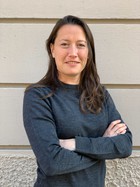
Funzione/Ruolo
Ex atleta, campionessa di calcio. Responsabile settore calcio femminile associazione italiana calciatori. Consigliera federale FIGC (Federazione Italiana Gioco Calcio). Dirigente accompagnatrice Nazionale Italiana Femminile di Calcio.
Percorso professionale
Chiara Marchitelli è un'ex calciatrice italiana, di ruolo portiera. Inizia la sua carriera nel 1999 nella Lazio per poi vestire le maglie dell'Atletico Oristano, Fiammamonza, Roma Calcio Femminile, Tavagnacco, Brescia, Florentia San Gimignano e Inter. Ha vinto quattro campionati italiani, altrettante edizioni della Coppa Italia e cinque Supercoppe.
Dopo aver giocato nelle nazionali giovanili e partecipato al primo storico Mondiale di calcio femminile in Thailandia nel 2004 con la selezione Under 19, nel 2005 viene convocata in nazionale maggiore e nello stesso anno prende parte al Campionato Europeo che si è disputato in Inghilterra. Partecipa al Mondiale francese del 2019 e al termine del torneo – dopo aver vestito la maglia azzurra per 14 anni, collezionando 52 presenze – dà l’addio alla nazionale.
Nel 2021 annuncia il suo ritiro dal calcio giocato e diventa la responsabile del settore calcio femminile dell'AIC (Associazione Italiana Calciatori), Consigliera Federale e dirigente accompagnatrice della nazionale maggiore.
Riconoscimenti e premi
2015, Medaglia di bronzo al valore atletico CONI.
2017, Medaglia di bronzo al valore atletico CONI.
2021, Premio Talenti D’Italia.
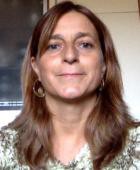
Funzione/Ruolo
Prima ricercatrice all’Istituto Nazionale di Geofisica e Vulcanologia, Centro Nazionale Terremoti; Responsabile dell’analisi dati per la sorveglianza e il monitoraggio sismico
Percorso professionale
Dopo la laurea in Geologia all’Università degli Studi di Roma La Sapienza nel 1991, prosegue gli studi attraverso una borsa di specializzazione all’estero in Sismologia presso lo United States Geological Survey di Menlo Park, CA, USA nel 1992- 1993. Nel 1994 continua la specializzazione presso l’Università degli studi de L’Aquila, dipartimento di Fisica e poi presso l’Istituto Nazionale di Geofisica (ING) di Roma che nel 2000 diventa Istituto Nazionale di Geofisica e Vulcanologia (INGV). Prosegue all’INGV la sua formazione e le sue ricerche prima come ricercatrice a contratto, poi come ricercatrice e nel 2003 come prima ricercatrice. Dal 1998 svolge i turni di sorveglianza sismica prima come turnista responsabile della Sala operativa, con il compito di allertare la Protezione Civile, servizio interrotto durante i periodi di maternità nel 2000 e nel 2002; poi nel 2015 si qualifica come turnista per allerta tsunami e infine oggi svolge i turni come funzionaria responsabile della comunicazione verso il Dipartimento di Protezione Civile (DPC).
Dal 2007 al 2014 è stata responsabile di un gruppo di ricerca costituito da 25 ricercatori che si occupano di sismologia e struttura dell’interno della terra, dal 2014 è responsabile di un gruppo di tecnici e ricercatori che si occupano dell’analisi dati per la sorveglianza e il monitoraggio sismico. Tra il 2009 ed il 2013 è stata coordinatrice della rete sismica mobile del Centro Nazionale Terremoti si è quindi occupata della organizzazione di attività di pronto intervento sismico. Ha coordinato importanti gruppi di lavoro in progetti nazionali e internazionali che hanno coinvolti istituti e Università Italiane, Europee e Statunitensi quali il progetto RETREAT (2002-2007), il progetto Messina 1908-2008 (2007-2009), il progetto INGV-DPC Test sites per il monitoraggio multidisciplinari di dettaglio (2007-2009), il progetto AlpArray (2015-2018). È responsabile di alcune delle attività che INGV svolge per il DPC e dell’accordo quadro con la Agenzia di Protezione Civile della Regione Lazio. Partecipa da sempre alle attività di divulgazione ed informazione dell’INGV rivolte alle scuole, al pubblico e ai media.
Risultati scientifici
I suoi interessi scientifici si sono concentrati negli ultimi anni sull’’analisi di sequenze sismiche per l’individuazione delle faglie attive e lo studio delle possibili variazione delle caratteristiche della crosta terrestre durante l’occorrenza delle sequenze stesse. Da circa 15 anni si occupa dell’analisi della birifrangenza delle onde sismiche per definire l’anisotropia sismica e lo stato di deformazione della crosta e del mantello terrestre. Questa analisi permette di caratterizzare il campo di fratturazione crostale e definire le sue relazioni con il campo di sforzo attivo e con la presenza di fluidi. La caratterizzazione dell’anisotropia sismica, quando fatta su onde che attraversano il mantello terrestre, ci consente invece di formulare modelli geodinamici a scala regionale: la zona di subduzione del tirreno meridionale, li dove la placca ionica scende al di sotto dell’arco calabro è stata la prima regione del mantello terrestre dove è stato osservato un flusso toroidale del mantello ai bordi della placca in subduzione (Civello e Margheriti 2004). Durante gli anni della formazione si è occupata dello studio degli effetti di sito cioè di come le onde sismiche vengono amplificate e modificate dalla geologia di superficie specialmente quando si hanno depositi incoerenti siano essi fluviali o di versante, e dalla conformazione topografica dell’area attraversata dallo scuotimento sismico. Nel 1993 è stata tra le prime a utilizzare le registrazioni delle vibrazioni ambientali (noise sismico) per caratterizzare la risposta di siti che avevano registrato il terremoto di San Francisco del 1989.
Attività editoriali e pubblicazioni
È autrice di circa 70 pubblicazioni scientifiche internazionali, tra cui:
(2016) Baccheschi P, Pastori M, Margheriti L, Piccinini D. Shear wave splitting of the 2009 L'Aquila seismic sequence: fluid saturated microcracks and crustal fractures in the Abruzzi region (Central Apennines, Italy). Geophysical Journal International, 204 (3): 1531-1549.doi: 10.1093/gji/ggv536
(2014) Margheriti L, Lucente FP, Park J, Pondrelli S, Levin V, Steckler MS, Baccheschi P, Salimbeni S. Large-scale coherent anisotropy of upper mantle beneath the Italian peninsula comparing quasi-Love waves and SKS splitting. Journal of Geodynamics, DOI: 10.1016/j.jog.2014.07.007
(2014) Govoni A, Marchetti A, De Gori P, Di Bona M, Pio Lucente F, Improta L, Chiarabba C, Nardi A, Margheriti L, Piana Agostinetti N, Di Giovambattista R, Latorre D, Anselmi M, Ciaccio MG, Moretti M, Castellano C, Piccinini D. The 2012 Emilia seismic sequence (Northern Italy): Imaging the thrust fault system by accurate aftershocks location Tectonophysics. http://dx.doi.org/10.1016/j.tecto.2014.02.013
(2013) Salimbeni S, Pondrelli S, Margheriti L. (2013). Hints on the deformation penetration induced by subductions and collision processes: Seismic anisotropy beneath the Adria region (Central Mediterranean).Journal of Geophysical Research: Solid Earth, DOI: 10.1002/2013JB010253
(2011) Baccheschi P, Margheriti L, Steckler M S & Boschi E. Anisotropy patterns in the subducting lithosphere and in the mantle wedge: A case study—The southern Italy subduction system. Journal of Geophysical Research, 116, B08306.
(2010) Lucente FP, Gori PD, Margheriti L, Piccinini D, Bona MD, Chiarabba C, Agostinetti NP. Temporal variation of seismic velocity and anisotropy before the 2009 MW 6.3 L'Aquila earthquake. Italy: Geology, 38:1015–1018, doi: 10.1130/G31463.1.
(2004) Civello S and Margheriti L. Toroidal mantle flow around the Calabrian slab (Italy) from SKS splitting, Geophysical Reserach Letters, 31, L10601, doi:10.1029/2004GL019607.
(2000) Margheriti L, Azzara MR, Cocco M, Delladio A and Nardi A. Analysis of borehole broad-band recordings: Test sute in the Po basin, Northern Italy. Bulletin of the Seismological Society of America, 90, 6:1454-1463.
(1996) Margheriti L, Nostro C, Cocco M and Amato A. Seismic anisotropy beneath the northern Apennines (Italy) and its tectonic implications. Geophysical Reserach Letters, 23; 20:2721-2724.
(1994) Margheriti L, Boatwright J, Wennerberg L. A comparison of Coda and S-wave spectral ratios as estimates of site response in the Southern San Francisco Bay area. Bulletin of the Seismological Society of America, 84, 6:1815-1830.
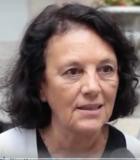
Funzione/Ruolo
Geriatra presso l'Istituto Auxiologico Italiano "Mosé Bianchi" di Milano
Percorso professionale
Dopo aver conseguito la laurea in Medicina e Chirurgia, all'Università degli Studi di Milano, dal 1976 prosegue la sua formazione come ricercatrice in Medicina Interna fino 1991. Dal 2007 al 2010 dirige il laboratorio di ricerca sperimentale sull'invecchiamento dell'IRCCS Istituto Auxologico Italiano e Università di Milano e del Dipartimento di Scienze Mediche e Riabilitative ad indirizzo Geriatrico-Cardio-Vascolare dell'IRCCS Istituto Auxologico Italiano. Fino al 2014 è responsabile della Scuola di Specializzazione in Geriatria, e del Cdl Magistrale in Scienze Riabilitative delle Professioni Sanitarie. Dal 2010 al 2016 dirige l'U.O.C. (unità operativa complessa) di Geriatria della Fondazione IRCCS Ca' Granda Ospedale Maggiore Policlinico di Milano in convenzione con l'Università degli Studi di Milano, dove nello stesso periodo insegna come professoressa associata di Geriatria, presso il Dipartimento di Scienze Cliniche e di Comunità. Dal 2020 è geriatra presso l'Auxiologico "Mosé Bianchi", il centro di ricovero e cura a carattere scientifico dell'Istituto Auxiologico Italiano con sede a Milano.
Risultati scientifici
Daniela Mari dirige da molti anni il gruppo di ricerca di Milano che studia i fattori di rischio cardiovascolari e loro varianti genetiche nella longevità e nei centenari, e le malattie neurodegenerative nell'anziano. Durante il periodo trascorso come responsabile del laboratorio di ricerca sperimentale sull'invecchiamento dell'Istituto Auxologico Italiano di Milano, Daniela Mari e colleghi si concentrano sullo studio delle basi genetiche della longevità, indagando le caratteristiche di un largo numero di figli settantenni di centenari. A tale scopo ricorrono anche all'analisi di metilazione del DNA, ovvero a una modificazione epigenetica del DNA, processo che consiste nel legame di un gruppo metilico (un atomo di carbonio legato a tre atomi di idrogeno) a una base azotata. Indagano anche il rapporto dose-efficacia della terapia anticoagulante orale (TAO) nell'anziano, i fattori di rischio genetici e non nelle malattie cerebrovascolari e l'influenza dell'obesità e dello stato metabolico sull'invecchiamento e le malattie età-correlate.
Attività editoriali e pubblicazioni
Daniela Mari è Associate Editor nell' Editorial Board della rivista Journal of Gerontology & Geriatrics (JGG).
È inoltre autrice di numerose pubblicazioni scientifiche nazionali ed internazionali, fra cui:
(2016) Esposito S, Mari D, Bergamaschini L, et al. Pneumococcal colonization in older adults.Immunity & Ageing, 13(1).
(2016) Abbate C, Trimarchi PD, Rotondo E, Mari D, et al. Spontaneous confabulations in amnestic-mild cognitive impairment due to Alzheimer's disease: a new (yet old) atypical variant?. Neurocase.
(2016) Muscogiuri D, Mari D, et al. 25 Hydroxyvitamin D Deficiency and Its Relationship to Autoimmune Thyroid Disease in the Elderly. International Journal of Environmental Research and Public Health, 13(9):850.
(2016) Abbate C, Caputo L, Damanti S, Mari D, et al. Reversible Parkinson's Dementia Associated with Withdrawal of Androgen-Deprivation Therapy for Prostate Cancer. Journal of the American Geriatrics Society.
(2016) Arosio B, Casati M, Gussago C, Mari D, et al. Adenosine Type A2A Receptor in Peripheral Cell from Patients with Alzheimer's Disease, Vascular Dementia, and Idiopathic Normal Pressure Hydrocephalus: A New/Old Potential Target. Journal of Alzheimer's disease, 54(2):1-9.
(2016) Ogliari G, Smit RAJ, van der Spoel E, Mari D, et al. Thyroid Status and Mortality Risk in Older Adults With Normal Thyrotropin: Sex Differences in the Milan Geriatrics 75+ Cohort Study. The Journals of Gerontology Series A Biological Sciences and Medical Sciences.
(2016) Dionigi Rossi P, Bilotta C, Consonni D, Mari D, et al. Predictors of clinical events occurring during hospital stay among elderly patients admitted to medical wards in Italy.European Journal of Internal Medicine, 32.
(2016) Gussago C, Arosio B, Guerini F, Mari D, et al. Impact of vitamin D receptor polymorphisms in centenarians.Endocrine.
(2016) Oldoni E, Fumagalli GG, Serpente M, Mari D, et al. PRNP P39L Variant is a Rare Cause of Frontotemporal Dementia in Italian Population. Journal of Alzheimer's disease: JAD, 50(2).
(2015) Hovath S, Pirazzini C, Bacalini MG, Mari D, et al. Decreased epigenetic age of PBMCs from Italian semi-supercentenarians and their offspring. Aging, 7(12).
Daniela Mari è anche autrice del saggio scientifico divulgativo A spasso con i centenari.. L'arte di vivere bene invecchiando (Il Saggatiore, 2017).
Riconoscimenti e premi
Daniela Mari ha ottenuto un grant dal MIUR, dal Ministero della Salute e dalla Regione Lombardia per gli studi sull'emostasi, la genetica dell'invecchiamento e la longevità. Dal 2010 a oggi è componente del tavolo Regionale per l'appropriatezza in Medicina e del "Gruppo Fondamentale" Tavolo Tecnico Regionale della Direzione Generale Sanità Regione Lombardia. Nel 2012 riceve la carica di "Scientific Expert" dell'Agence Nationale de la Recherche francese per la revisione di progetti di ricerca. Dal 2013 fa parte dell'albo dei revisori per la valutazione dei programmi e dei prodotti di ricerca ministeriale (ANVUR), dallo stesso anno fa parte dell'Action-Group A3 della Commissione Europea "European Innovation Partnership on Active and Healthy Ageing: Action For Prevention Of Functional Decline And Frailty". Daniela Mari è inoltre partner nello studio Europeo: MID- FRAIL Study FP7-Health 2011.

Funzione/Ruolo
Professoressa Emerita di Analisi Numerica all'Università di Pavia
Percorso professionale
Consegue la laurea in Matematica all'Università di Pavia nel 1970, e lavora come ricercatrice presso l'Istituto di Analisi Numerica (ora IMATI-CNR) di Pavia dal 1973 al 1990. Dallo stesso anno è professoressa di Analisi Numerica presso la facoltà di Scienze dell'Università di Genova, e dal 1993 è Professoressa Ordinaria della stessa materia presso la facoltà di Ingegneria dell'Università di Pavia. Attualmente è professoressa emerita di Analisi Numerica presso il Dipartimento di Matematica dell'Università di Pavia.
Risultati scientifici
Gli interessi di ricerca di Luisa Donatella Marini riguardano i metodi numerici per equazioni alle derivate parziali (equazioni che coinvolgono le derivate parziali di una funzione incognita di più variabili indipendenti) con applicazioni alla deformazione di corpi elastici, alla simulazione di dispositivi semi-conduttori, alla meccanica dei fluidi. Un particolare interesse è stato dedicato alle tecniche di discretizzazione (per passare da un problema la cui incognita è una funzione a un problema la cui incognita è un insieme finito di numeri, risolvibile con un calcolatore) e in questo ambito ai metodi cosiddetti di Galerkin e alle loro varianti, introdotte per migliorarne le prestazioni. Tali varianti devono essere adeguate alle diverse caratteristiche di problemi che provengono da contesti applicativi diversi: la filtrazione dell'acqua attraverso strati di terra, la risposta di un dispositivo semiconduttore alla variazione del potenziale elettrico applicato, la flessione di una struttura con uno spessore sottile sottoposta ad un carico trasversale, il trasporto di un inquinante lungo un corso d'acqua etc.
Attività editoriali e pubblicazioni
Luisa Donatella Marini ha fatto parte, dal 1988 al 1993, del Comitato di Redazione della rivita SISC (SIAM Journal on Scientific and Statistical Computing), e dal 2001 è parte del Comitato di Redazione dela rivista CMAME (Computer methods in Applied Mechanics and Engineering) due delle riviste internazionali di Calcolo Scientifico più prestigiose, e dal 2008 è anche parte del Comitato di Redazione dell'Italian Journal of Pure and Applied Mathematics. Collabora inoltre al processo di selezione degli articoli da pubblicare su numerose altre importanti riviste internazionali.
È inoltre autrice di più di 100 pubblicazioni nazionali ed internazionali, tra cui:
(2016) Beirao da Veiga L, Brezzi F, Marini LD, Russo A. Virtual Element Methods for general second order elliptic problems on polygonal meshes. Mathematical Models and Methods in Applied Sciences, 26(4):729-750.
(2013) Beirao da Veiga L, Brezzi F, Cangiani A, Manzini G, Marini LD, Russo A.
Basic principles of Virtual Element Methods. Mathematical Models and Methods in Applied Sciences, 23(1):199-214.
(2013) Beirao da Veiga L, Brezzi F, Marini LD. Virtual Elements for linear elasticity problems, SIAM Journal on Numerical Analysis, 51(2):794-812.
(2009) Ayuso B, Marini LD. Discontinuous Galerkin methods for advection-diffusion-reaction problems. SIAM Journal on Numerical Analysis, 47(2):1391-1420.
(2006) Brezzi F, Cockburn B, Marini LD, Süli E. Stabilization mechanisms in discontinuous Galerkin finite element methods. Computer Methods in Applied Mechanics Engineering, 195(25-28), 3293-3310.
(2005) Arnold DN, Brezzi F, Marini LD. A Family of Discontinuous Galerkin Finite Elements for the Reissner-Mindlin plate. Journal of Scientific Computing, 22(1): 25-45.
(2002)Arnold DN, Brezzi F, Cockburn B, Marini LD, Unified analysis of Discontinuous Galerkin Methods for Elliptic Problems. SIAM Journal on Numerical Analysis, 39(5):1749-1779.
(1989) Marini LD, Quarteroni A. A relaxation procedure for domain decomposition methods using finite elements. Journal of Numerical Mathematics, 55:575-598.
(1985) Marini LD. An inexpensive method for the evaluation of the solution of the lowest order Raviart-Thomas mixed method. SIAM Journal on Numerical Analysis, 22 (3):493-496.
(1985) Brezzi F, Douglas J jr., Marini LD. Two families of mixed finite elements for second order elliptic problems. Journal of Numerical Mathematics, 47:217-235.
Riconoscimenti e premi
Luisa Donatella Marini ha co-organizzato il mini simposio "Applications of the Virtual Element Method" alla Conferenza GAMM (International Association of Applied Mathematics and Mechanics) di Lecce, 2015. Fa inoltre parte della General Assembly e del Managing Board di ECCOMAS (European Community on Computational Methods in Applied Sciences) ed è componente dell'European Academy of Science dal 2010.
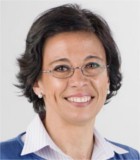
Area Economia e Finanza
Competenze: business assicurativo, business bancario, economia aziendale, finanza, finanziamento sociale, impatto climatico e sociale, macroeconomia
Parole chiave: criteri ESG (ambientali, sociali, di governance), disoccupazione giovanile, export e investimenti esteri, politiche di genere, rischio paese, rischio politico, sostenibilità, strategia bancaria
Regione: Lombardia
Funzione/Ruolo
Responsabile della Group ESG Strategy and Impact Banking UniCredit Spa
Percorso professionale
Dopo aver conseguito la laurea in Economia e Commercio presso l'Università degli Studi di Trieste nel 1991, consegue un MBA in International Business presso la MIB School of Management. Ha trascorso circa sedici anni in McKinsey & Company, dapprima prima come analista del settore bancario e finanziario, poi come responsabile del Research Department per l’Italia e coordinatrice del team europeo di analisti del settore bancario, successivamente come Direttrice Ricerca e Comunicazione per l’Area Mediterranea (Italia, Turchia, Grecia, Iberia). È stata anche Responsabile Analisi Strategica di Gemini Consulting (Gruppo Cap Gemini Ernst & Young) e della Banca Nazionale del Lavoro. Dal 2014 è Direttrice Area Studi, Comunicazione, Corporate Social Value ed Education to Export di SACE (Gruppo Cdp). In questo ruolo si occupa della valutazione del rischio paese e delle opportunità di business nei mercati avanzati ed emergenti e fornisce pareri vincolanti sulle richieste di finanziamento e garanzie che richiedano copertura dal rischio politico e sovrano. Sviluppa inoltre format di educazione all’export e internazionalizzazione rivolti alle PMI italiane e presidia le attività di comunicazione interna, esterna e di responsabilità sociale.
Dal 2017 al 30 giugno 2020 è Consigliera di Amministrazione e membro del Comitato Controlli e Rischi di BPER Banca. Dal 1° luglio 2020 è Responsabile della Group ESG Strategy and Impact Banking di UniCredit.
È stata fondatrice dell’associazione Valore D, che raggruppa oggi circa 170 aziende con il comune obiettivo di eliminare le barriere alla crescita del talento femminile, e ha promosso l’avvio di “Push to Open”, programma dedicato alla formazione e orientamento al lavoro dei ragazzi 17-18enni (4.500 studenti coinvolti dal 2015 a oggi).
Risultati scientifici
L’attività di ricerca di Roberta Marracino si è concentrata su quattro ambiti.
Il primo filone di approfondimento riguarda l’esplorazione dei vettori di crescita dell’economia europea ed italiana, in assenza di stimoli di natura fiscale, limitati da debito e deficit pubblico elevati. Partendo dall’analisi delle determinanti dello scostamento di ricchezza tra Europa e Stati Uniti sia dal lato della domanda che dell’offerta e attingendo alle best practice di altri Paesi europei, si propone un’agenda di riforme da mettere in campo per migliorare le prospettive di crescita di lungo termine del vecchio continente.
Il secondo ambito attiene alla valorizzazione delle soluzioni di welfare sussidiario, in termini di beneficio economico per le aziende e i dipendenti. In presenza di dinamiche demografiche sfavorevoli, incremento dell’occupazione femminile, sistema di assistenza pubblica e protezione sociale limitato dai vincoli di bilancio, l’analisi dimostra che è possibile per le imprese dare un contributo positivo alla domanda di welfare, rendendo l’intervento vantaggioso anche sotto il profilo economico.
Il terzo filone approfondisce le cause della disoccupazione giovanile in Italia, che per il 40% ha una natura strutturale riconducibile a tre fattori: lo sbilanciamento quantitativo tra domanda delle imprese e scelte dei giovani; la carenza di competenze adeguate ai bisogni del sistema economico; l’inadeguatezza dei canali di supporto alla ricerca del lavoro.
Infine, l’analisi dei rischi e delle opportunità per le imprese italiane che affrontano i mercati esteri, che ha condotto all’elaborazione della Risk & Export Map, con dettaglio di specifici indici di rischio di credito, rischio politico, export opportunity e investment opportunity per 198 Paesi e alla produzione del Rapporto di previsione annuale dell’export italiano.
Attività editoriali e pubblicazioni
Roberta Marracino è autrice/co-autrice di numerose pubblicazioni, tra cui:
(2017) Baldassarre G, Ciabattoni P, Gorissen S, Marracino R, Moneta L, Terzulli A.Export Unchained. Dove la crescita attende il Made in Italy. Rapporto Export 2017/2020, SACE Spa-
(2016) Baldassarre G, Gorissen S, Lucano C, Marracino R, Moneta L, Terzulli A.Re-Action. Export Calling. Rapporto Export 2016/2019, SACE Spa.
(2015) Gorissen S, Iadanza A, Marracino R, Moneta L, Padoan E, Terzulli A. Re-Start. Rapporto Export 2015/2018, SACE Spa.
(2014) Marracino R. Alla ricerca della crescita perduta. Opportunità e ritorni di un'Italia più internazionale, SACE Spa.
(2014) Castellano A, Kastorinis X, Lancellotti R, Marracino R, Villani L. Studio Ergo Lavoro. Come facilitare la transizione scuola-lavoro per ridurre in modo strutturale la disoccupazione giovanile in Italia, McKinsey & Company.
(2014) Occupazione-Istruzione-Educazione: le trappole nascoste nel percorso delle ragazze verso il lavoro. R. Marracino, McKinsey & Company
(2013) Marracino R, Rizzi F, Toia L. Il welfare sussidiario: un vantaggio per aziende e dipendenti, McKinsey & Company, Valore D.
(2013) Marracino R, Spreafico C, Terzi V, Turconi A. Investire nella crescita: Idee per rilanciare l'Italia, McKinsey & Company.
(2011) Marracino R, Santorsola G, Terzi V, Coniugare austerità e crescita economica in Europa: uno sguardo all'Italia, McKinsey & Company.
Riconoscimenti e premi
Nel 2004 è stata insignita del premio “Alumnus of the Year”, da parte della MIB School of Management, prima donna a ricevere questo riconoscimento per i risultati professionali e di carriera. Nel 2012 è stata inclusa nella Lista “Ready for Board Women” della Professional Women Association e tra i 1.000 curricula eccellenti della Fondazione Bellisario. Nel 2013 ha ricevuto il “Premio Merito e Talento 2013” di Aldai-Federmanager.
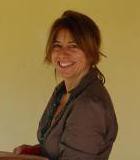
Funzione/Ruolo
Professoressa ordinaria di Geodesia e Geomatica nei Corsi di Laurea in Ingegneria Civile Sicurezza e Protezione Civile e Aerospaziale all’Università di Roma La Sapienza; CEO di SurveyLAb srl
Percorso professionale
Dopo la laura in Fisica nel 1987 con una tesi sulla missione satellitare LAGEOS per lo studio dei Movimenti Crostali nell’Area del Mediterraneo prosegue la sua formazione con un dottorato di ricerca presso l’Università degli studi di Bologna in Scienze Geodetiche e Topografiche, discutendo una tesi sulle Tecniche della Geodesia Spaziale (SLR E GPS) applicate allo Studio delle Deformazioni. Nel 1992 diventa ricercatrice presso l’Università di Roma Sapienza Dal 1003 al 1005 è Visiting Scientist presso l’USGS a Reston (Virginia), dove lavora su progetti per l’integrazione dati GPS/INS per la georeferenziazione di dati acquisiti tramite rilievi aerei. Dal 2001 è professoressa associata alla Facoltà di Ingegneria Civile e Industriale dell'Università di Roma La Sapienza e dal 2020 professoressa ordinaria al Dipartimento di Ingegneria Civile Edile e Ambientale, dello stesso Ateneo.
Durante la sua carriera accademica tiene corsi di Alta Formazione su Image Analysis Remote Sensing Techniques e GIS e su Tecniche di rilievo aeree per le catastrofi naturali e fa parte del Collegio Docenti del Dottorato in Geoinformazione dell’Università di Tor Vergata. Attualmente partecipa al Dottorato in Ingegneria delle Infrastrutture e Trasporti della Sapienza.
Nel 2008 fonda lo spin-off della Sapienza Survey Lab dedicato allo sviluppo di sistemi innovativi per il controllo del territorio e delle infrastrutture civili utilizzando sensori in situ e osservazioni satellitari (GNSS e DInSAR). Attualmente è CEO di Survey Lab.
Risultati scientifici
L’attività principale di Maria Marsella è la ricerca sulle tecniche geodetiche e geomatiche per il monitoraggio del territorio e la tutela delle infrastrutture civili. È esperta nell’acquisizione ed elaborazione di dati di osservazione della terra con sensori ottici e SAR e di dati di geodesia spaziale. Ha condotto studi e ricerche per lo sviluppo di modelli interpretatavi e previsionali in aree soggette a rischio idrogeologico e in aree vulcaniche attive, basandosi sull’integrazione di dati di telerilevamento aereo e satellitare con misure in situ. Ha coordinato numerosi progetti di ricerca finanziati da enti nazionali quali il MIUR, l’Agenzia Spaziale Italiana, il Diartimento Protezione Civile dell’Istituto Nazionale di Geofisica e Vulcanologia, e progetti europei nell’ambito dei programmi EU FP7 e H2020.
Attività editoriali e pubblicazioni
E’ autrice di oltre cento pubblicazioni fra cui:
(2016) Scifoni S, Bonano M, Marsella M, Sonnessa A, Tagliafierro V, Manunta M. On the joint exploitation of long-term DInSAR time series and geological information for the investigation of ground settlements in the town of Roma (Italy). Remote Sensing of Environment, 182:113-127 3.
(2015) Palenzuela JA, Marsella M, Nardinocchi C, Pérez JL, Fernández T. Landslide detection and inventory by integrating LiDAR data in a GIS environment. Landslides, 12(6):1035-1050,9.
(2015) Marsella M, D’Aranno PJV, Scifoni S, Sonnessa A, Corsetti M. Terrestrial laser scanning survey in support of unstable slopes analysis: the case of Vulcano Island (Italy). Natural Hazards, 78(1):443-459,5.
(2012) Marsella M, Baldi P, Coltelli M, Fabris M.The morphological evolution of the Sciara del Fuoco since 1868: reconstructing the effusive activity at Stromboli volcano. Bulletin of Volcanology, 74,1:231-248.
(2009) Proietti C, Coltelli M, Marsella M, Fujita E. A quantitative approach for evaluating lava flow simulation reliability: LavaSIM code applied to the 2001 Etna eruption. Geochemistry Geophysics Geosystems,10,9.
(2008) Manunta M, Marsella M, Zeni G, Sciotti M, Atzori S, Lanari R. Two-scale surface deformation analysis using the SBAS-DInSAR technique: a case study of the city of Rome Italy.International Journal of Remote Sensing, 29,6:1665-1684.
(2008) Baldi P, Coltelli M, Fabris M, Marsella M, Tommasi P. High precision photogrammetry for monitoring the evolution of the NW flank of Stromboli volcano during and after the 2002-2003 eruption. Bulletin of Volcanology, 70,6:703-715.
(2007) Vicari A, Herault A, Del Negro C, Coltelli M, Marsella M, Proietti C. Modeling of the 2001 lava flow at Etna volcano by a cellular automata approach. Environmental Modelling & Software, 22,10:1465-1471.
(2005) Baldi P, Fabris M, Marsella M, Monticelli R. Monitoring the morphological evolution of the Sciara del Fuoco during the 2002 - 2003 Stromboli eruption using multi-temporal photogrammetry. ISPRS, Journal of Photogrammetry and Remote Sensing, 59,4:199-211.
(2002) Baldi P, Bonvalot S, Briole P, Coltelli M, Gwinner K, Marsella M, Puglisi G, Remy D. Validation and comparison of different techniques for the derivation of digital elevation models and volcanic monitoring (Vulcano Island Italy). International Journal of Remote Sensing, 23,22:4783-4800.
Riconoscimenti e premi
Nel 2017 viene chiamata a far parte del Comitato Tecnico Scientifico per il Commissario del Governo per la ricostruzione nei territori interessati dal sisma del 24 agosto 2016 presso la Presidenza del Consiglio dei Ministri.
Nel marzo 2016 Survey Lab, di cui è CEO, ha vinto la Call H2020 SME Instrument-Phase II-Space con il progetto IMODI (Monitorare con i satelliti la stabilità di edifici e infrastrutture).
Dal 2011 al 2014 è stata esperta per la Valutazione della Qualità della Ricerca (VQR-ANVUR).
Fra il 2002 e il 2013 è stata esperta valutatrice di progetti per la Call Aeronautica e Spazio dei programmi quadro per lo sviluppo tecnologico della Commissione Europea FP6 e FP7.
Nel 2002 e 2003 e poi ancora nel 2017 ha collaborato con il Dipartimento di Protezione Civile Nazionale per la gestione delle Emergenze Stromboli 2002-03 e 2017.
Fa parte del Consiglio Direttivo del Centro di Ricerca Aerospaziale della Sapienza (CRAS).

Funzione/Ruolo
Professoressa ordinaria di Filosofia Morale all’Université de Paris
Percorso professionale
Ex-alunna della SNS di Pisa, dopo aver conseguito un dottorato di ricerca in Filosofia, Michela Marzano si è trasferita in Francia dove, dopo essere stata ricercatrice al CNRS, è oggi Professoressa ordinaria di Filosofia Morale all’Université de Paris. Eletta come deputata del PD nel 2013, è oggi editorialista della Repubblica e della Stampa.
Risultati scientifici
Dopo essersi interessata alla filosofia del corpo, ha lavorato nell’area dell’etica applicata (salute e sessualità) e della filosofia sociale focalizzandosi in particolare sia sul rapporto tra consenso, autonomia e vulnerabilità, sia sul rapporto tra fiducia e diffidenza.
Attività editoriali e pubblicazioni
[2006] Marzano M. Je consens, donc je suis… Éthique de l’autonomie. PUF: pp. 262.
[2007] Marzano M. Dictionnaire du corps. PUF: pp. 1048.
[2008] Marzano M. Extension du domaine de la manipulation. Grasset: pp. 283.
[2010] Marzano M. Sii bella e stai zitta. Mondadori: pp. 160.
[2011] Marzano M. Dictionnaire de la violence. PUF: pp. 1568.
[2011] Marzano M. Volevo essere una farfalla. Mondadori: pp. 210.
[2013] Marzano M. L’amore è tutto: è tutto ciò che so dell’amore. UTET: pp. 262.
[2014] Marzano M. Il diritto di essere io. Laterza: pp. 142.
[2014] Marzano M. Avere fiducia. Mondadori: pp. 268.
[2015] Marzano M. Non seguire il mondo come va. Rabbia, coraggio, speranze e altre emozioni politiche. UTET: pp. 267.
[2015] Marzano M. Papà, mamma e gender. UTET: pp. 151.
[2017] Marzano M. L’amore che mi resta. Einaudi: pp. 236.
[2019] Marzano M. Idda. Einaudi: pp. 233.



